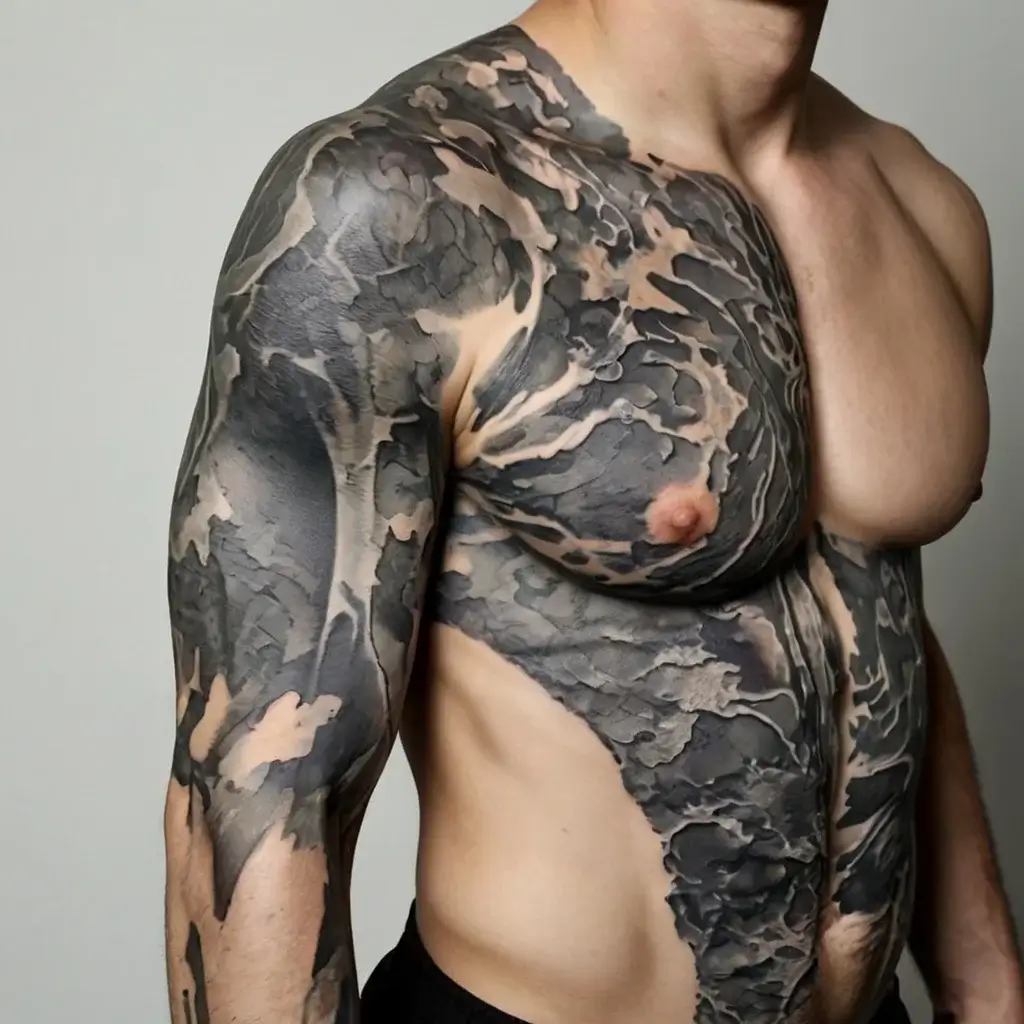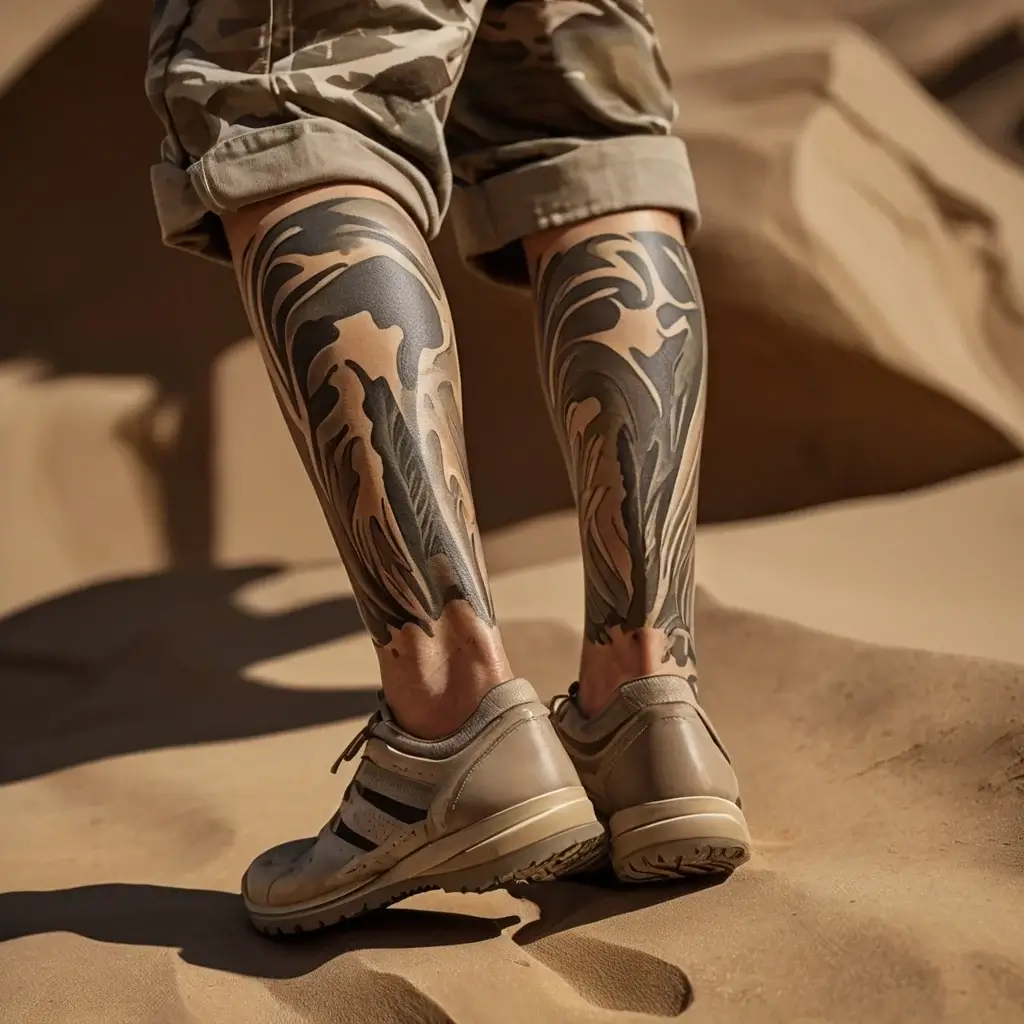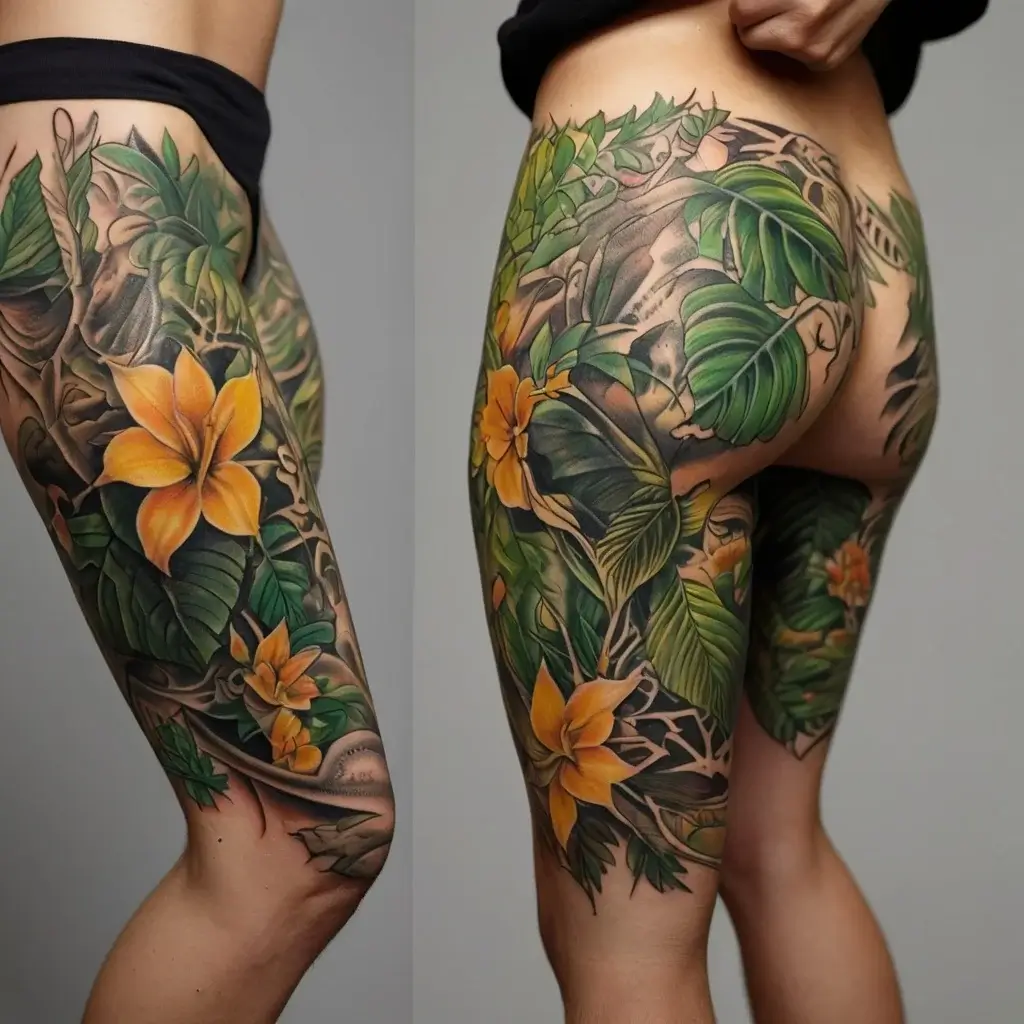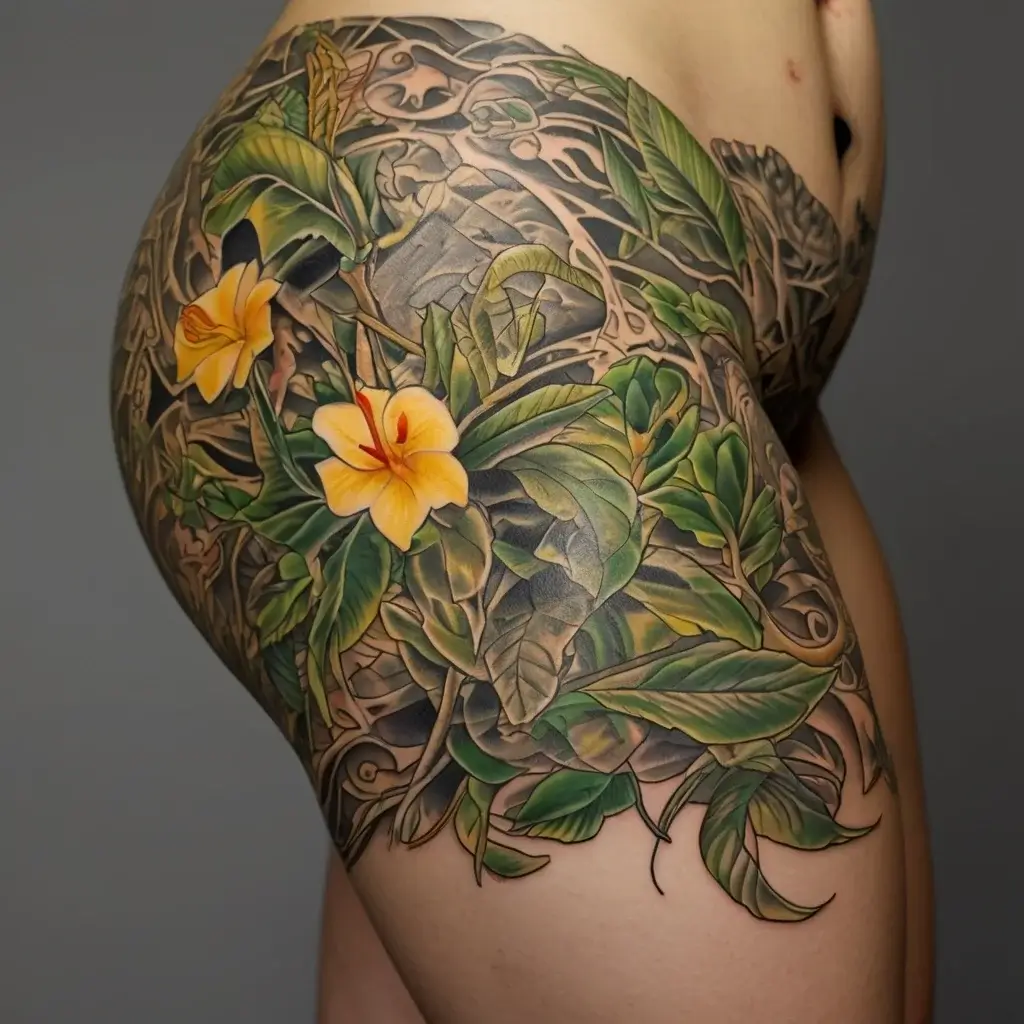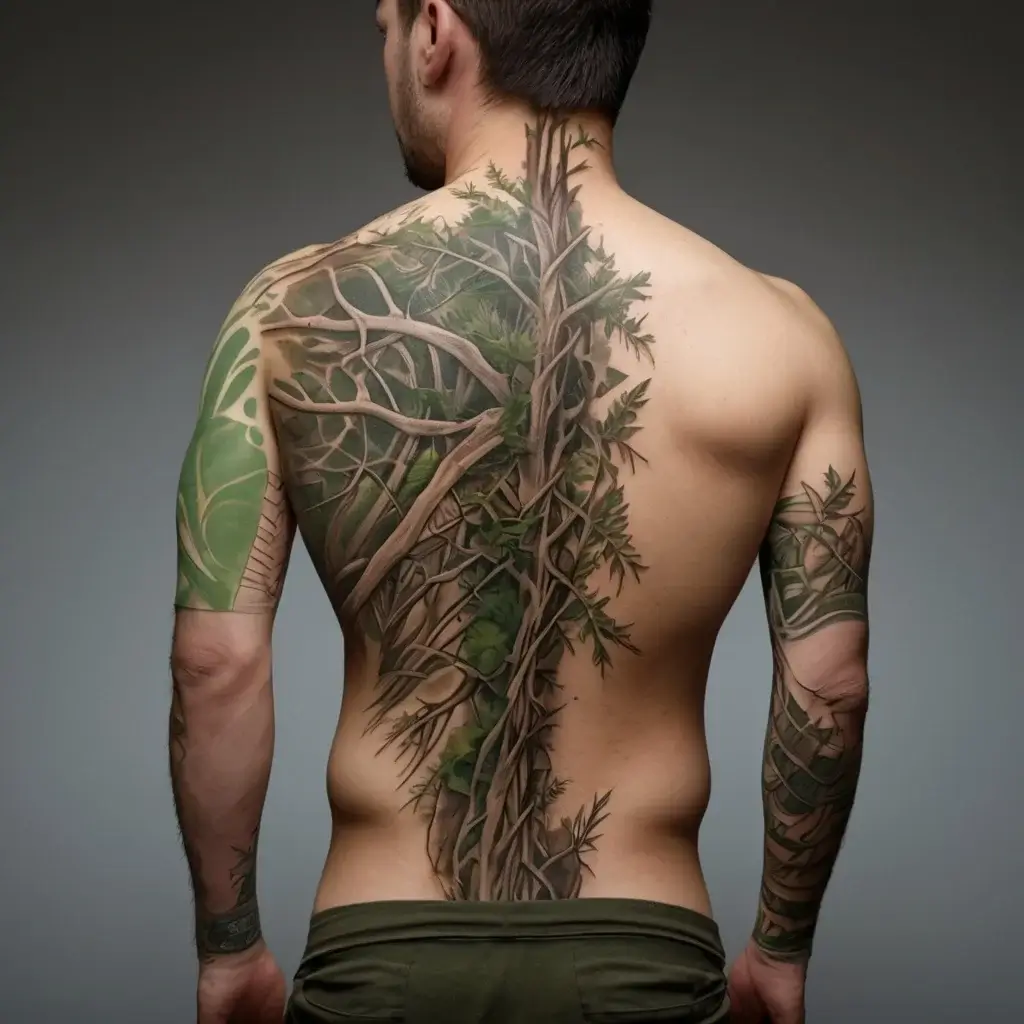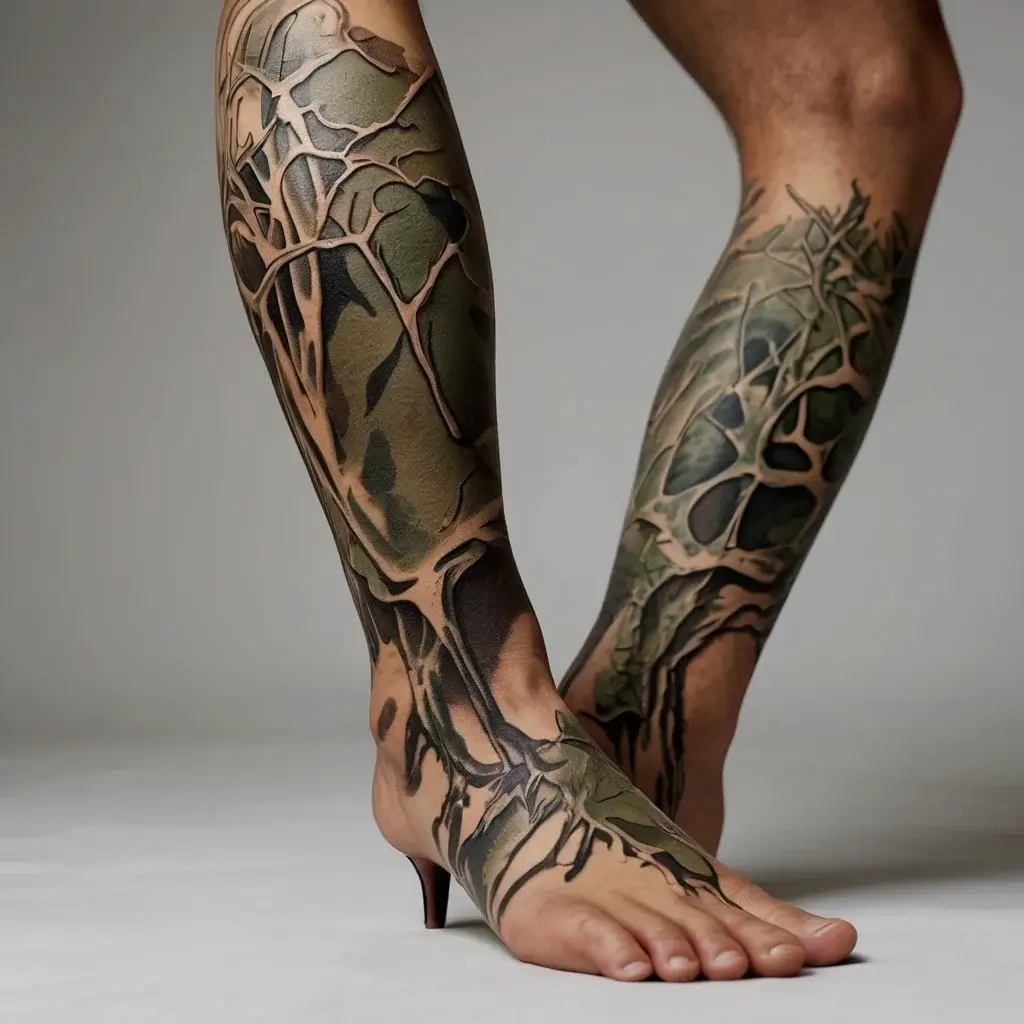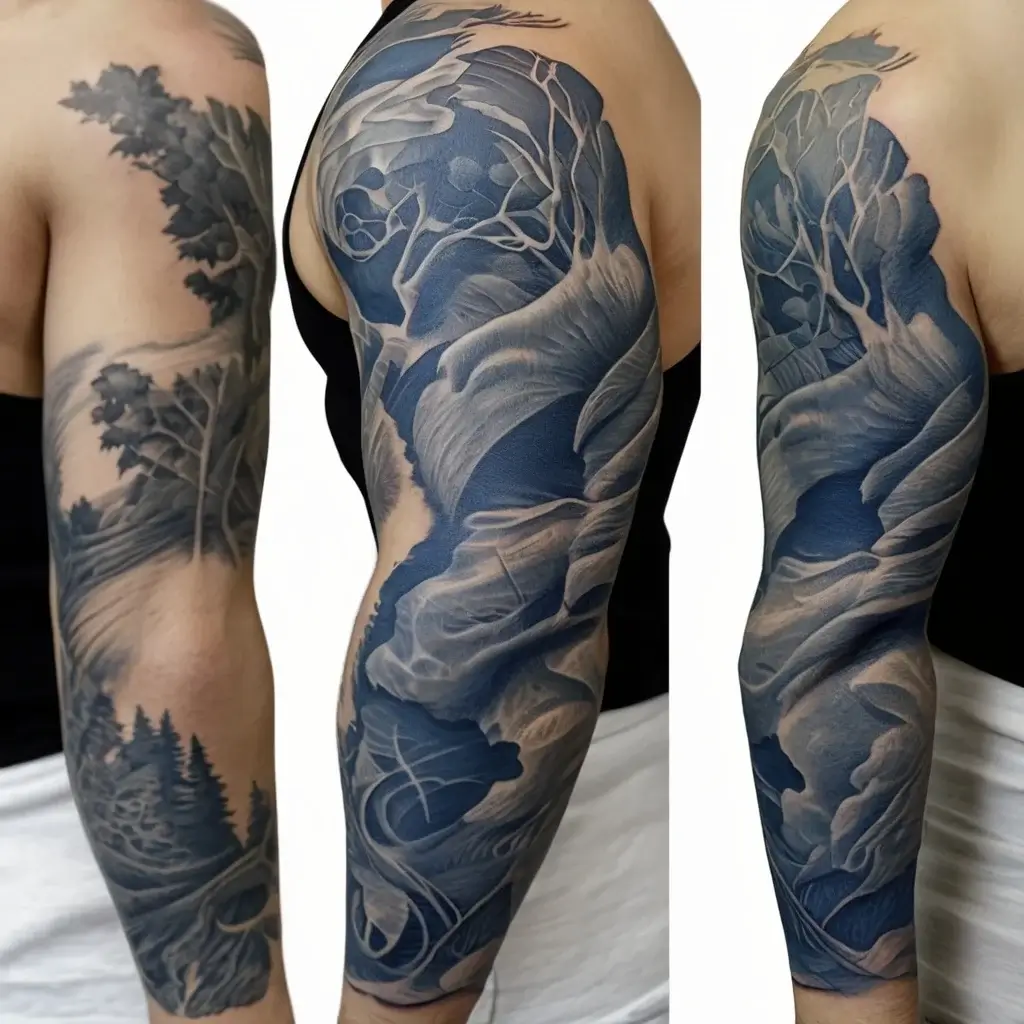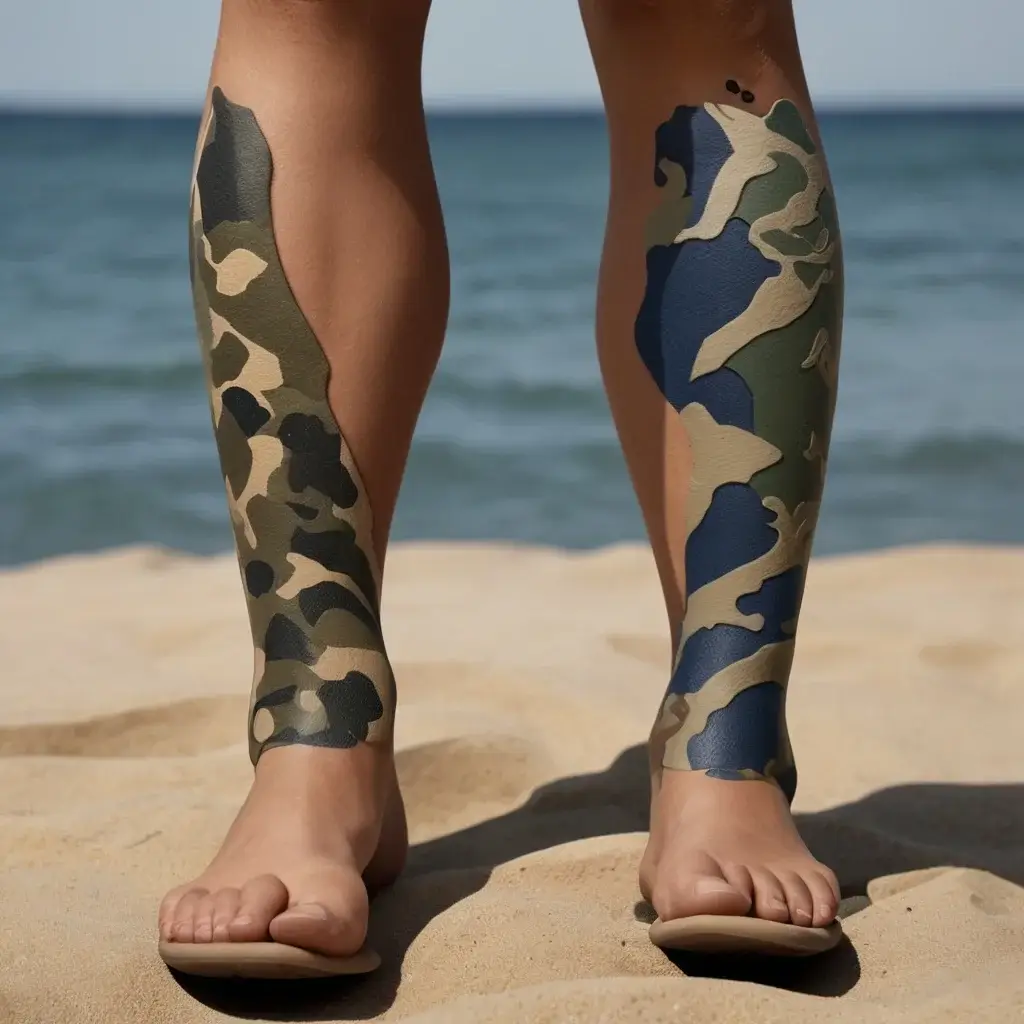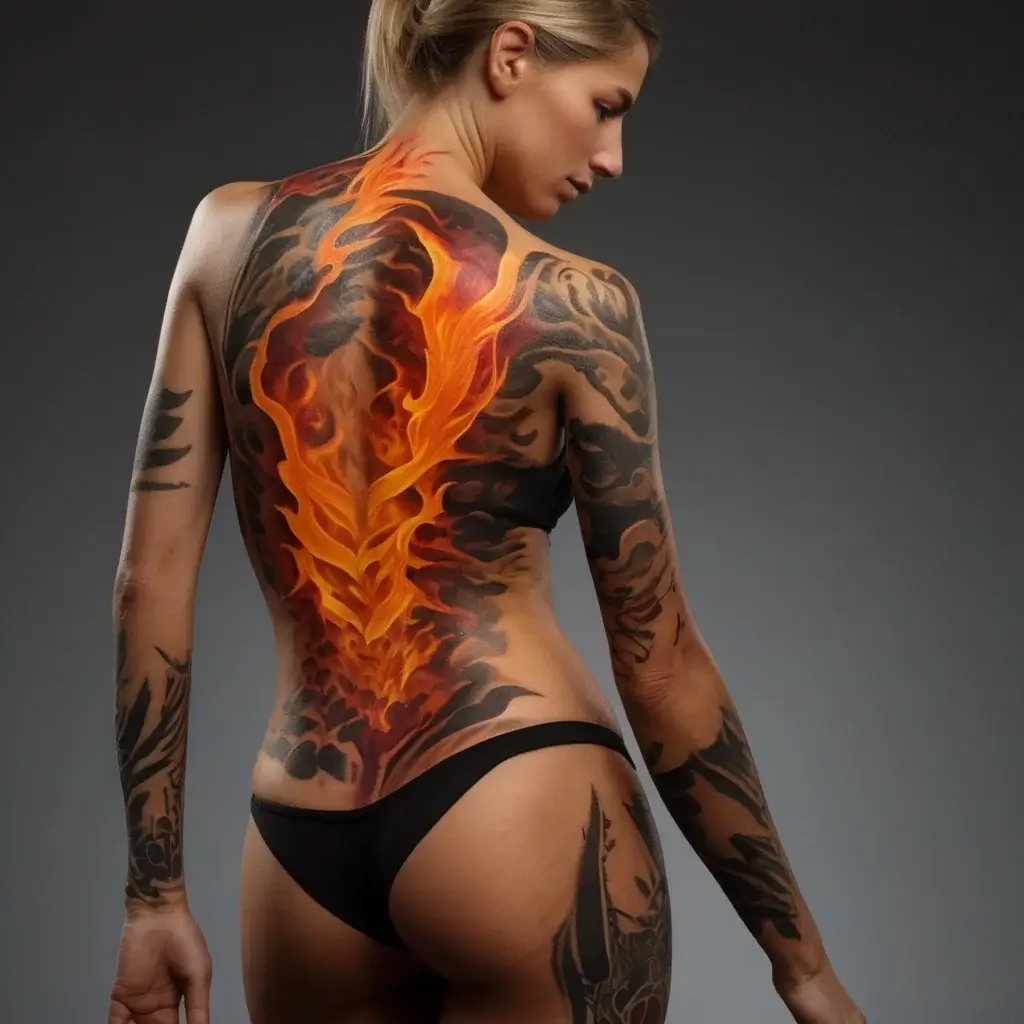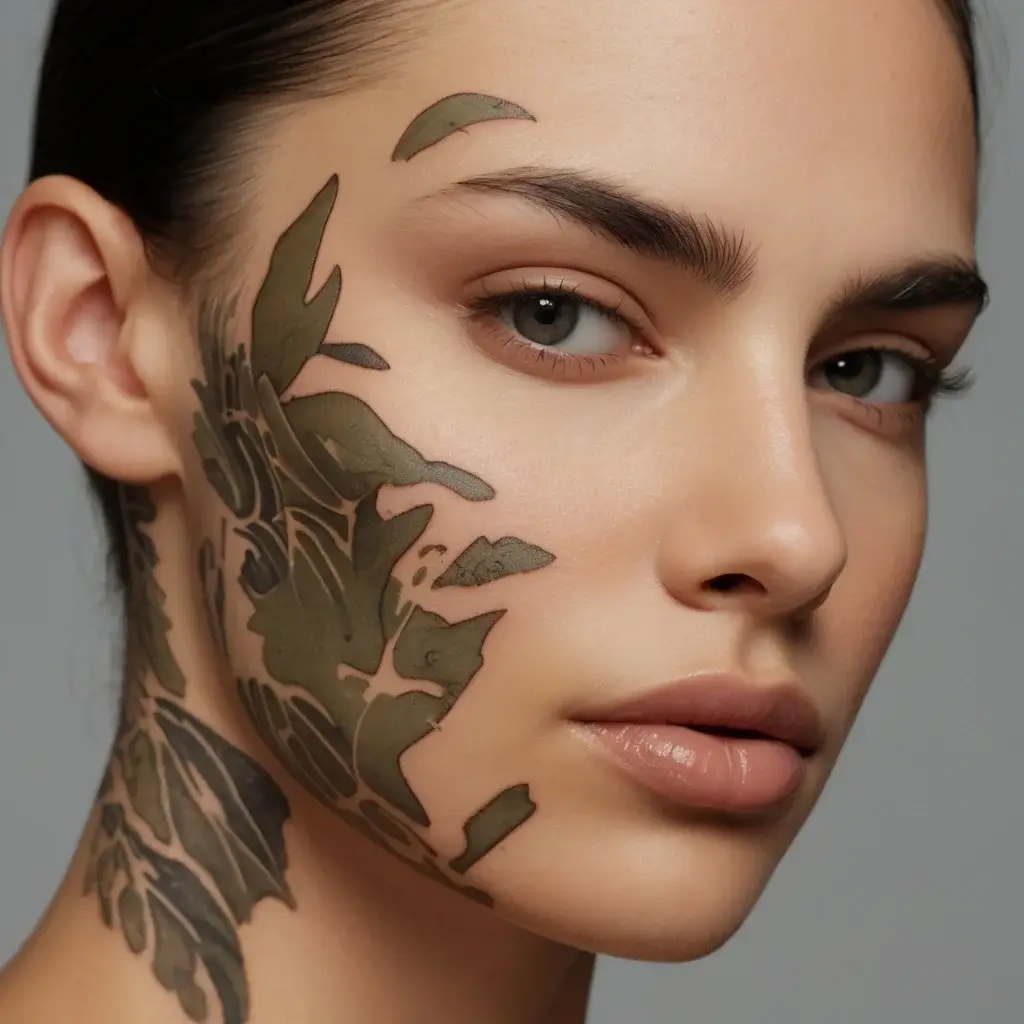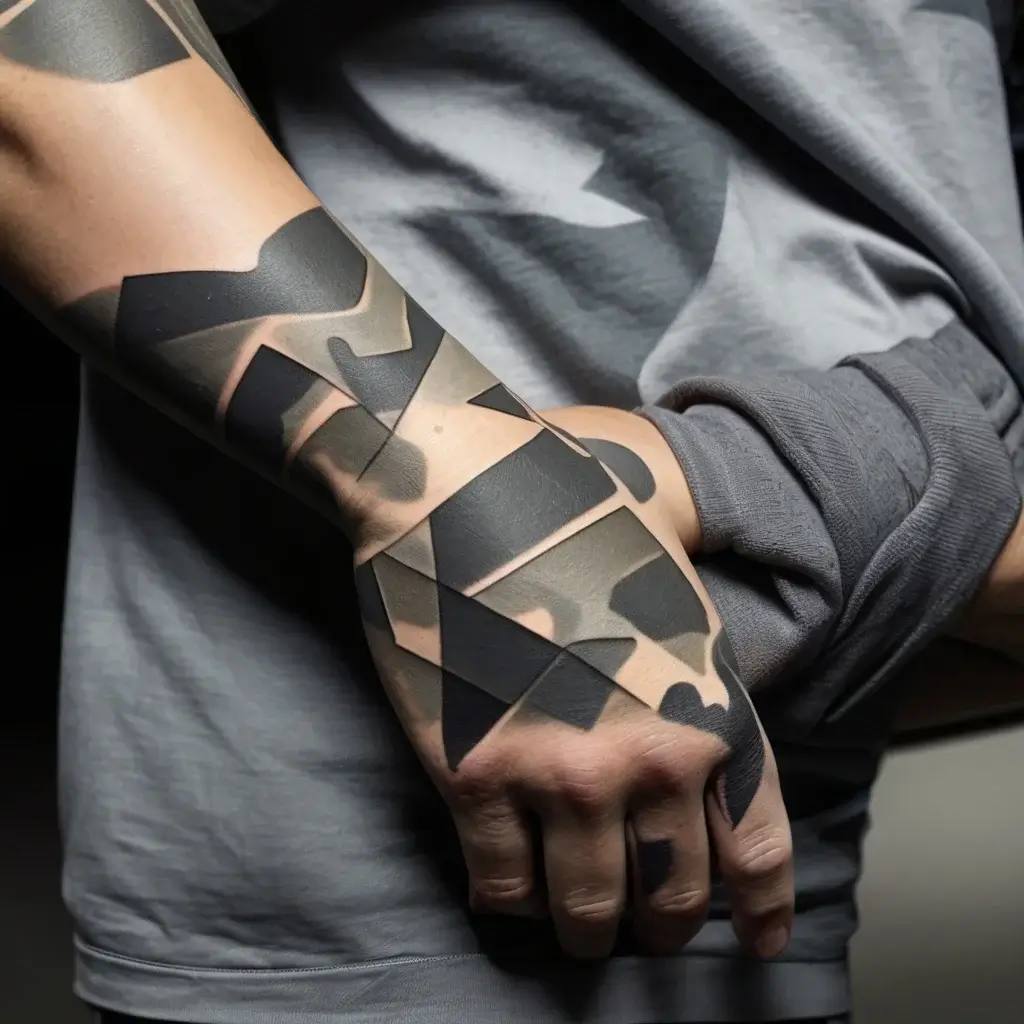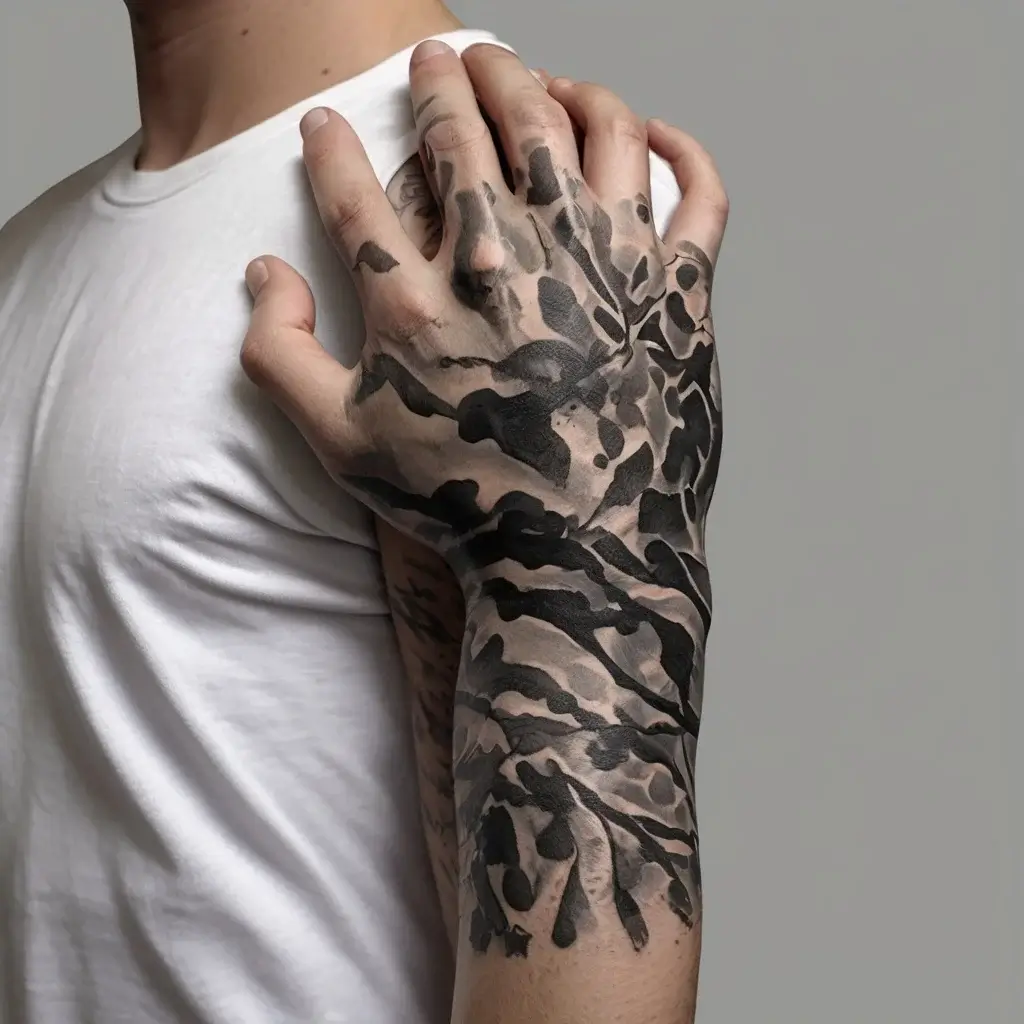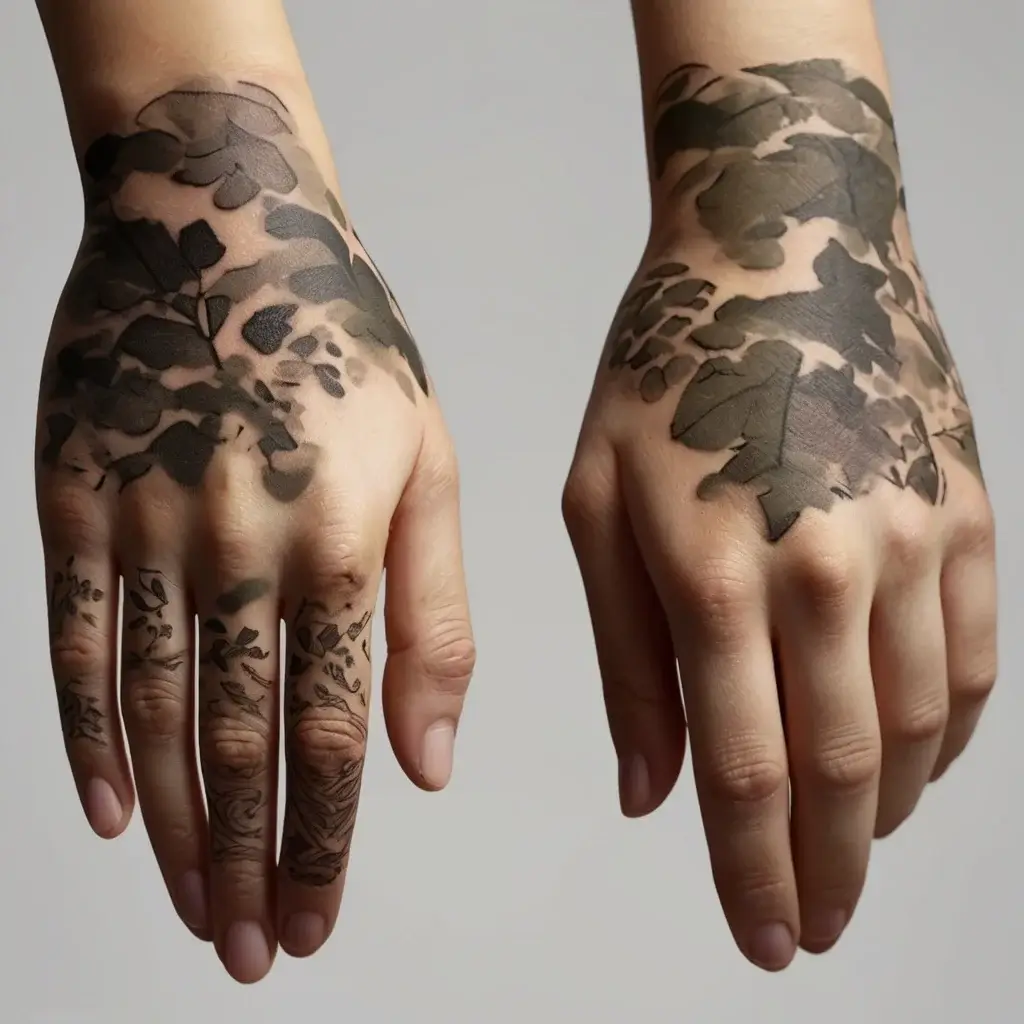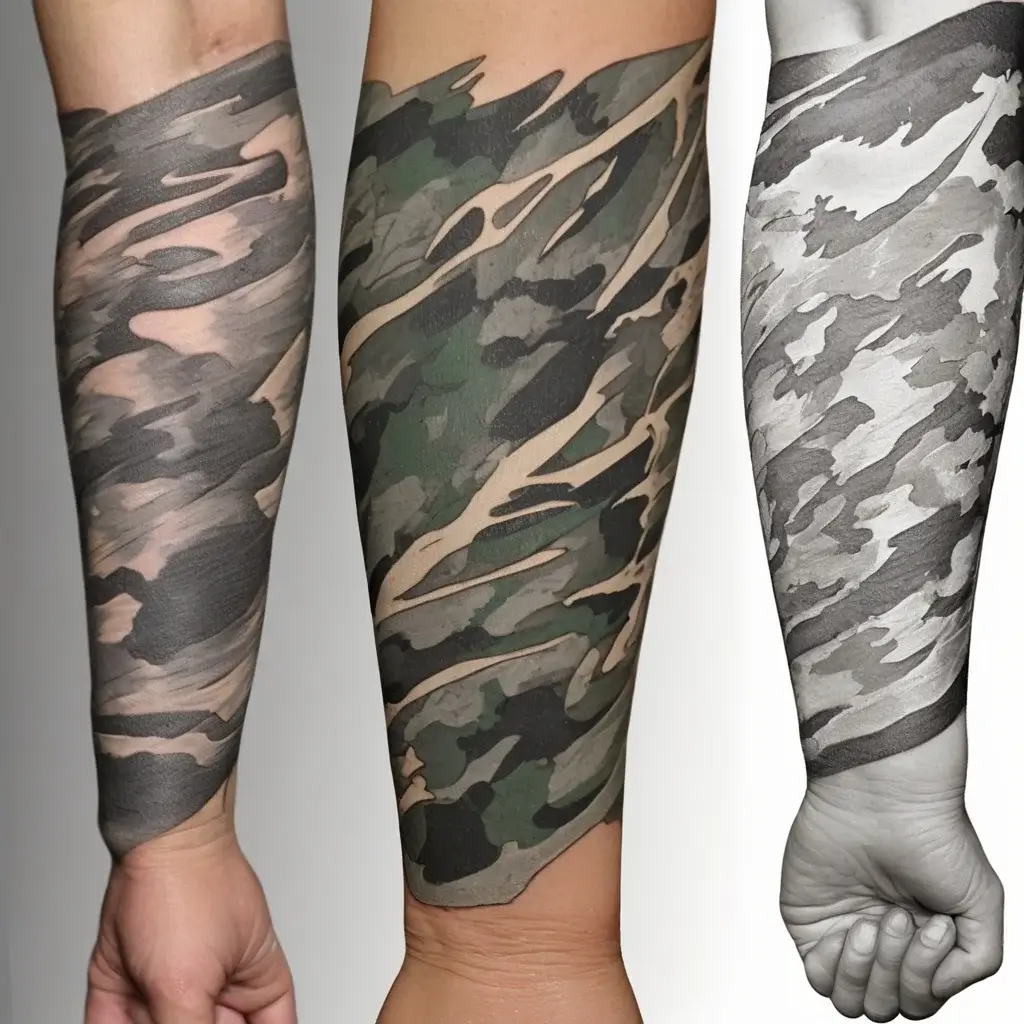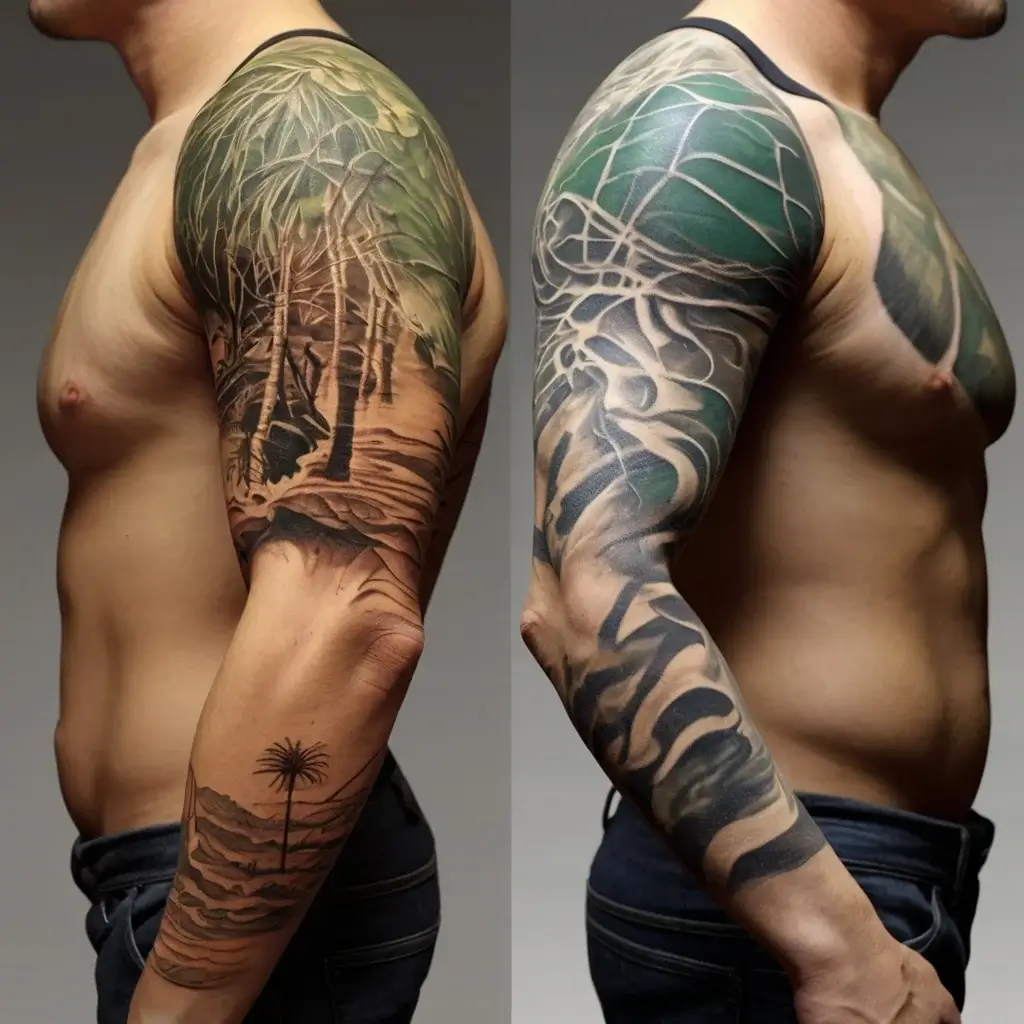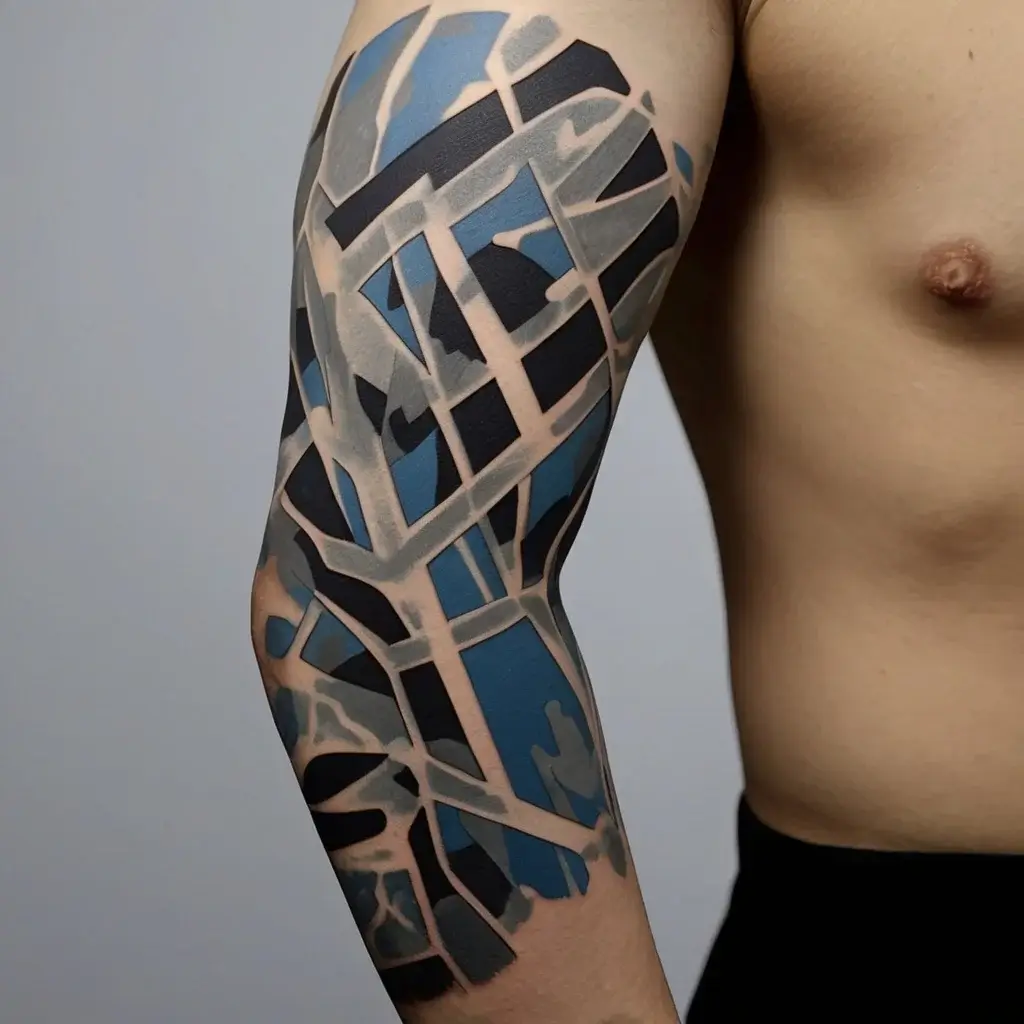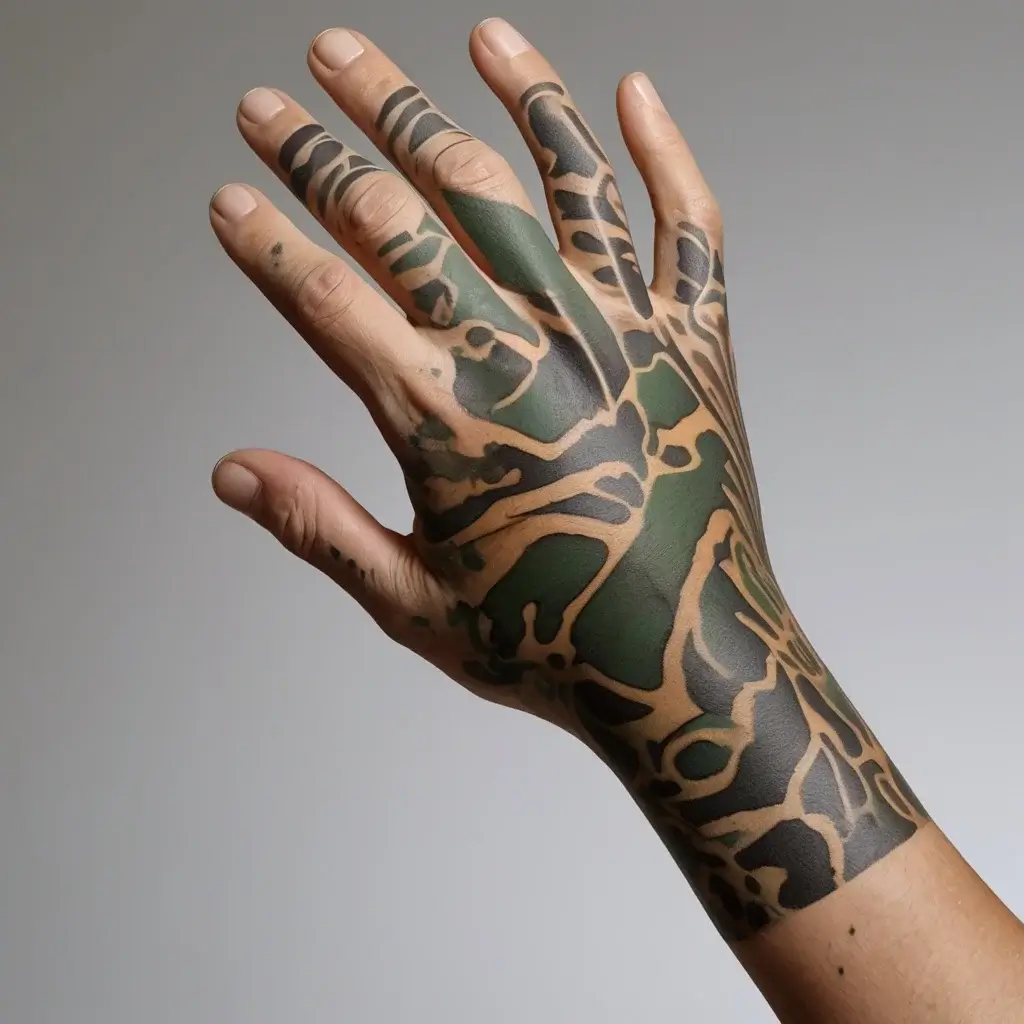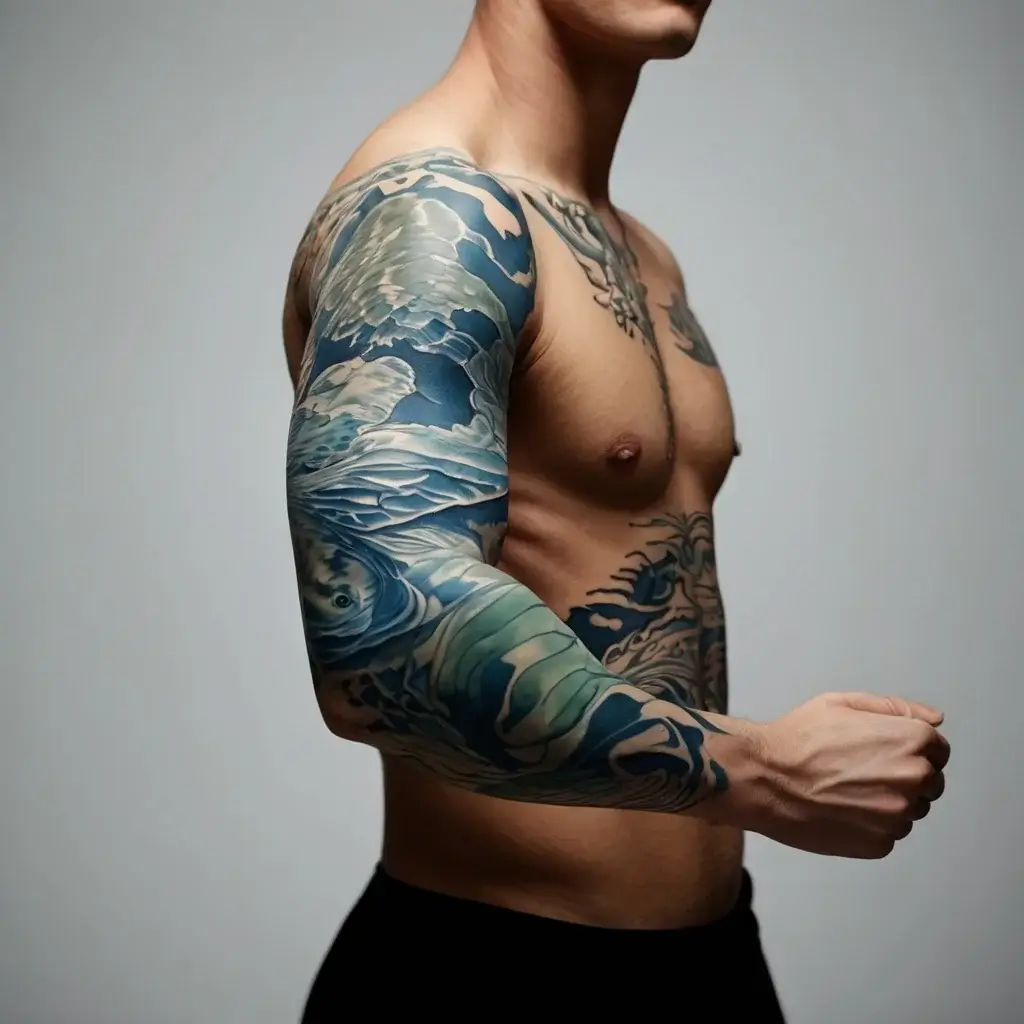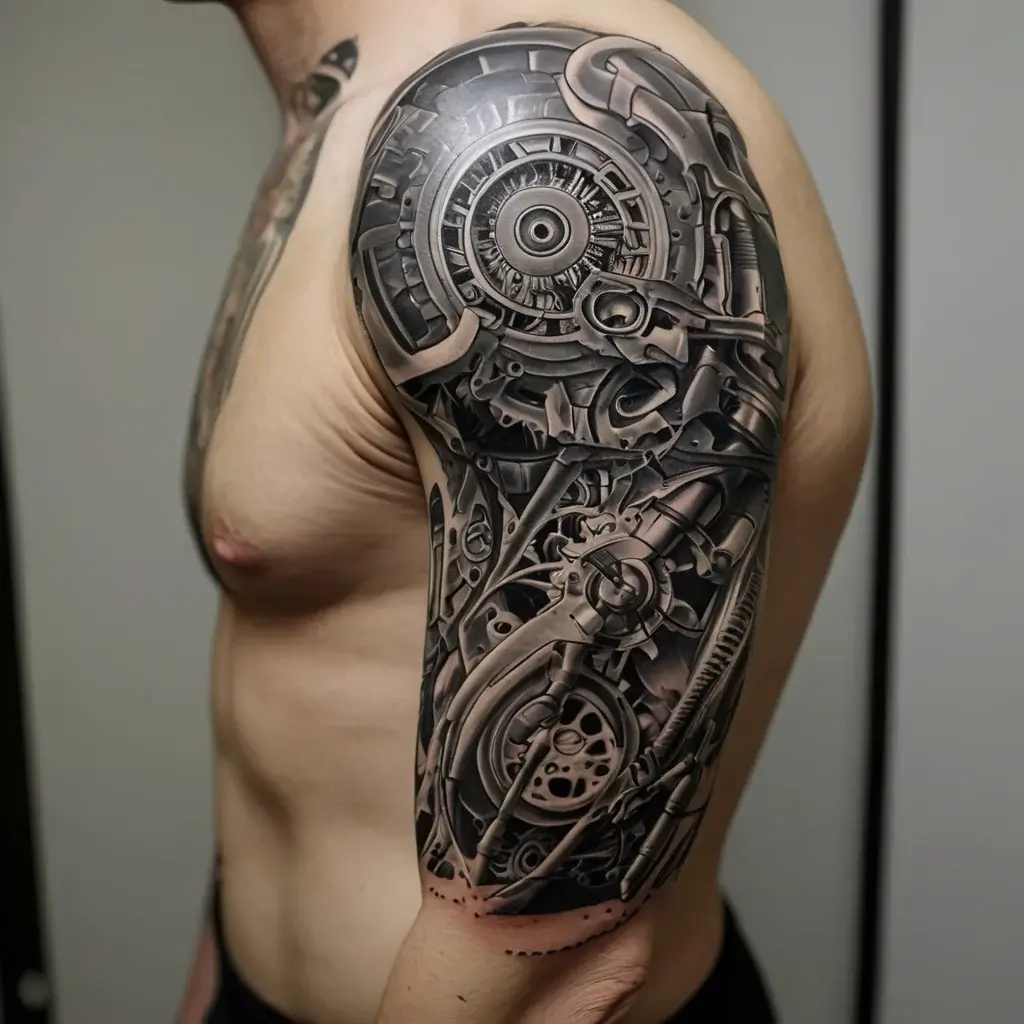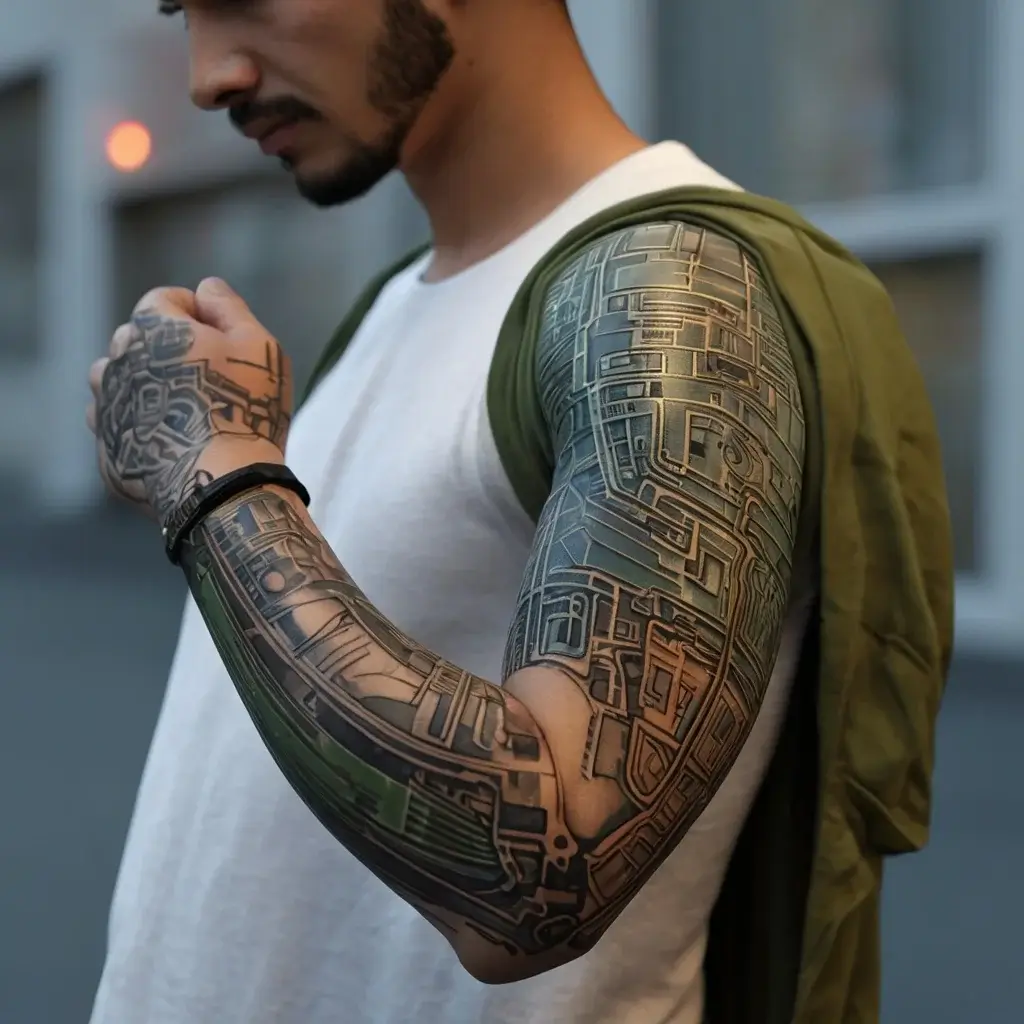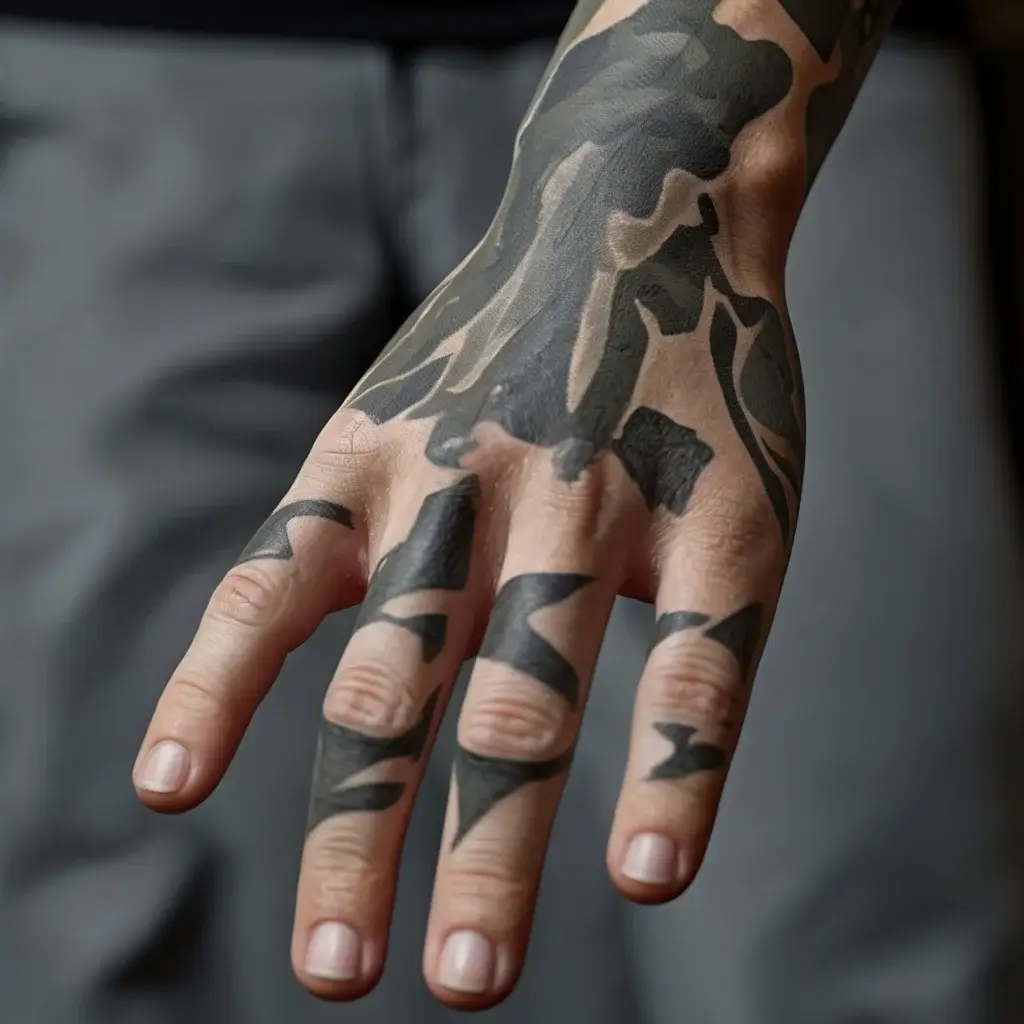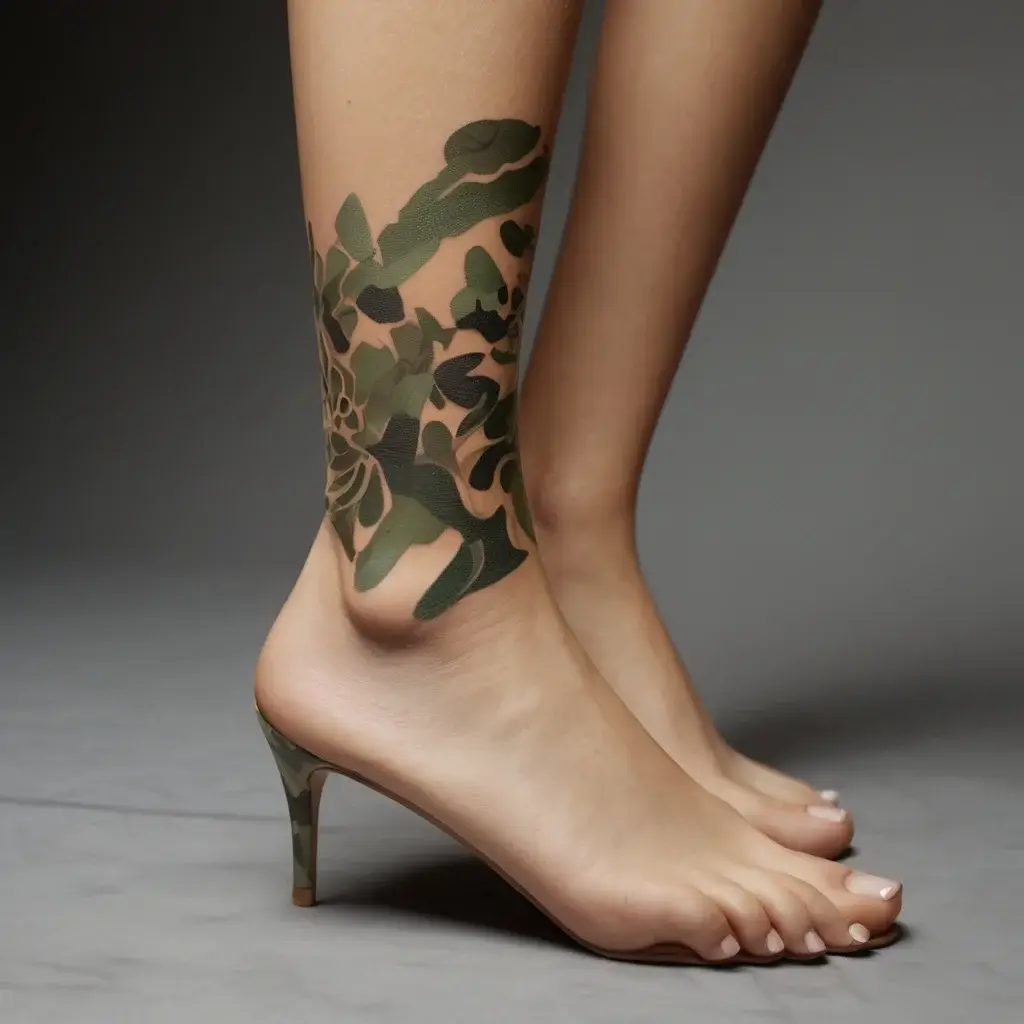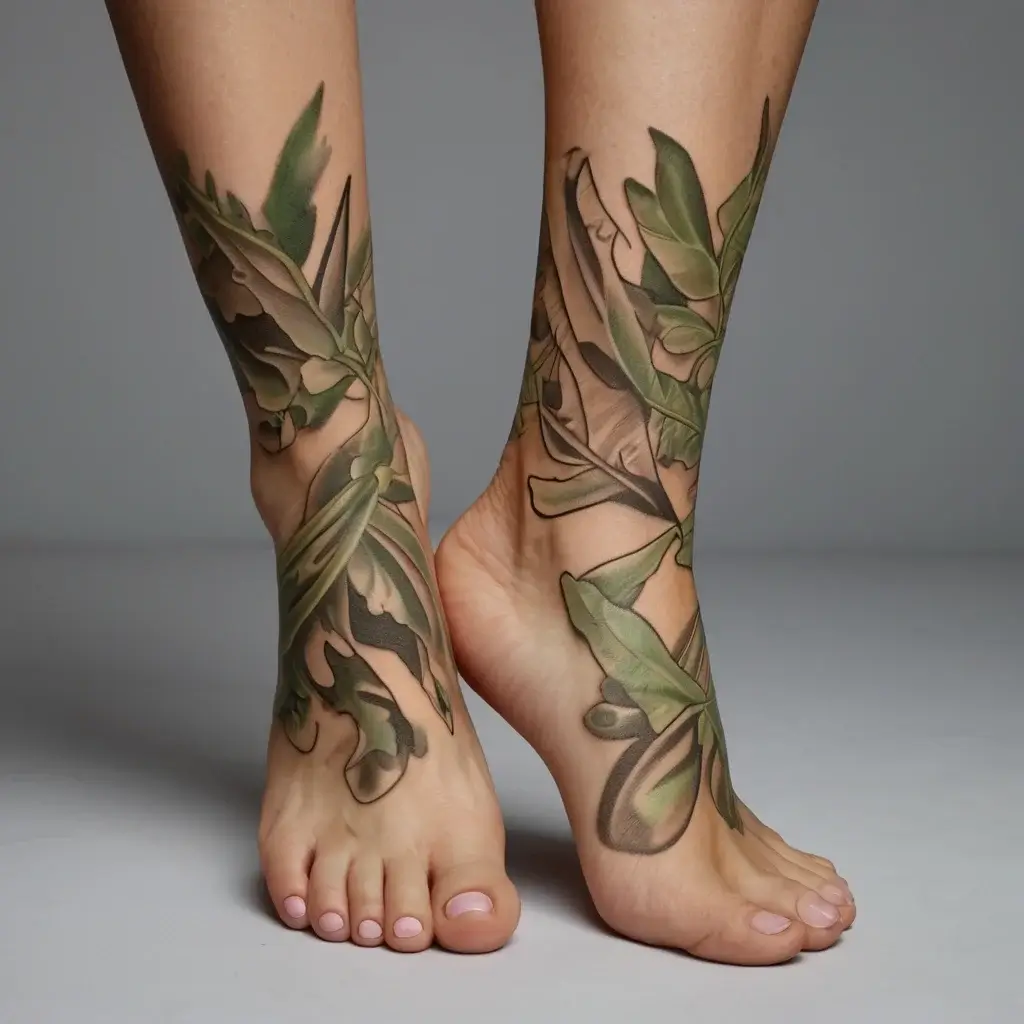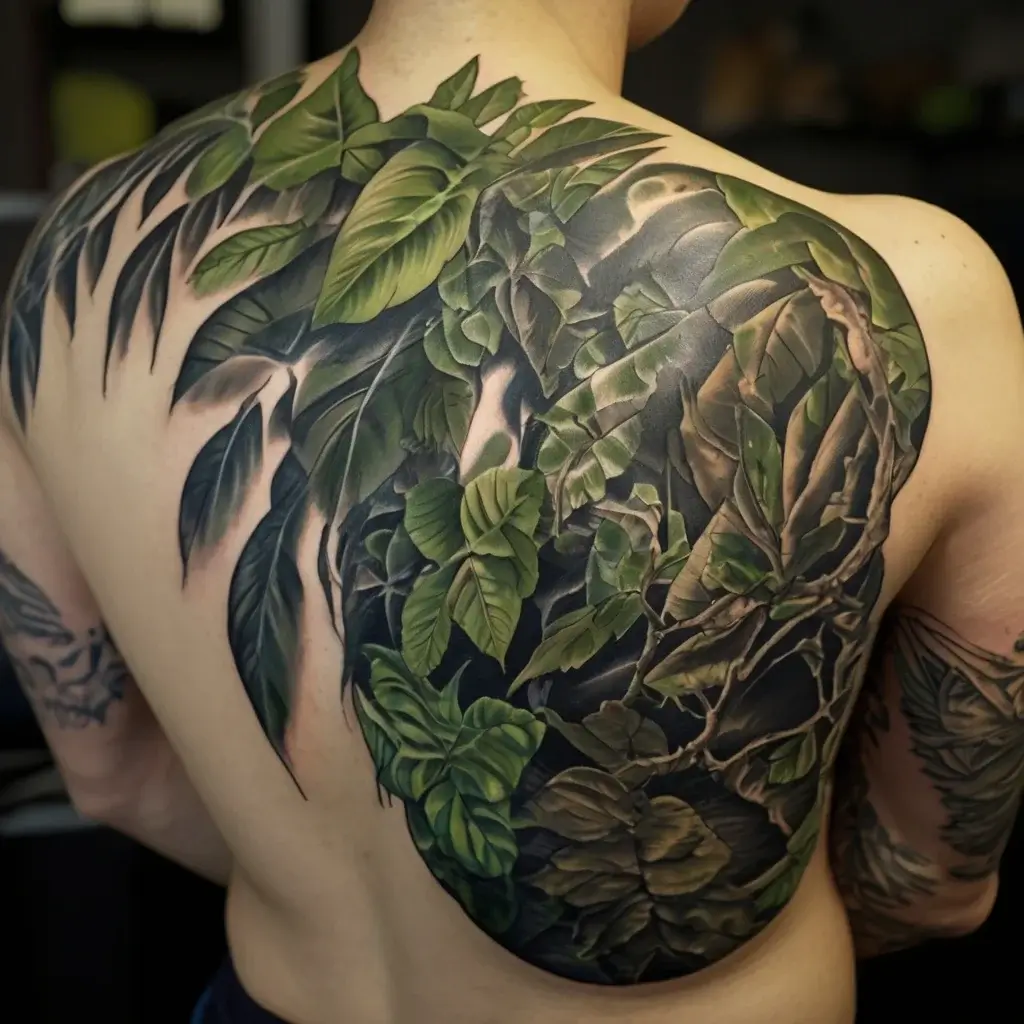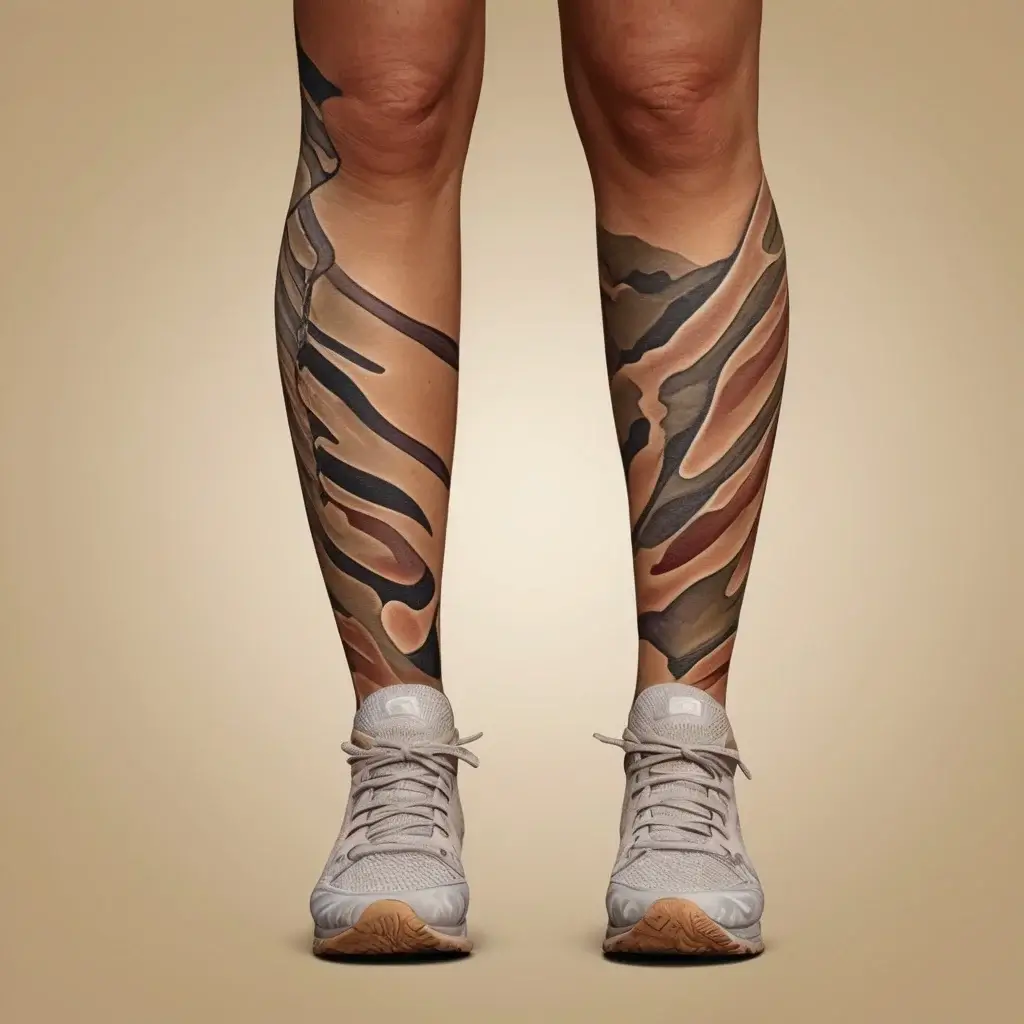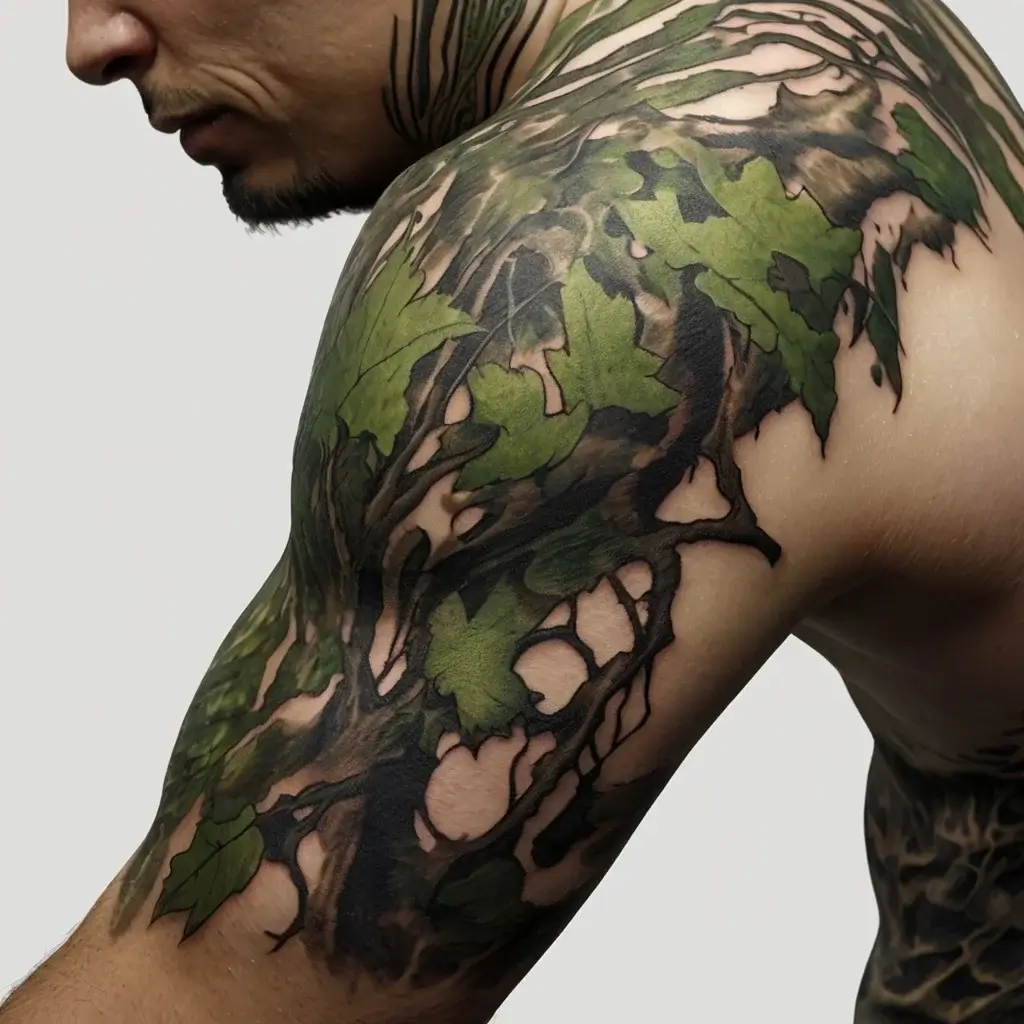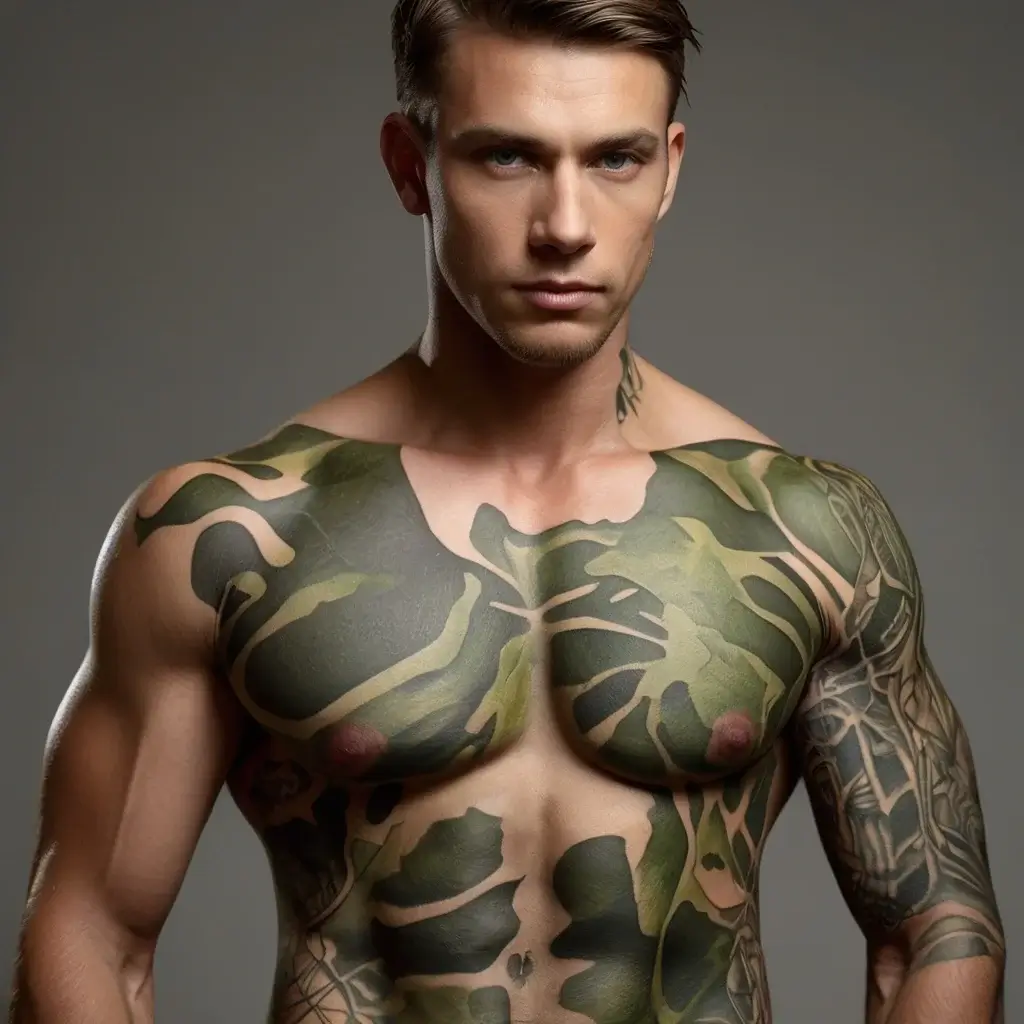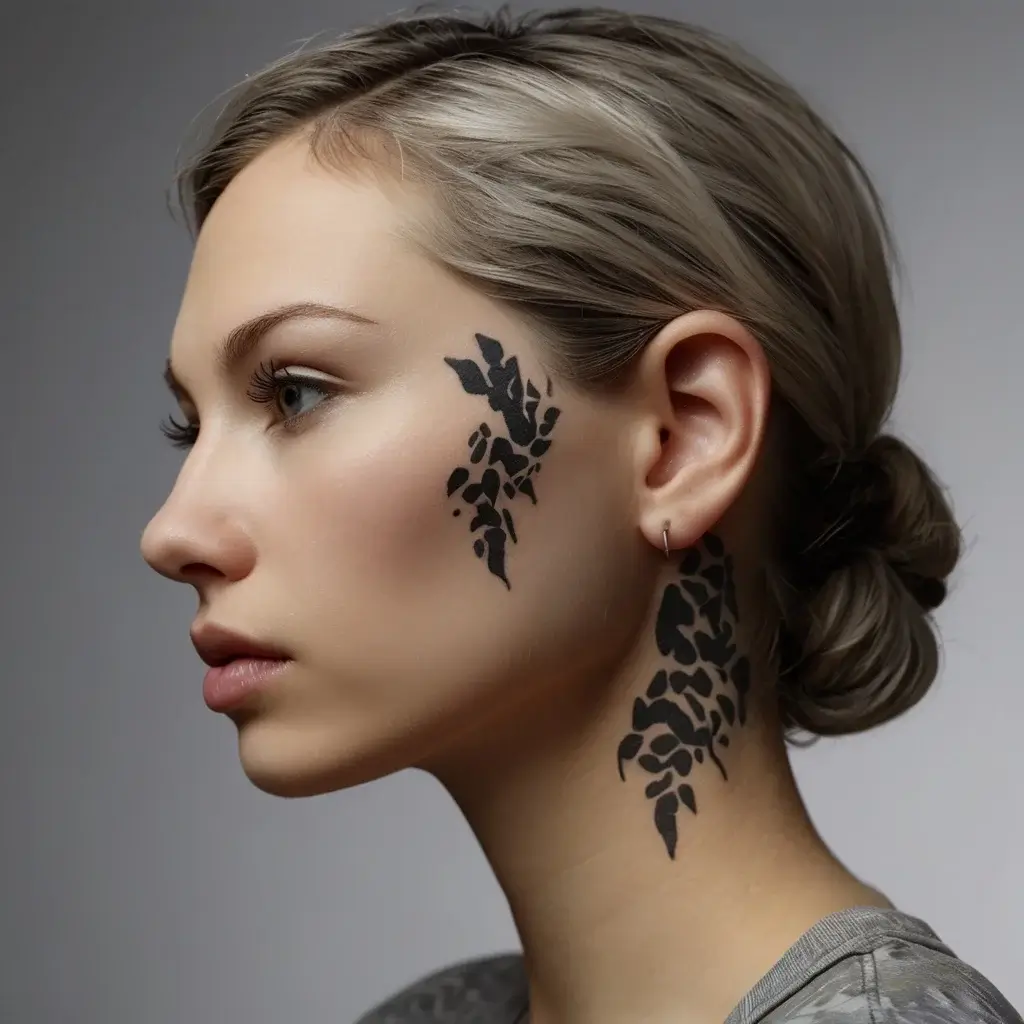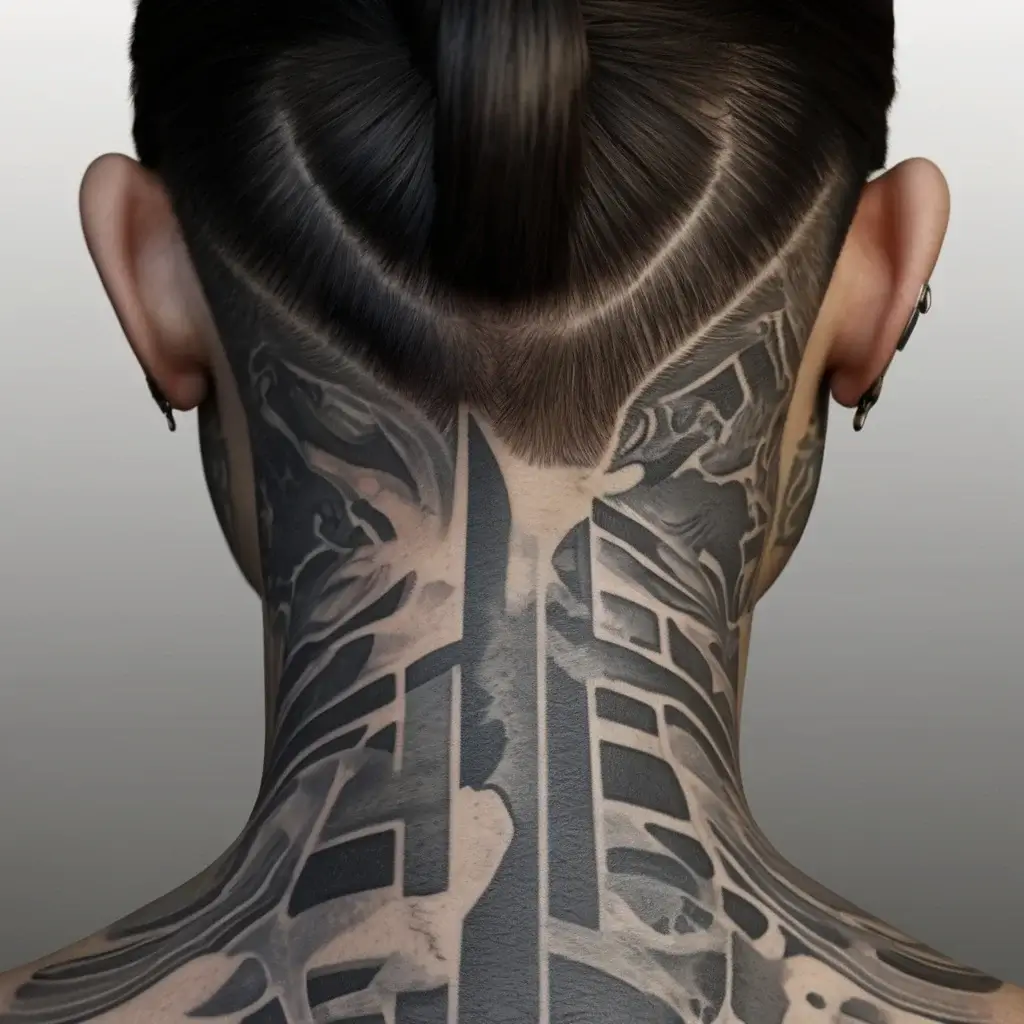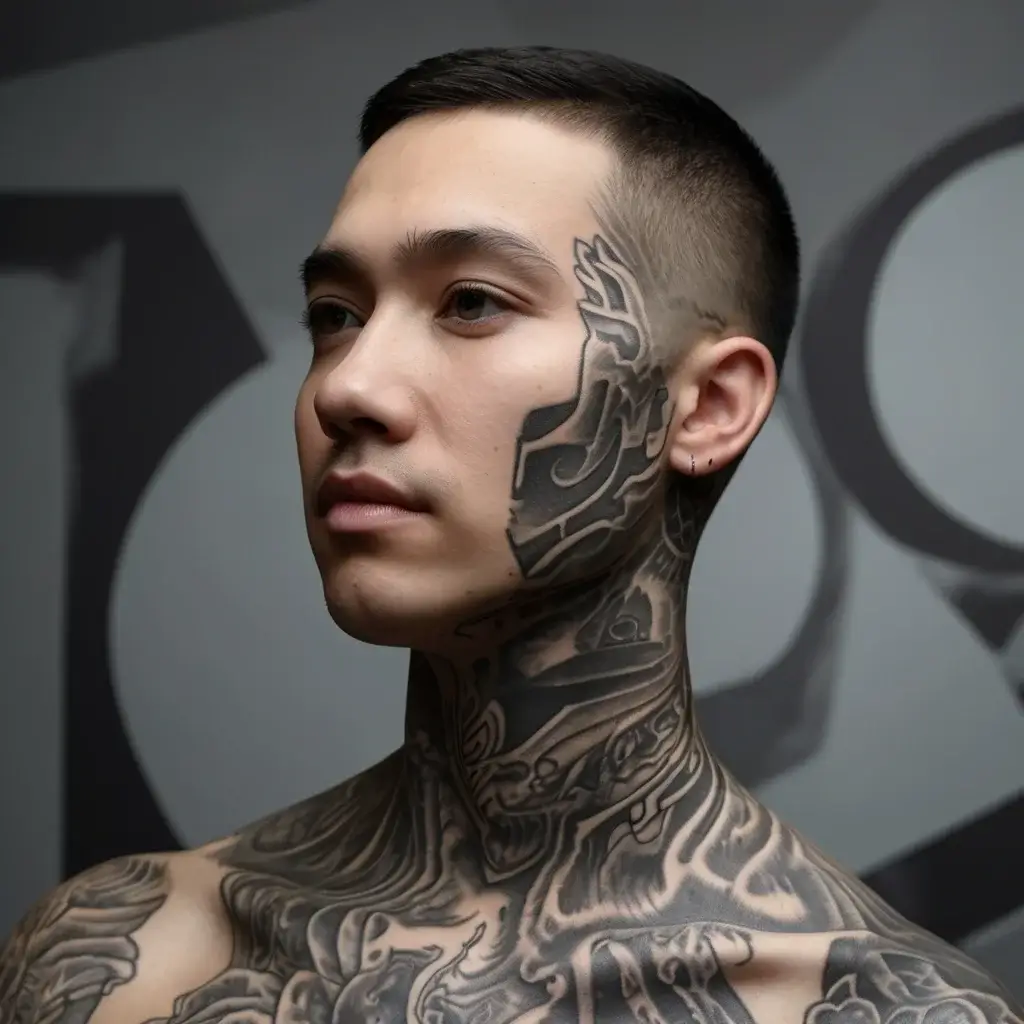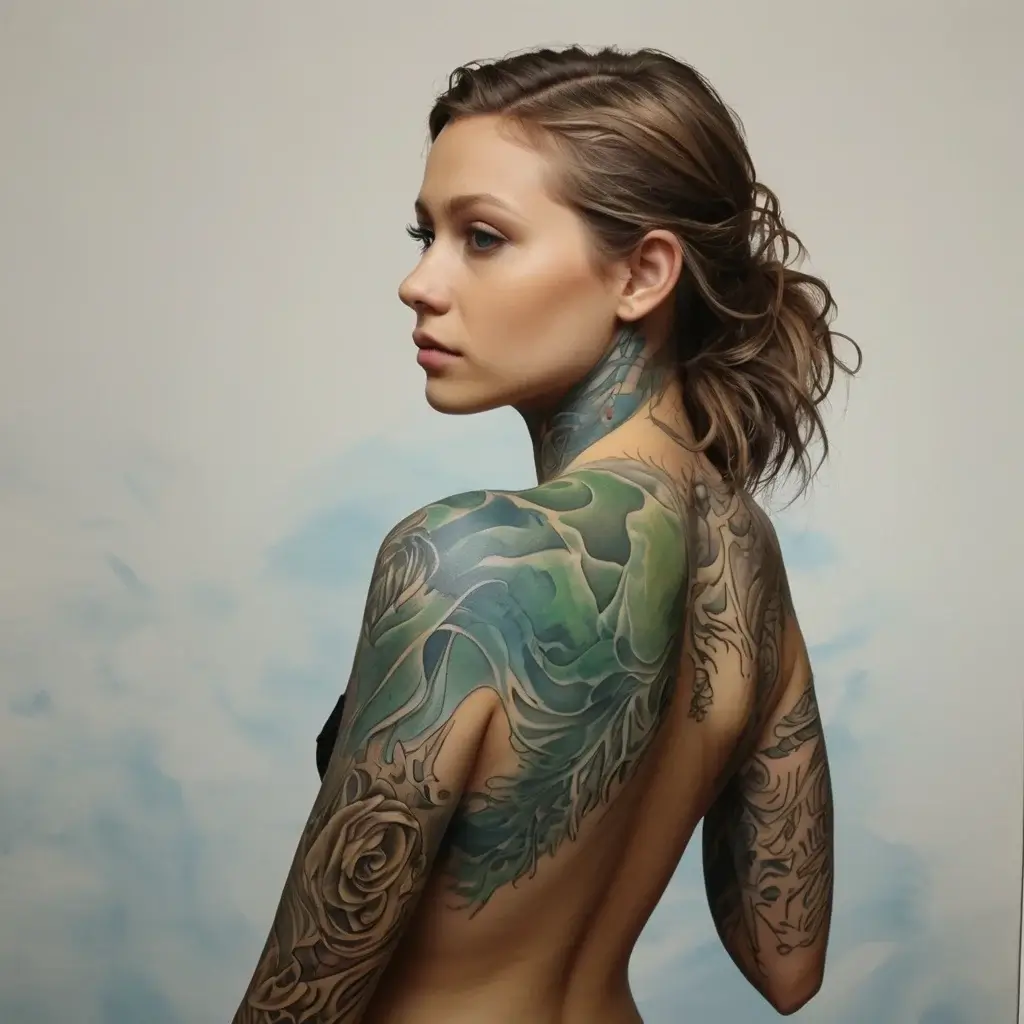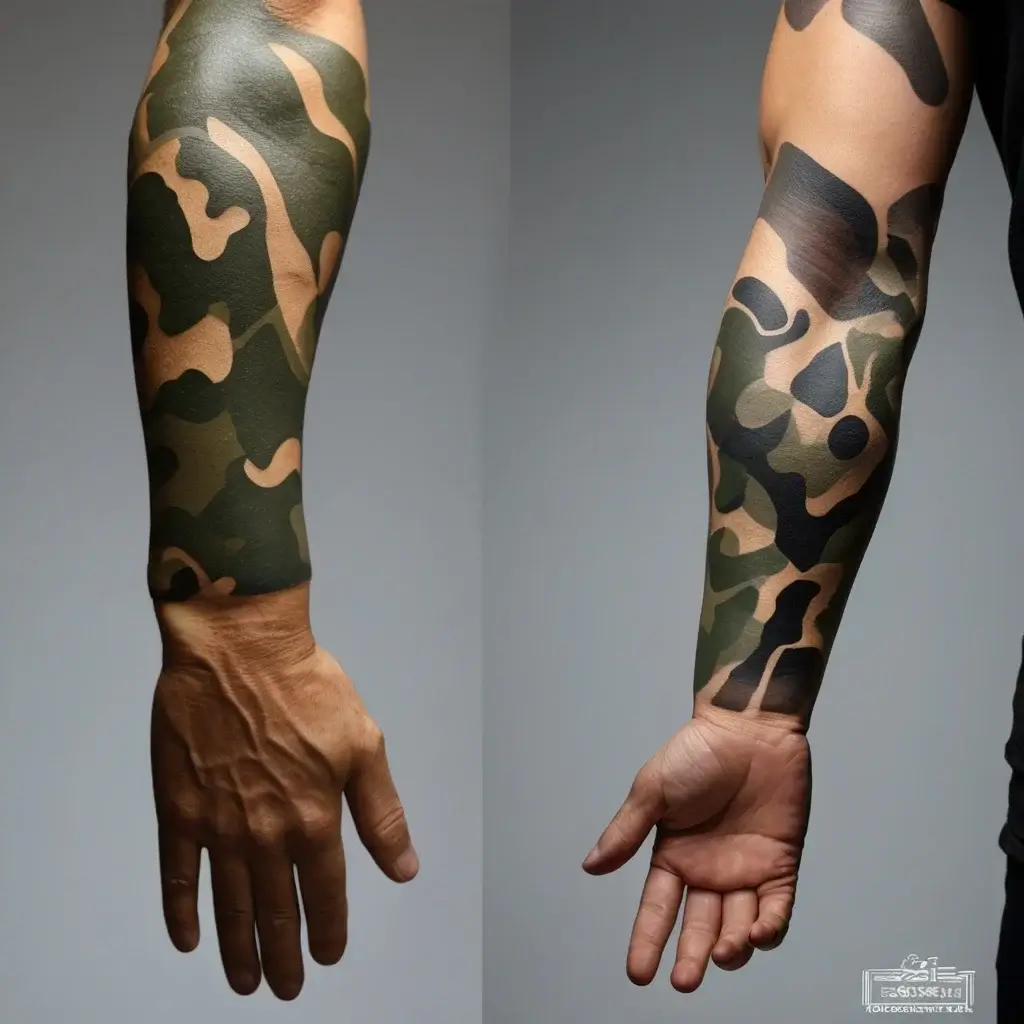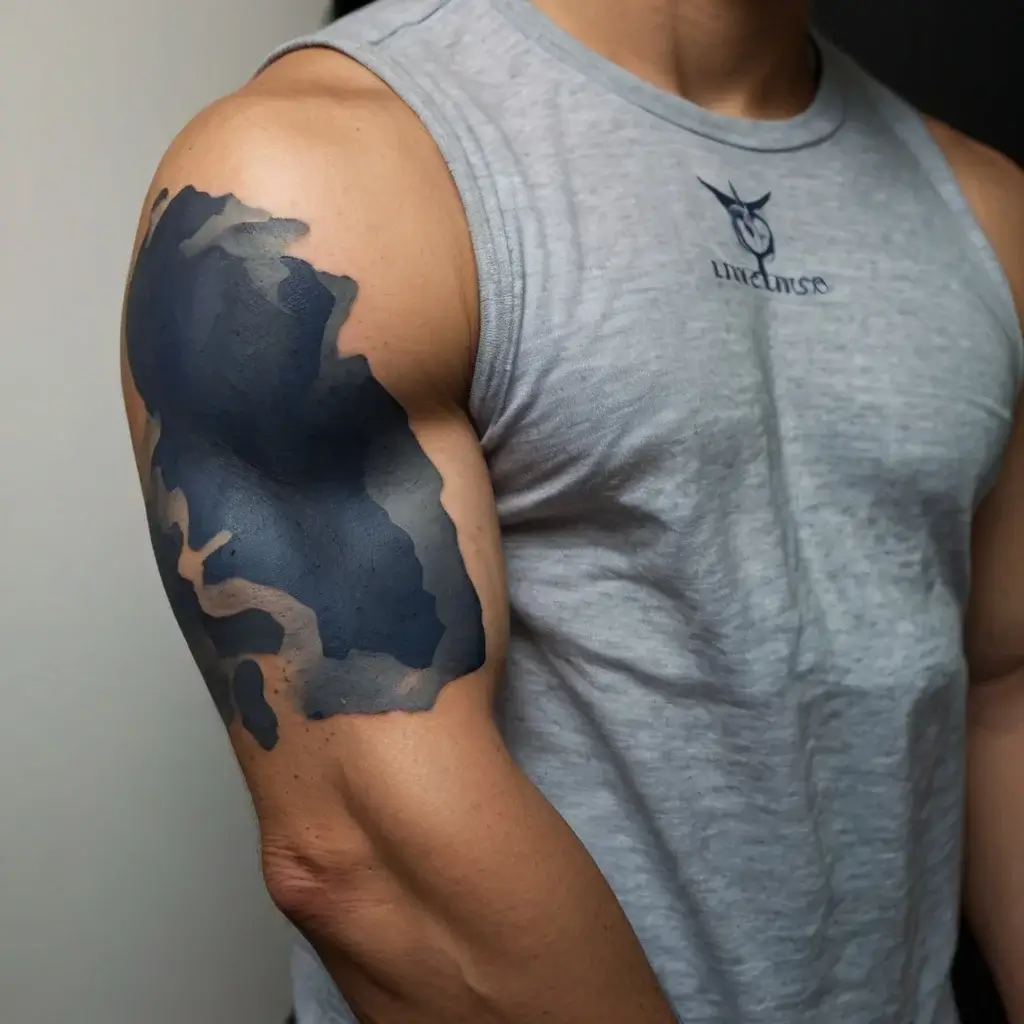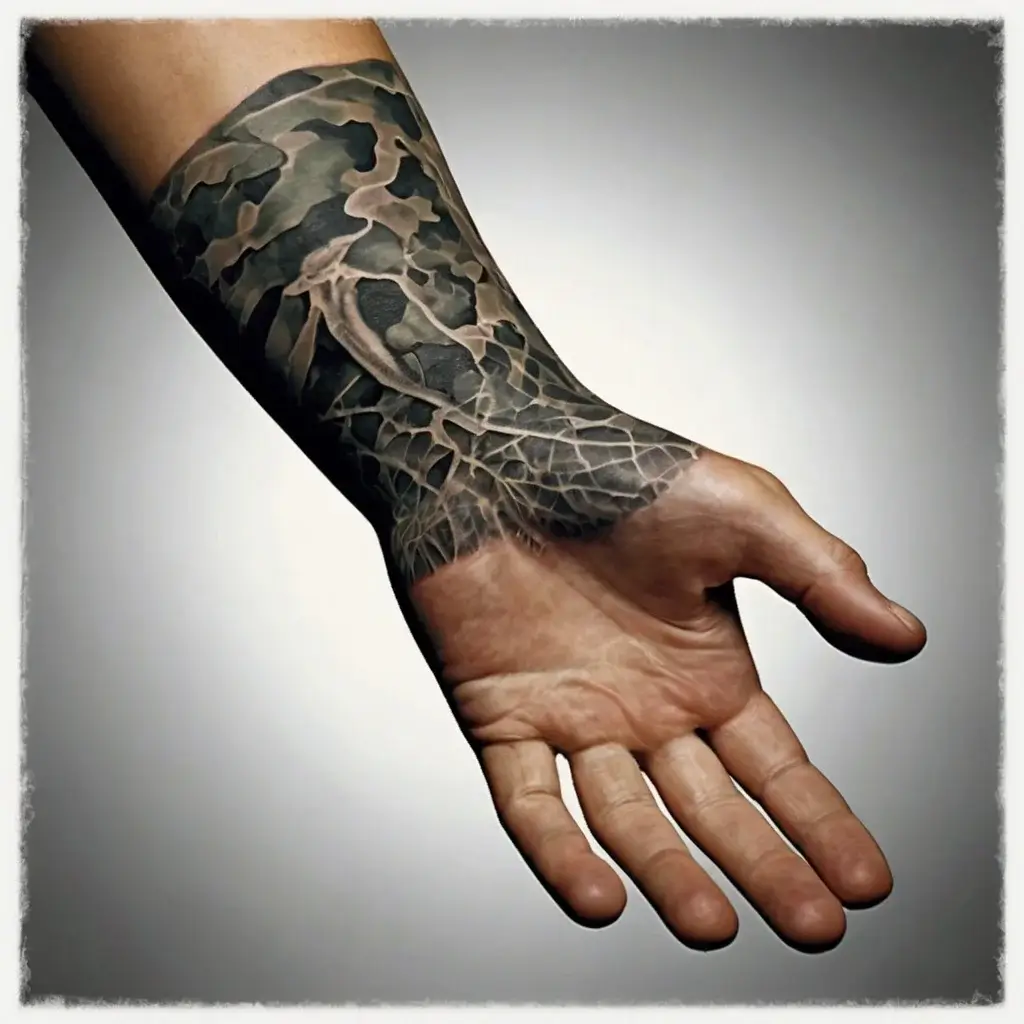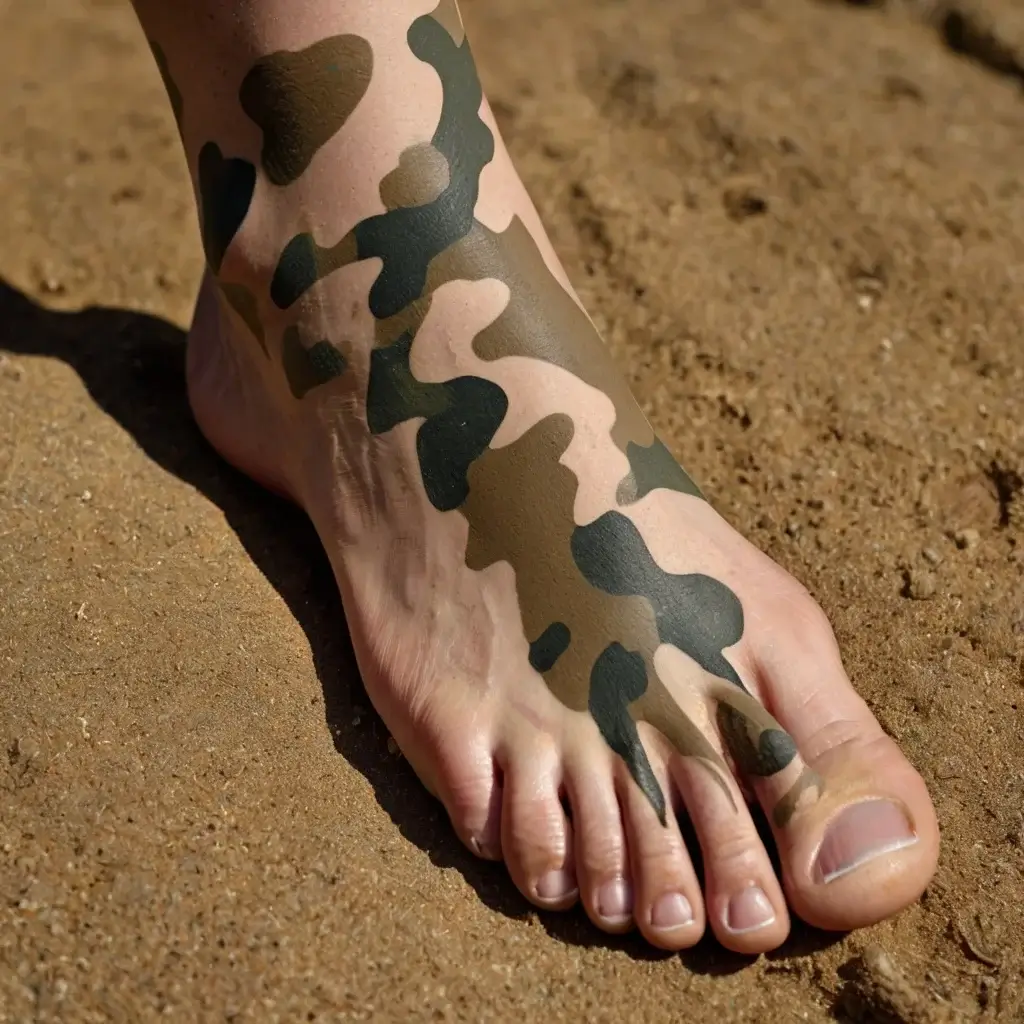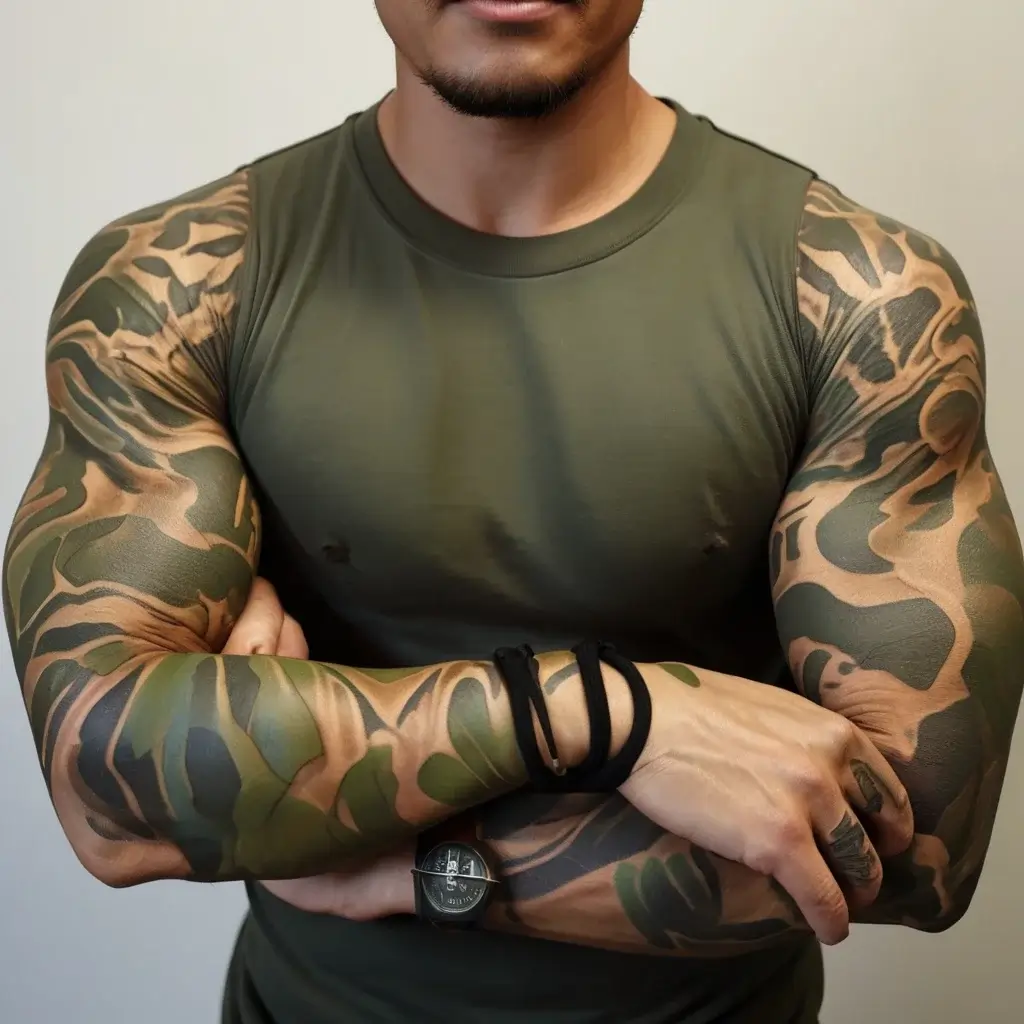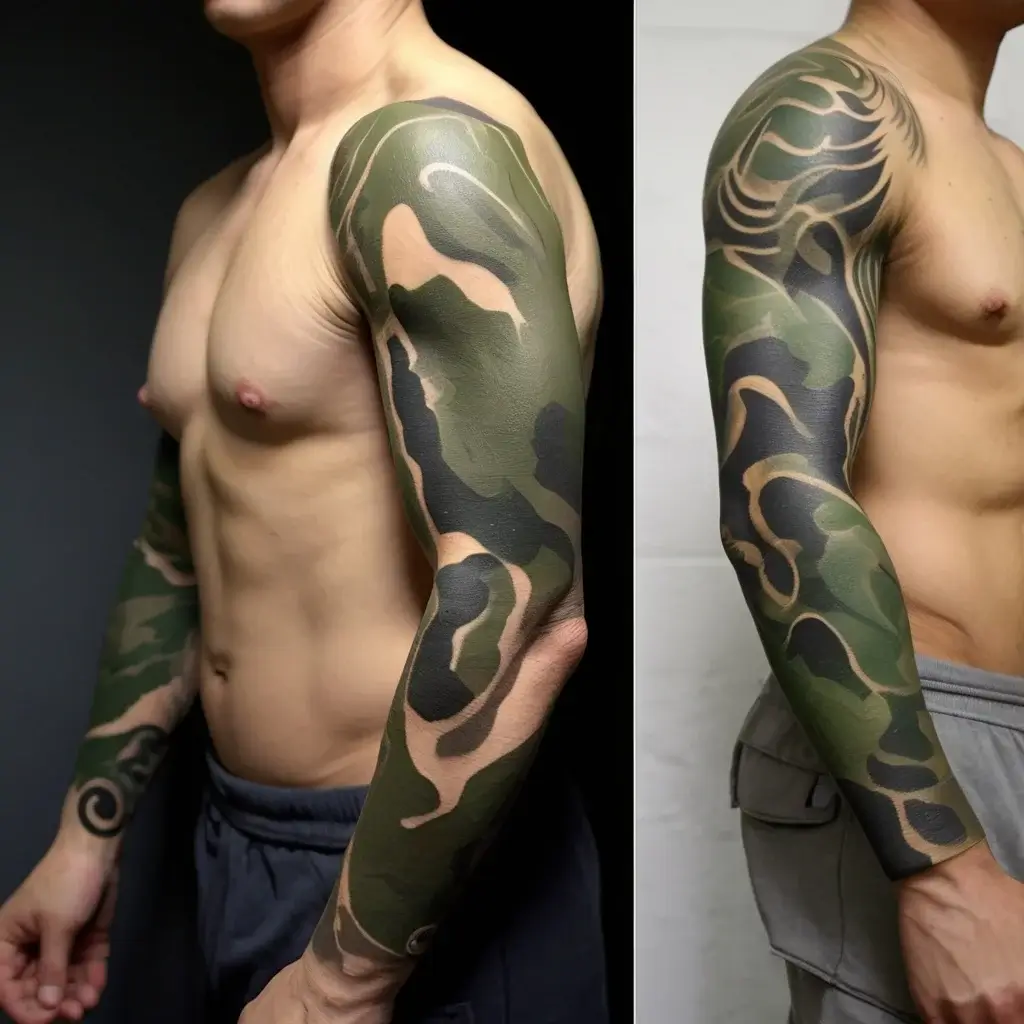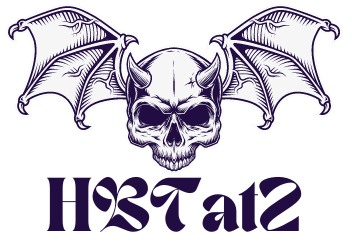Camo tattoos are more than just cool patterns—they carry real meaning. For some, they represent a connection to the military. For others, it’s about showing strength, survival, or staying grounded in tough times. These designs blend art with symbolism, making each tattoo personal and unique. In this article, we’ll look at the deeper meaning behind camo tattoos and share 73 different designs that reflect their power and beauty. Whether you’re considering one or just curious, there’s plenty to explore.
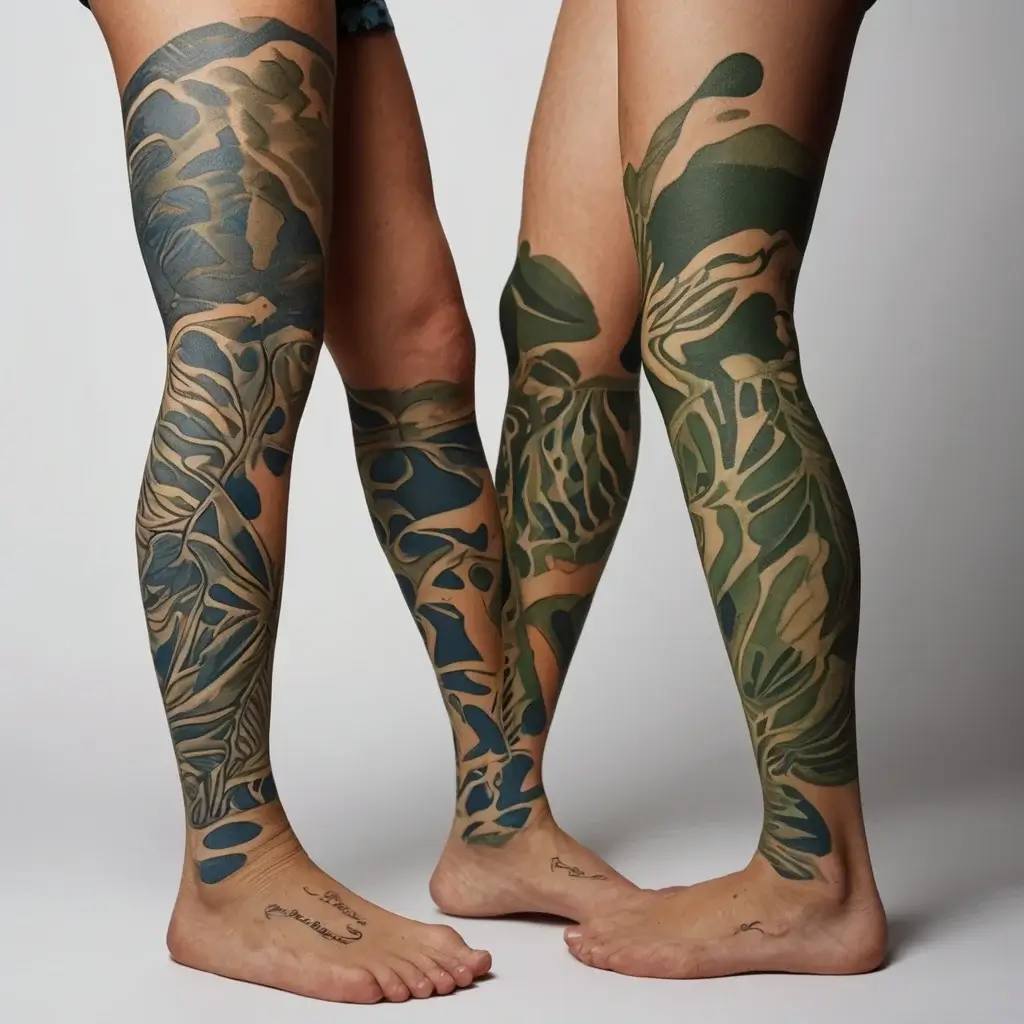
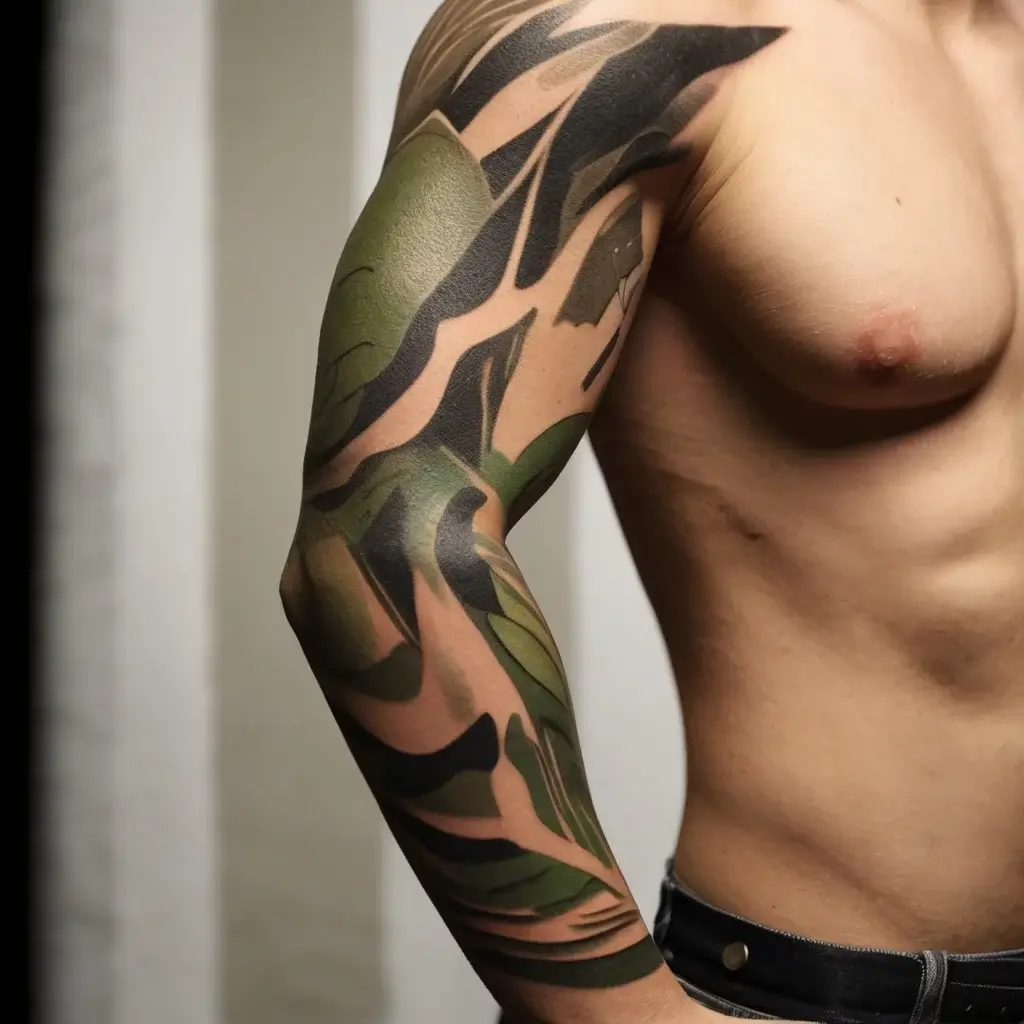
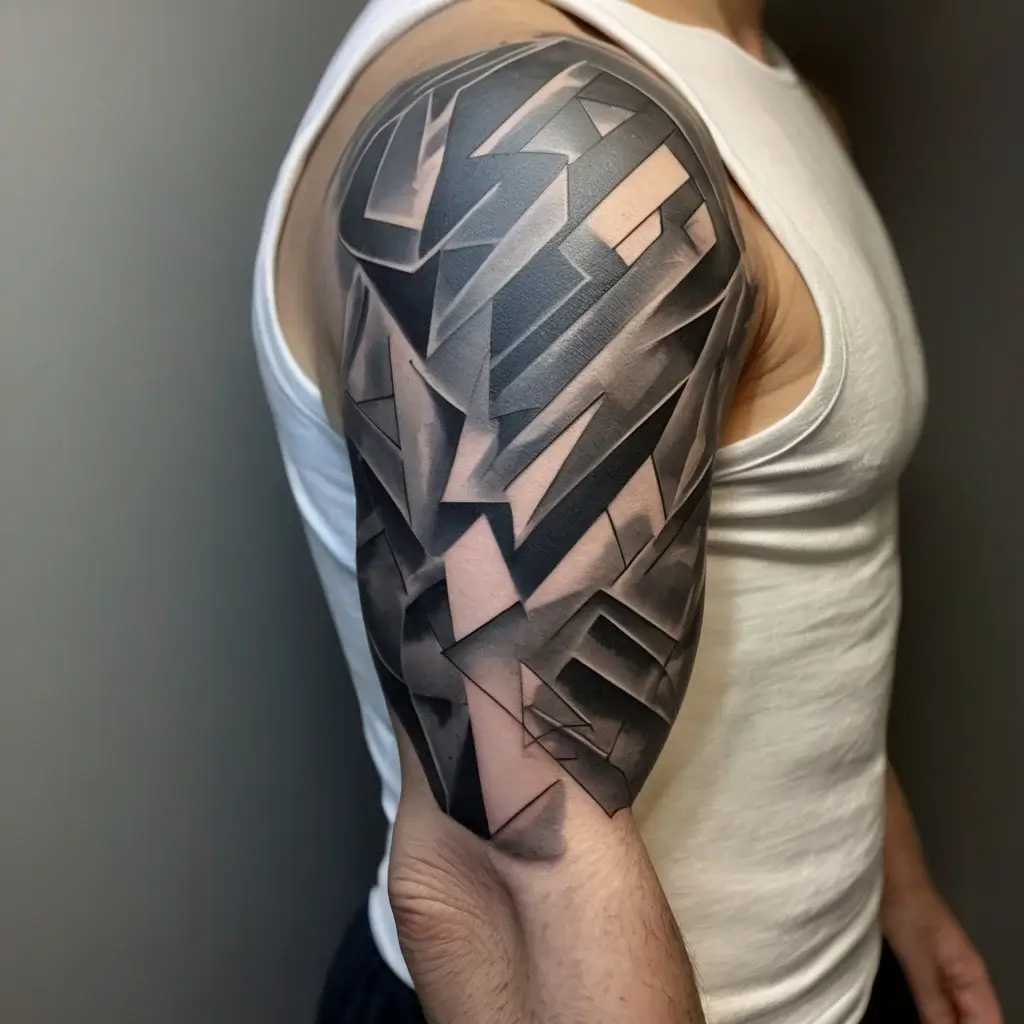
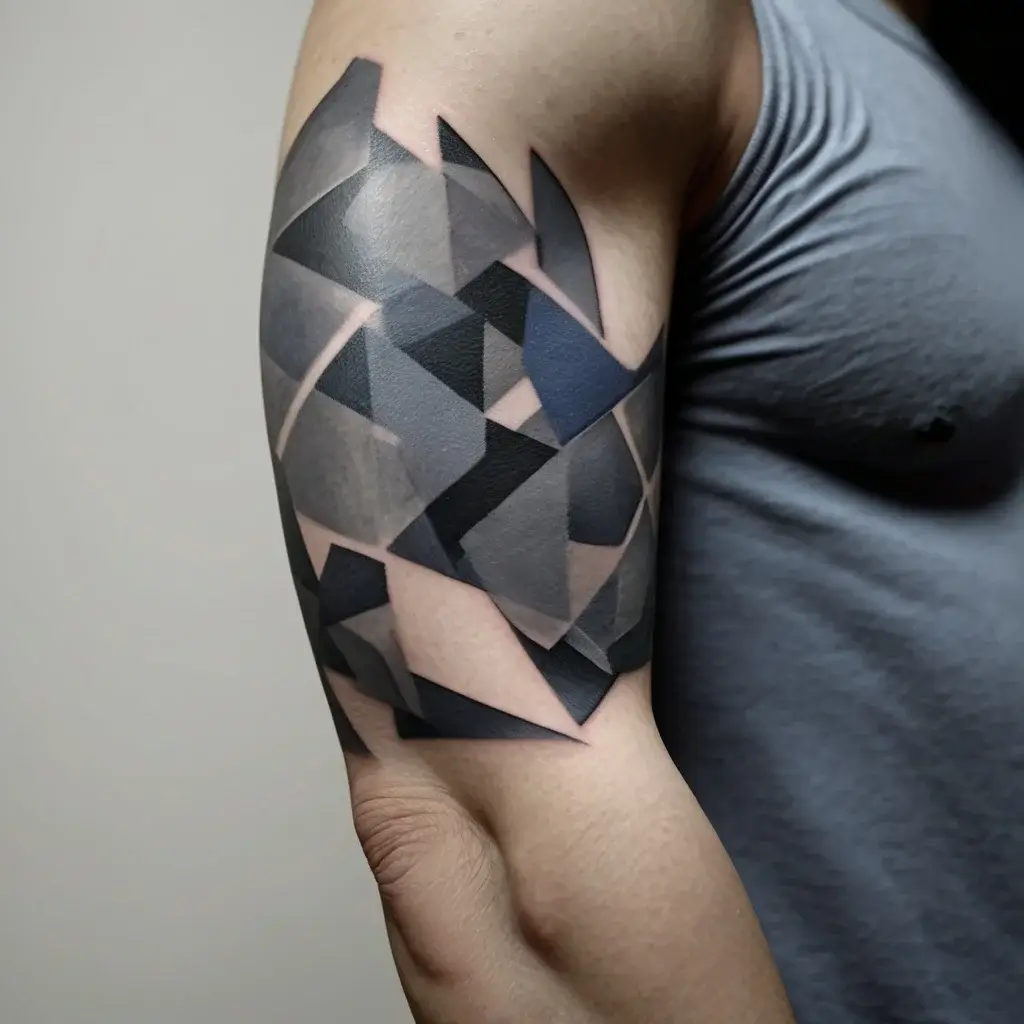
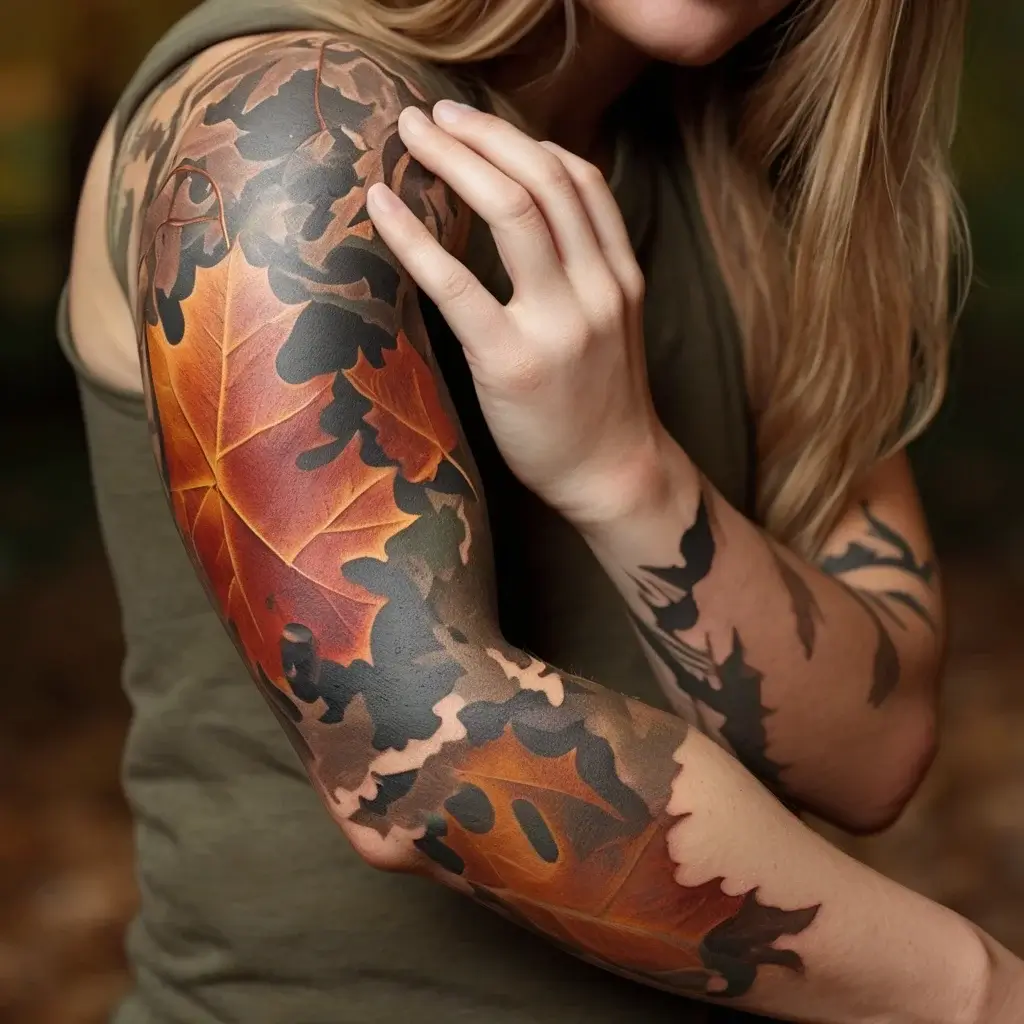
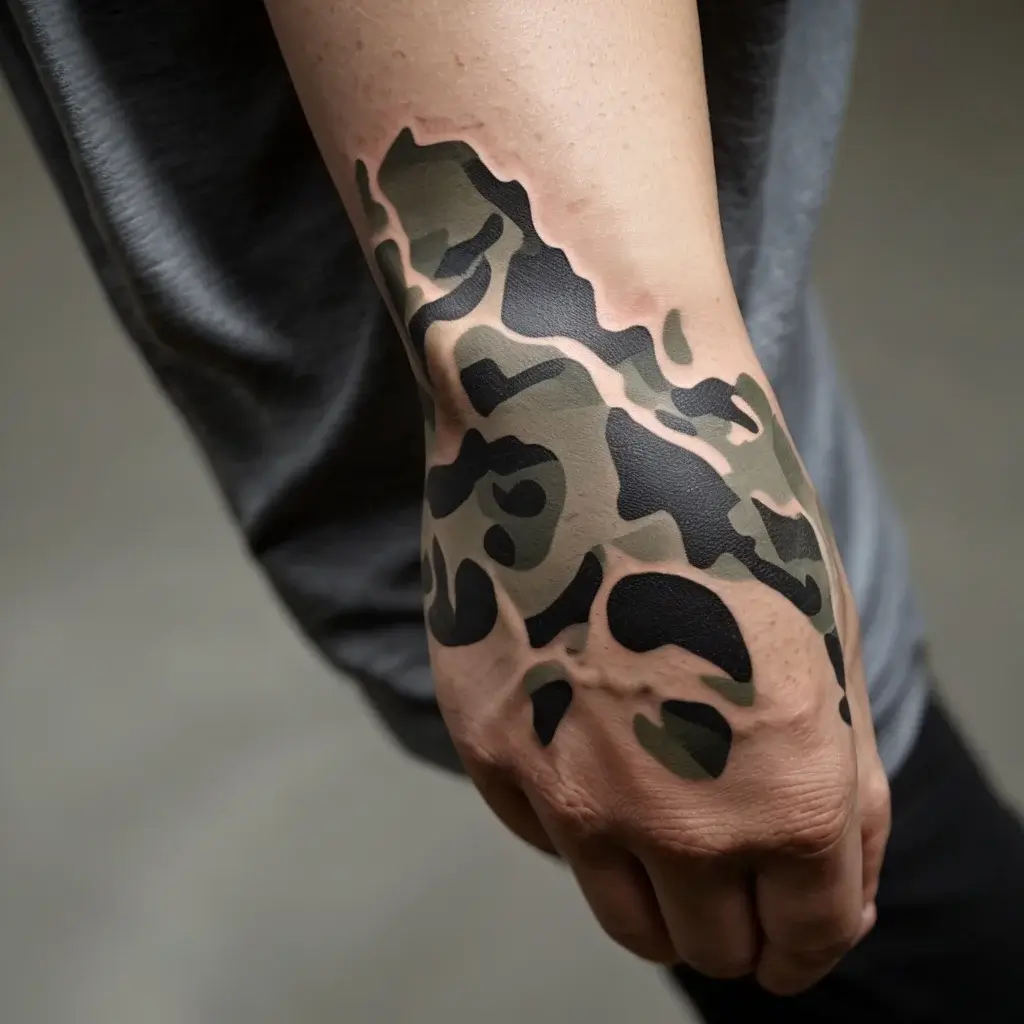
Historical Background of Camouflage
Camouflage has a long and interesting history. It wasn’t always tied to the military. In fact, it started with something far simpler—nature. Animals have used camouflage to hide from predators for ages, and humans took notice. This natural idea was eventually adapted for use in battle.
Origin of Camouflage in Military Use
The use of camouflage in war goes back to the early 1900s. During World War I, soldiers needed to stay hidden from their enemies. They began to cover themselves with paint and natural materials like leaves and mud. But as warfare evolved, so did their methods. Armies developed specific patterns to blend into forests, deserts, or snow-covered landscapes. By World War II, camouflage became a regular part of a soldier’s uniform. It wasn’t just about hiding—it represented a new way of fighting, where strategy and stealth mattered as much as firepower.
How Camouflage Transitioned into Popular Culture?
After the wars, camouflage patterns started showing up in everyday life. It wasn’t just for soldiers anymore. In the 1960s and 1970s, people wore camo to protest wars or make a statement. It became a symbol of resistance and rebellion. By the 1990s, camo exploded into fashion. Hip-hop artists and streetwear brands embraced the pattern. Today, you see camo everywhere—from jackets to shoes. It’s no longer just for blending in but also for standing out, representing boldness and resilience.
The Evolution of Camouflage in Tattoo Art
Tattoos, like camouflage, have changed over time. At first, camo tattoos were mostly worn by veterans. They were a way to honor their service and remember their experiences. But over the years, this style has become more popular. Many people get camo tattoos not just for military reasons, but because they love the unique look. The design often symbolizes strength, survival, or connection to nature. Each tattoo tells a personal story, and no two are the same. It’s a design that means something different to everyone who wears it.
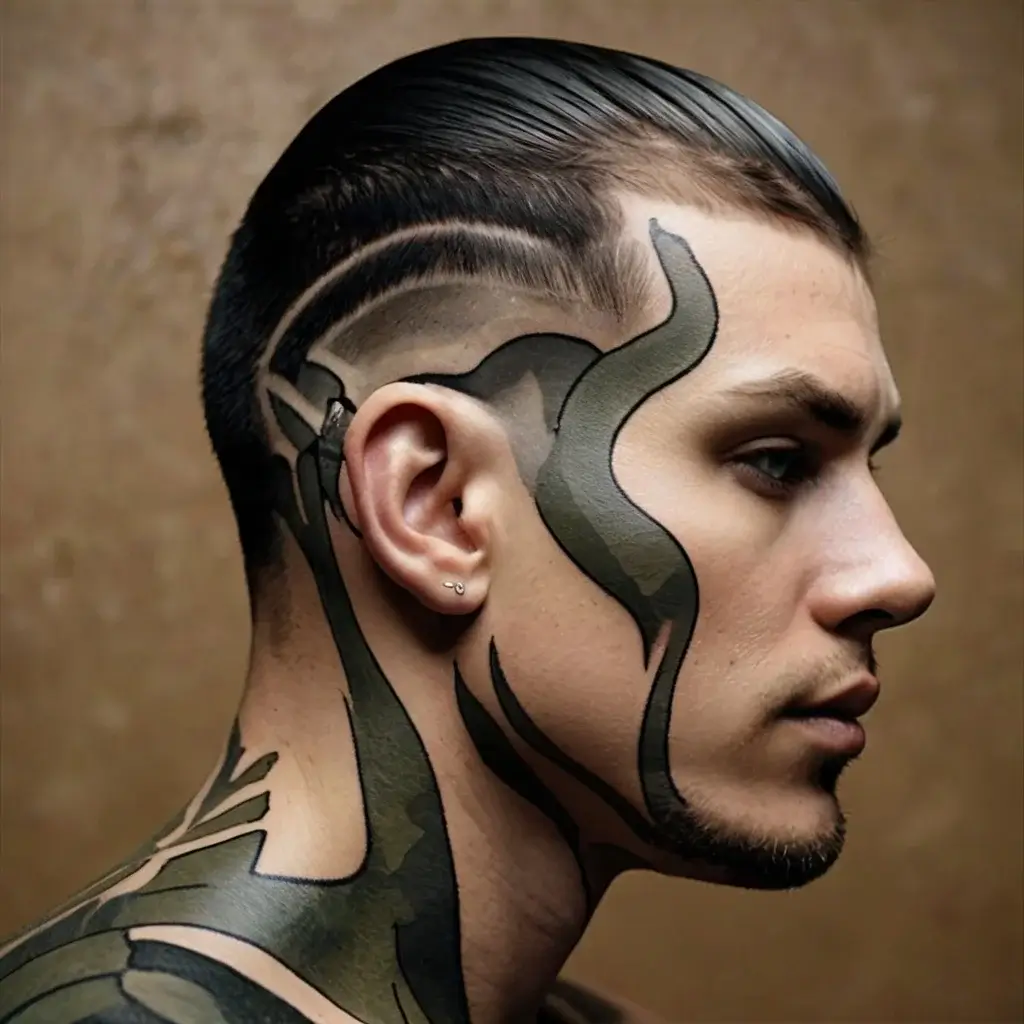
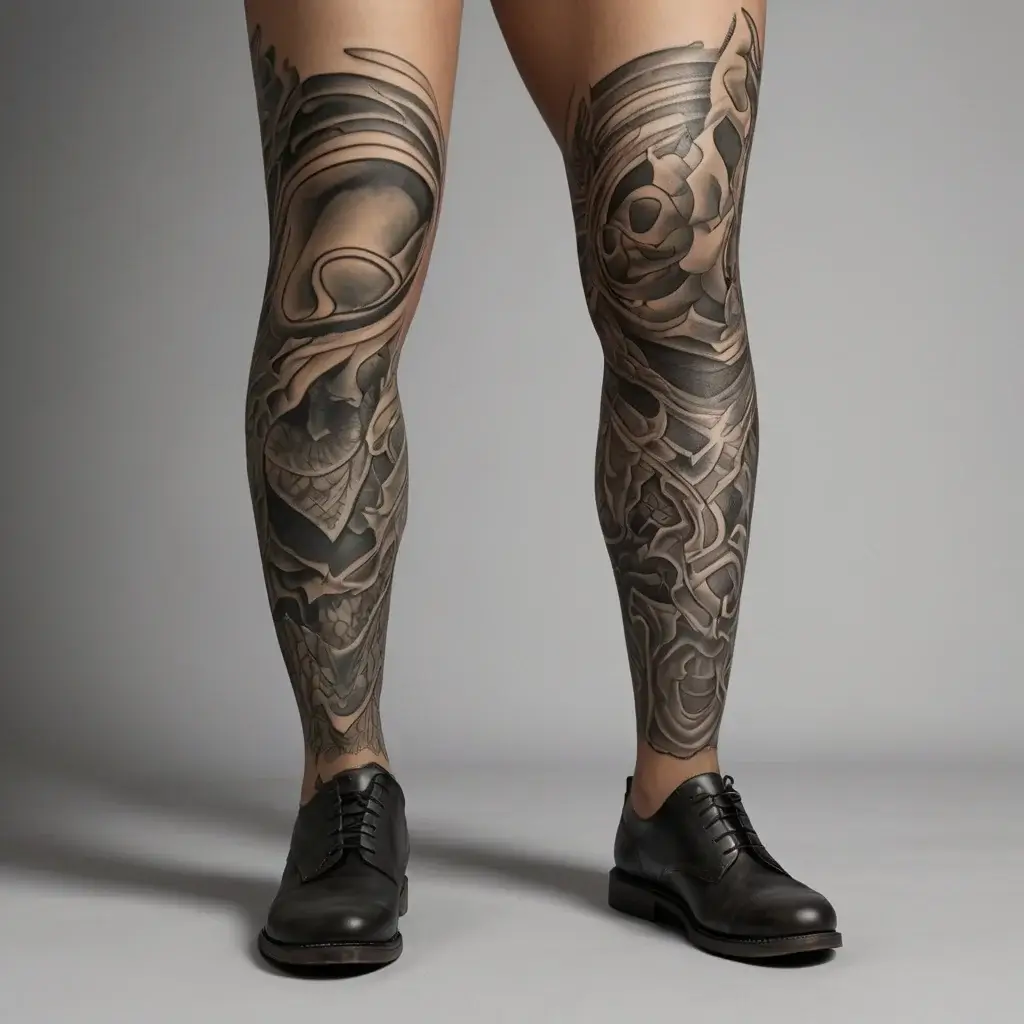
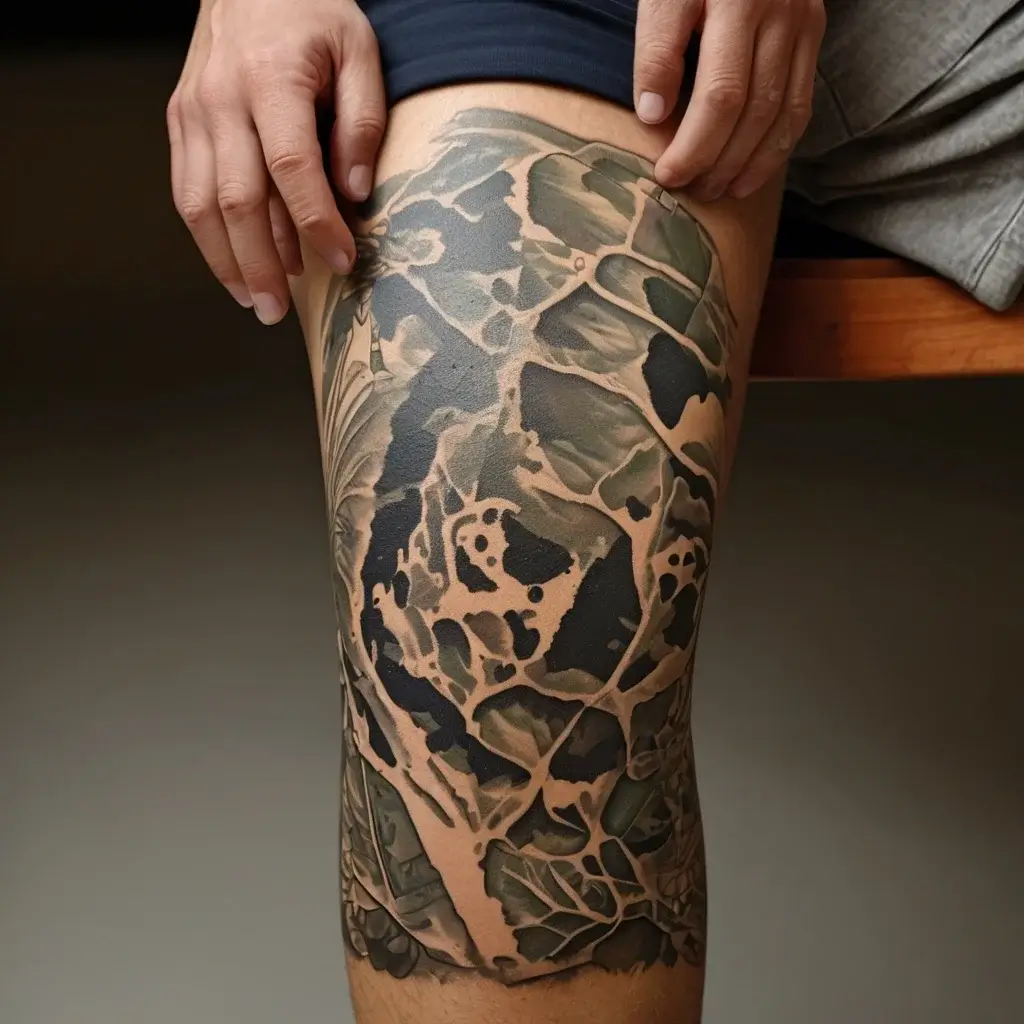
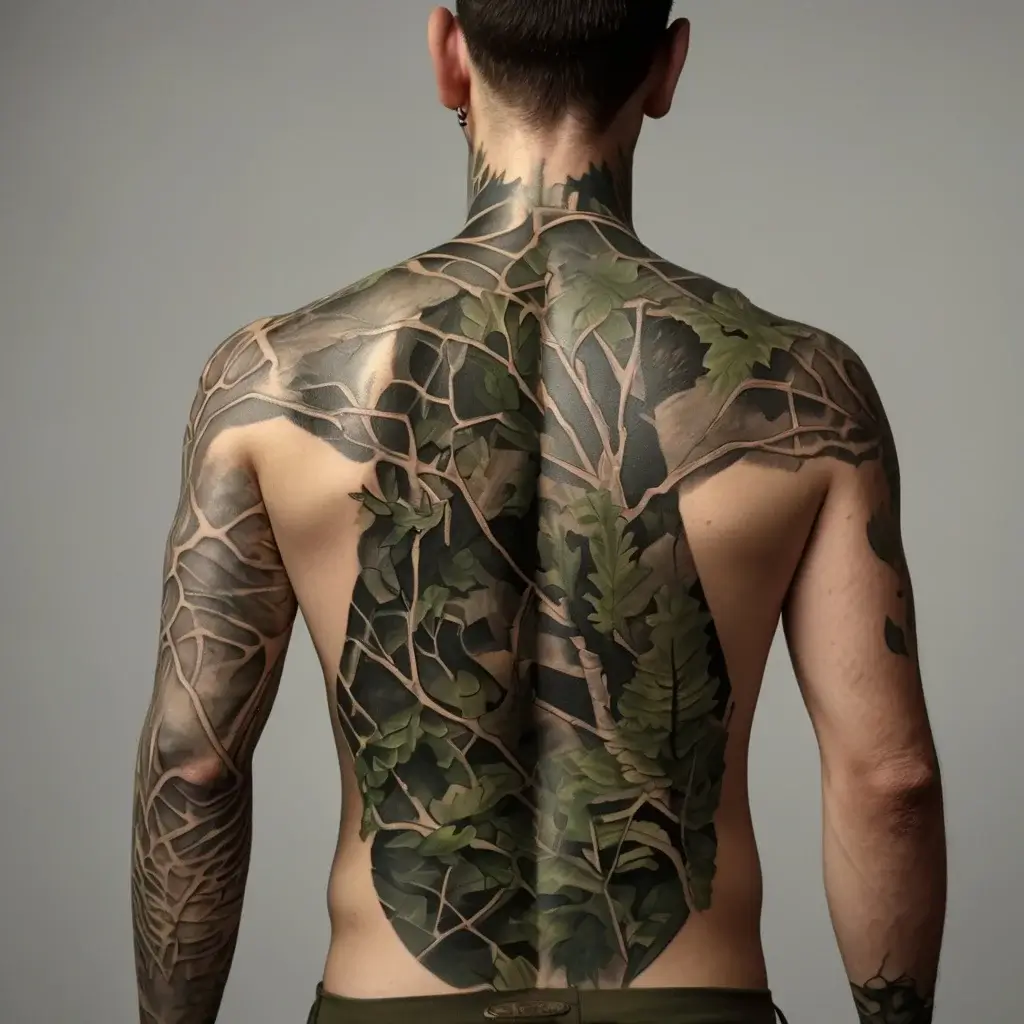
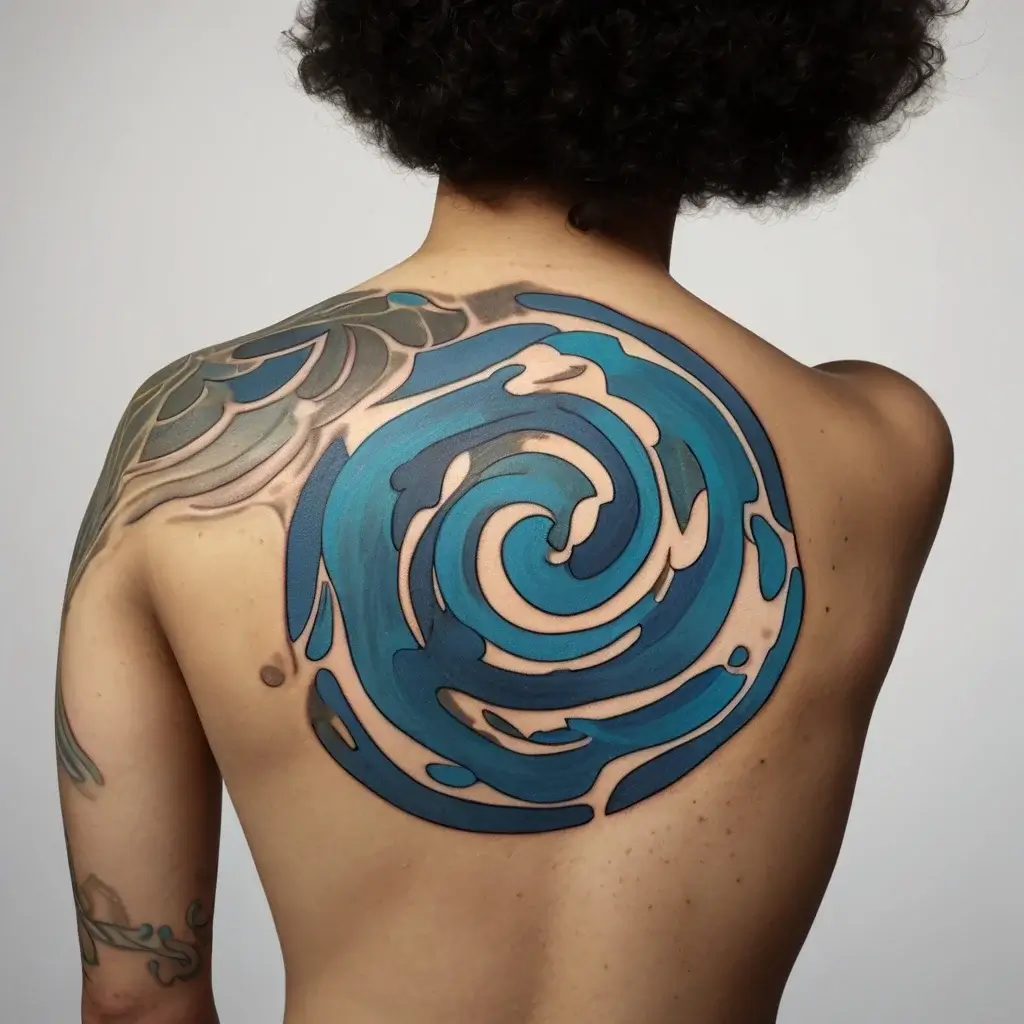
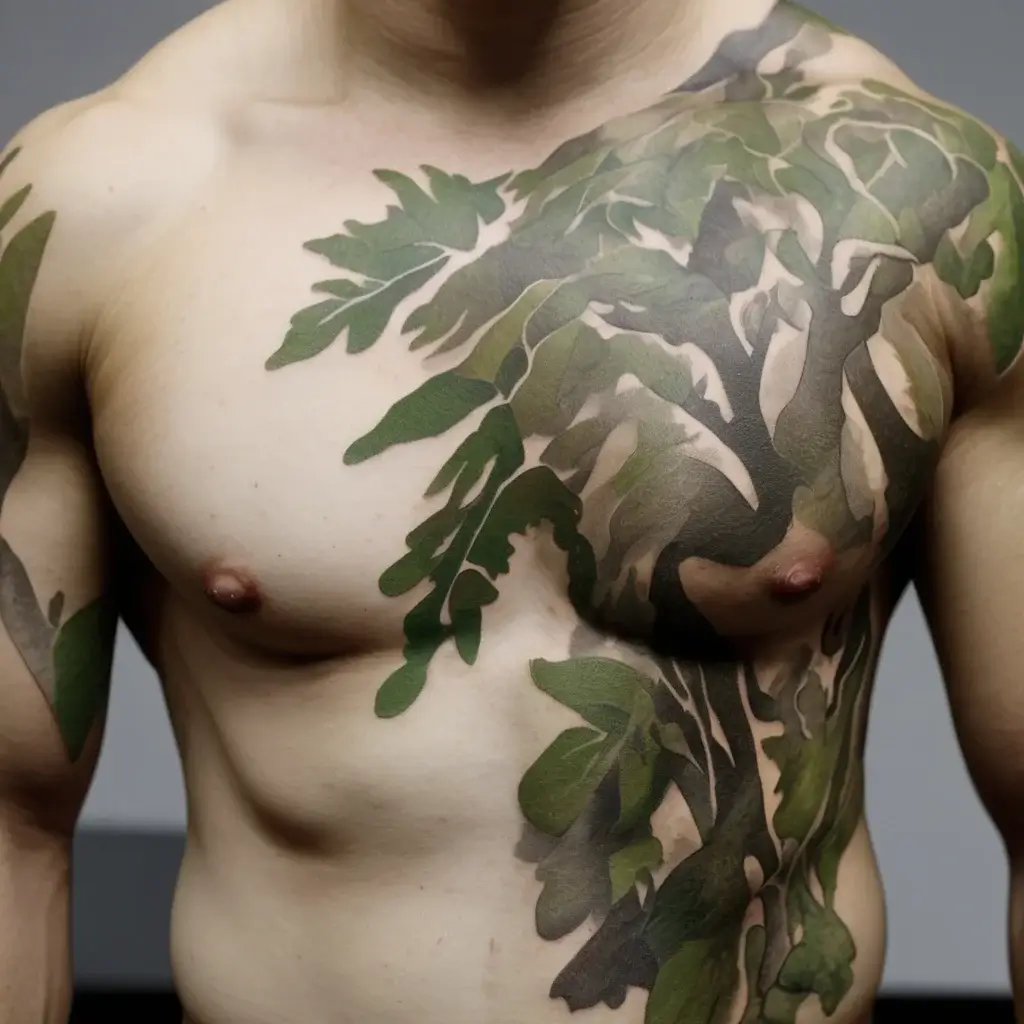
The Meaning Behind Camo Tattoos
Representing Strength and Resilience
At the heart of many camo tattoos is the idea of strength. Camouflage, by nature, is about blending in, surviving, and enduring. For those who wear these tattoos, it’s a way to show they’ve faced challenges and come out stronger. The patterns, with their rough edges and hidden depth, mirror the wearer’s resilience. It’s not about showing off, but about quietly holding firm through hard times.
Camouflage Tattoos as a Tribute to Military Service
For many, camo tattoos are a nod to military life. Soldiers often wear them as a mark of pride, representing their service and the bond they share with their comrades. The design isn’t just a pattern; it’s a badge of honor, a way to carry their experiences with them. These tattoos may symbolize specific moments, fallen brothers, or the sense of duty they hold dear.
Symbolizing Survival and Adaptation
Camouflage is about blending into your surroundings, and for many, that idea holds personal significance. A camo tattoo can reflect the ability to adapt to tough situations or overcome obstacles. It’s a symbol of survival—of getting through life’s battles, both big and small. People choose this design to remind themselves of their ability to move through challenges, and blend in when needed, but never lose their sense of self. It’s about survival, both physical and emotional.
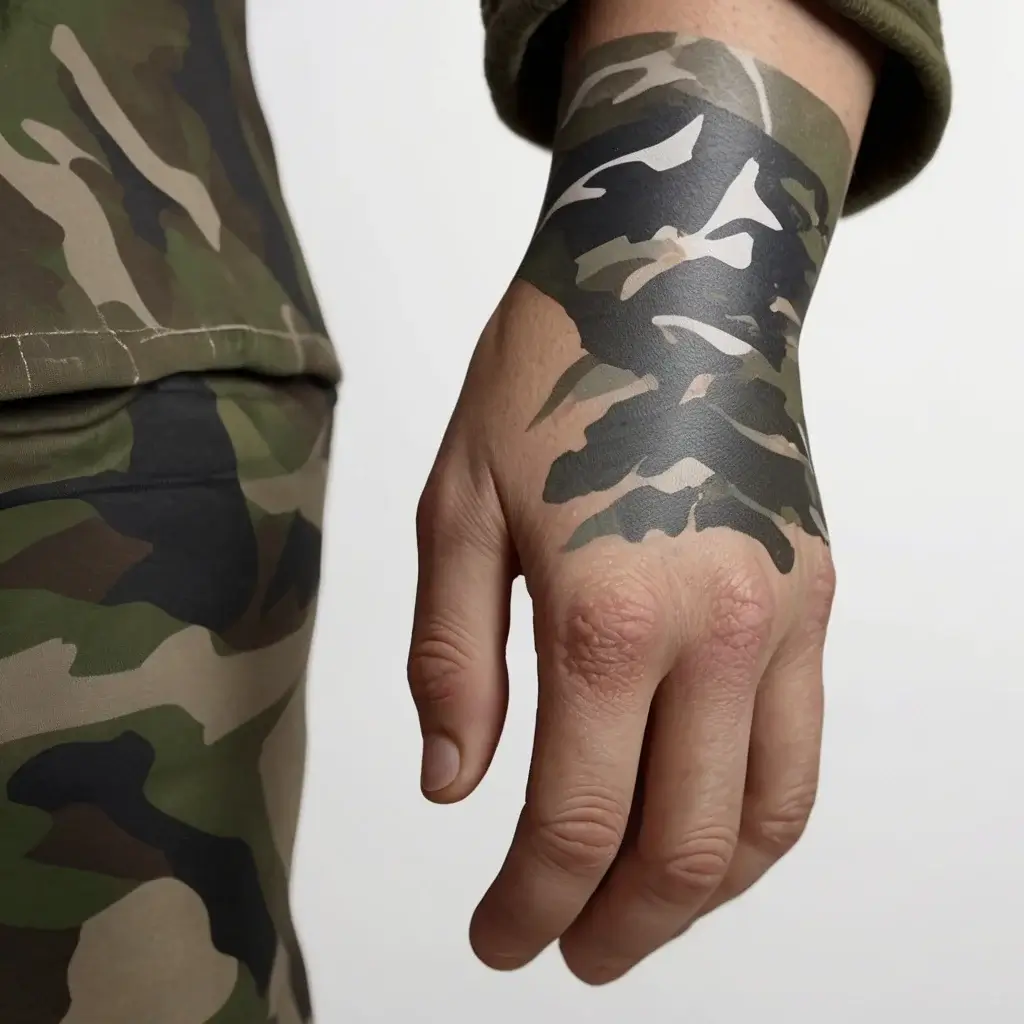
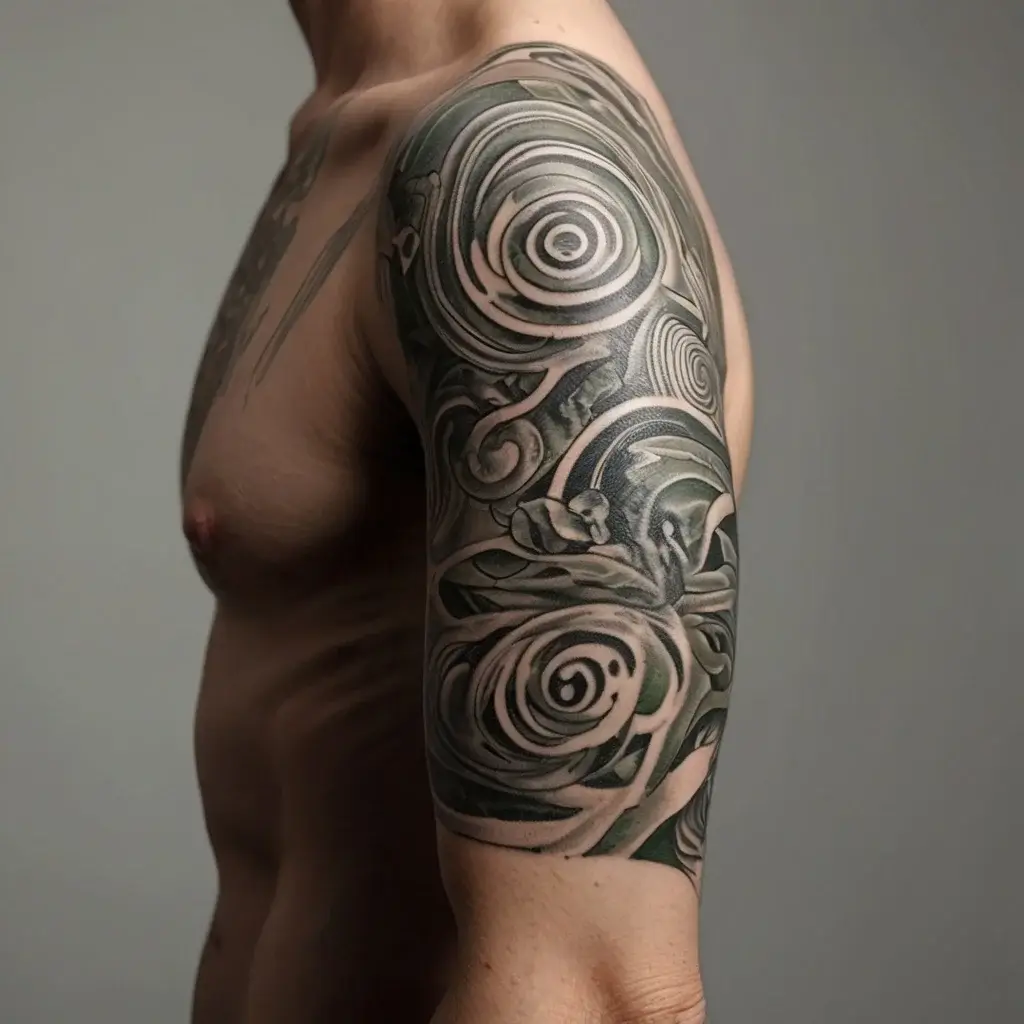
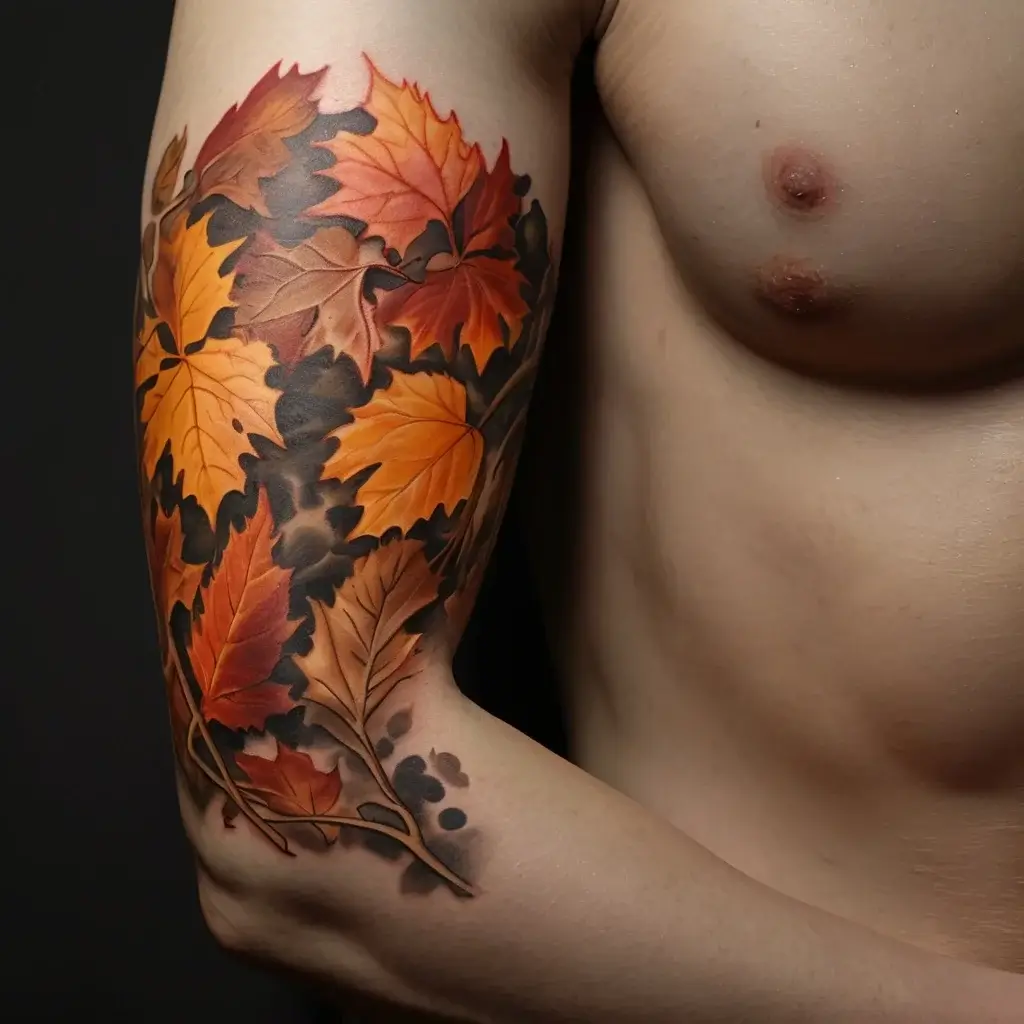
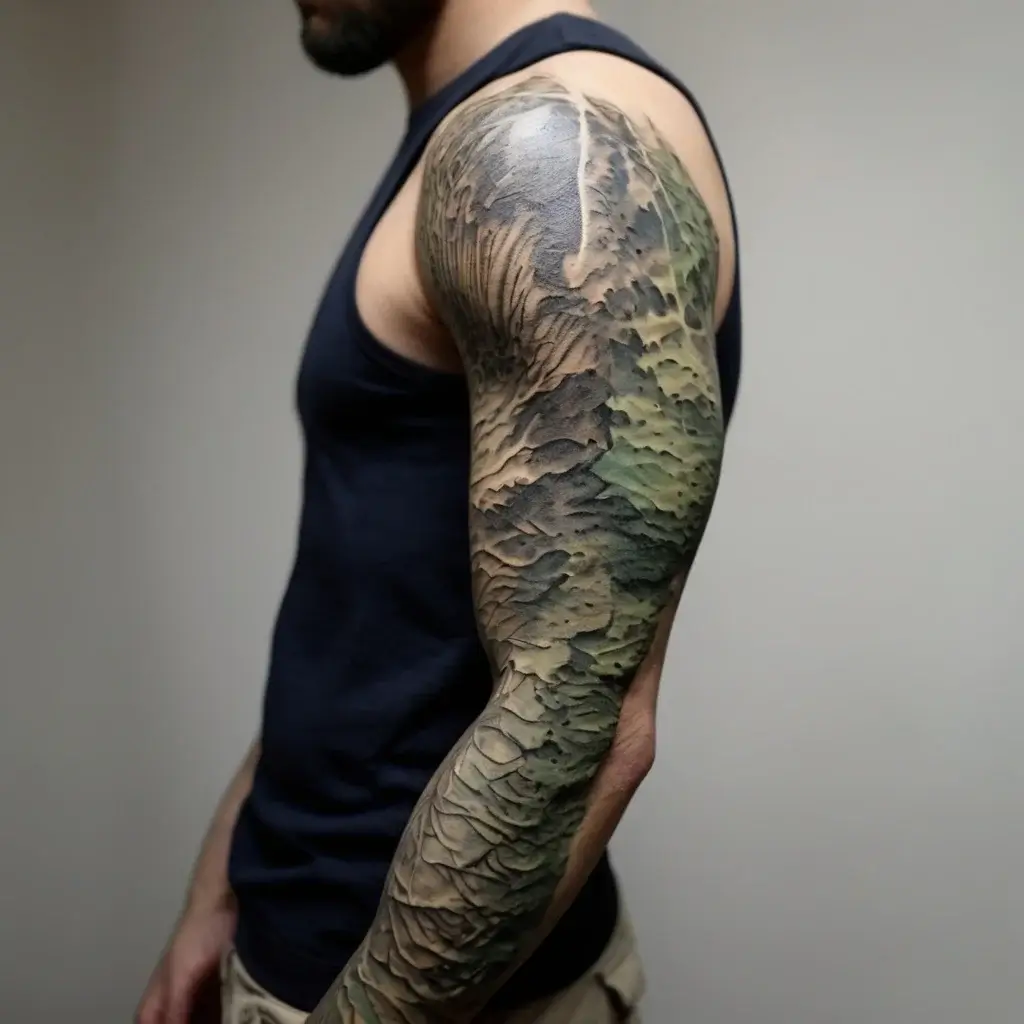
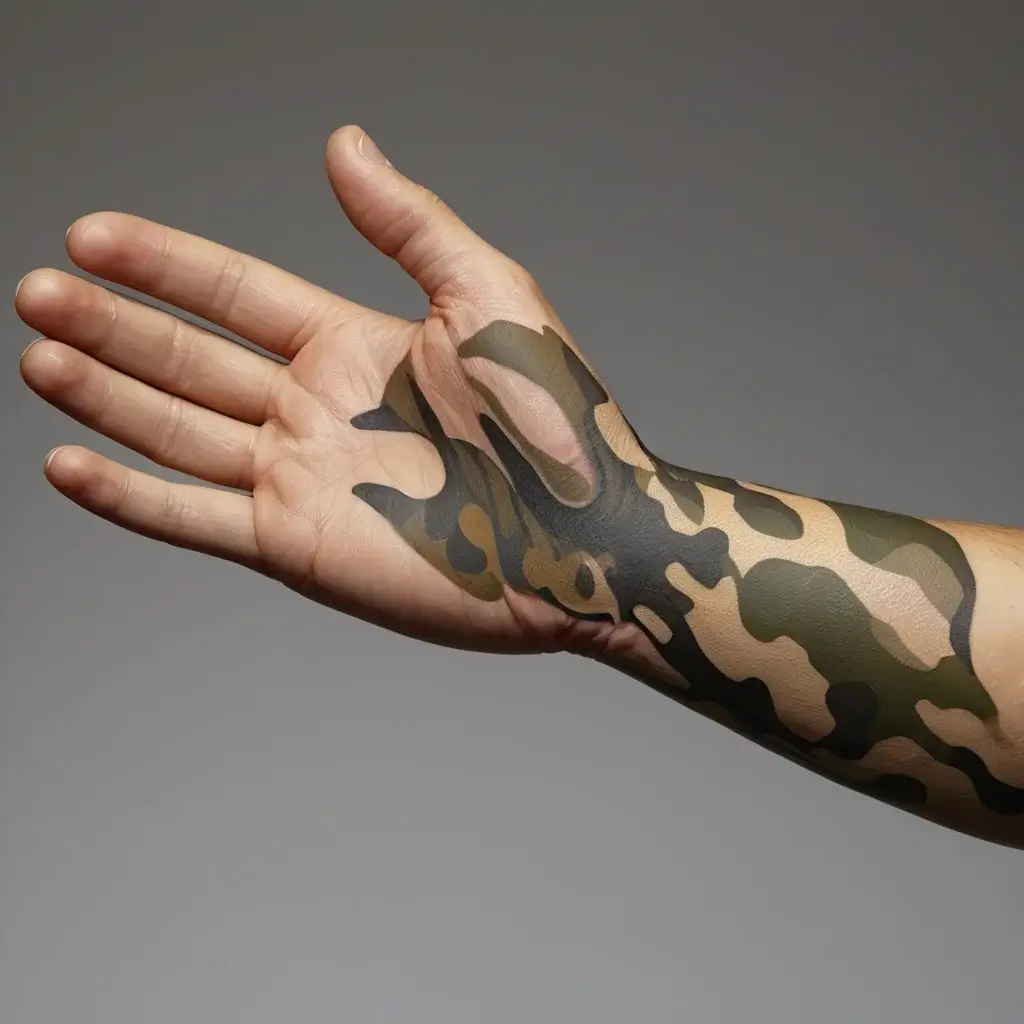
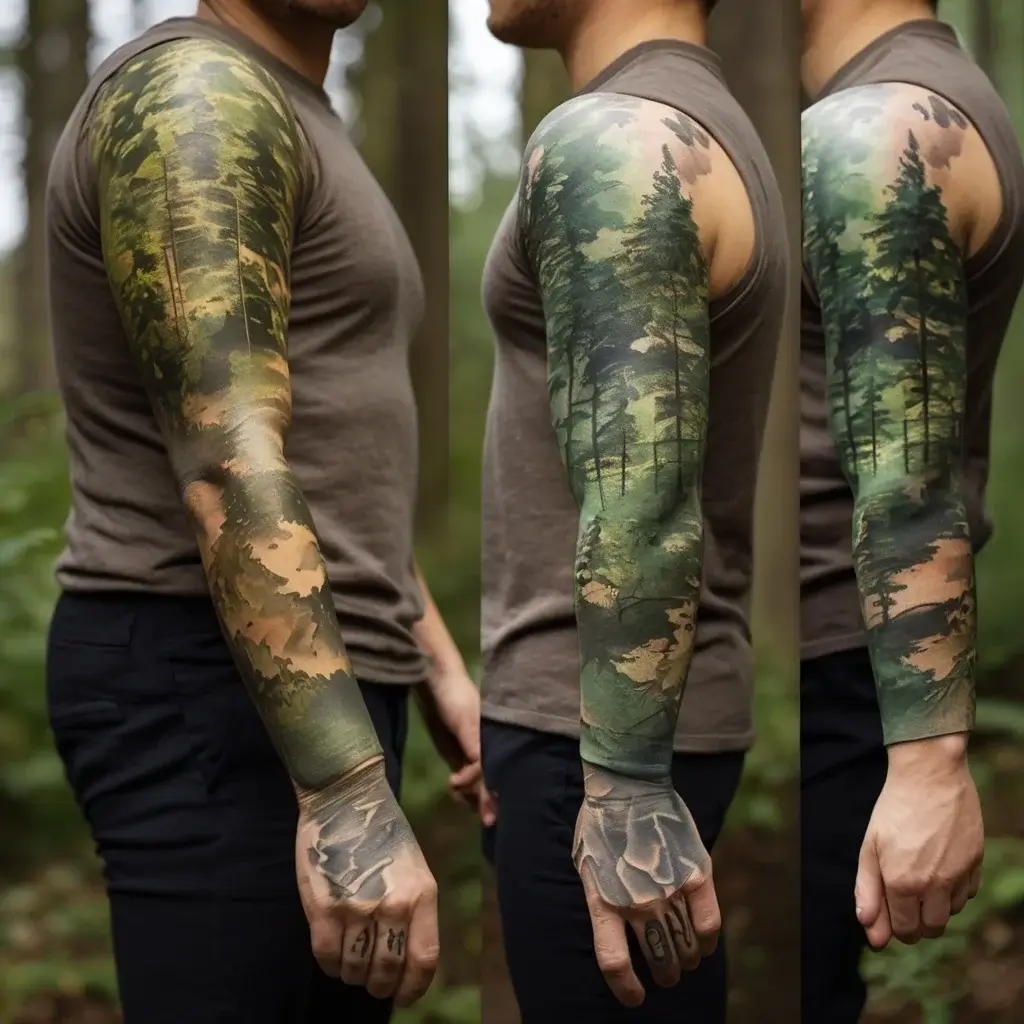
Symbolism of Camo Tattoos
Blending In or Standing Out?
Camouflage is meant to help you blend into your surroundings, but when used in tattoo art, it often does the opposite. For many, a camo tattoo is about standing out and showing strength and individuality. It’s a way to embrace both invisibility and boldness at once—allowing you to choose when to be seen and when to stay in the background. This tension between blending in and standing out is at the heart of what makes camo tattoos so unique.
The Dual Nature of Camouflage: Protection and Concealment
Camouflage serves a double purpose—it protects and conceals. In tattoos, this dual nature comes through in the meaning behind the design. Some people get camo tattoos as a form of emotional protection, using the design to shield parts of their identity or past. Others see the tattoo as a way of honoring their ability to stay hidden when needed, yet step forward when necessary. This combination of defense and concealment makes camo tattoos deeply symbolic of survival and strength.
Personal Interpretations of Camouflage Designs
Every camo tattoo tells a different story. While some may see it as a tribute to military service, others connect with the design in more personal ways. The colors, patterns, and placement all reflect individual journeys. For some, it’s a symbol of resilience through tough times. For others, it represents their ability to adapt and change. No two camo tattoos are alike because each one is tied to the wearer’s unique experiences and personal growth.
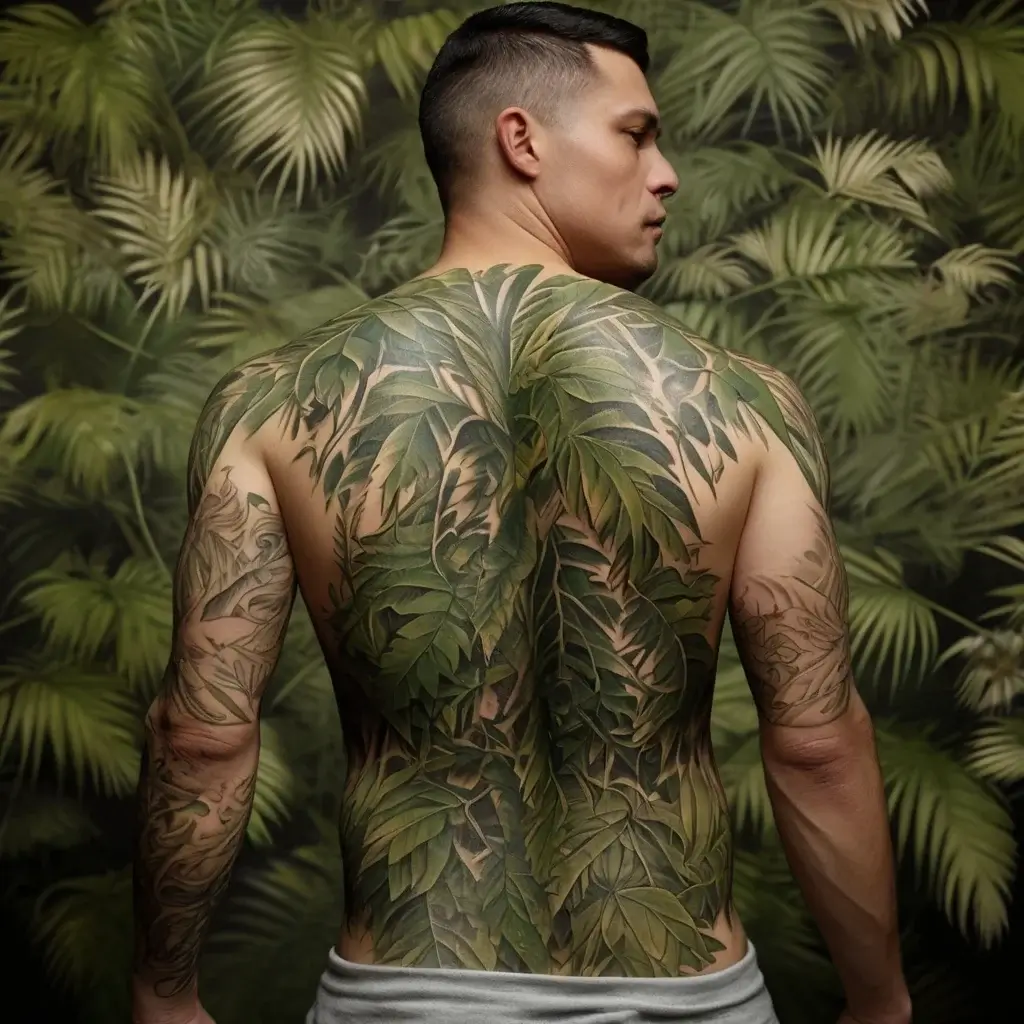
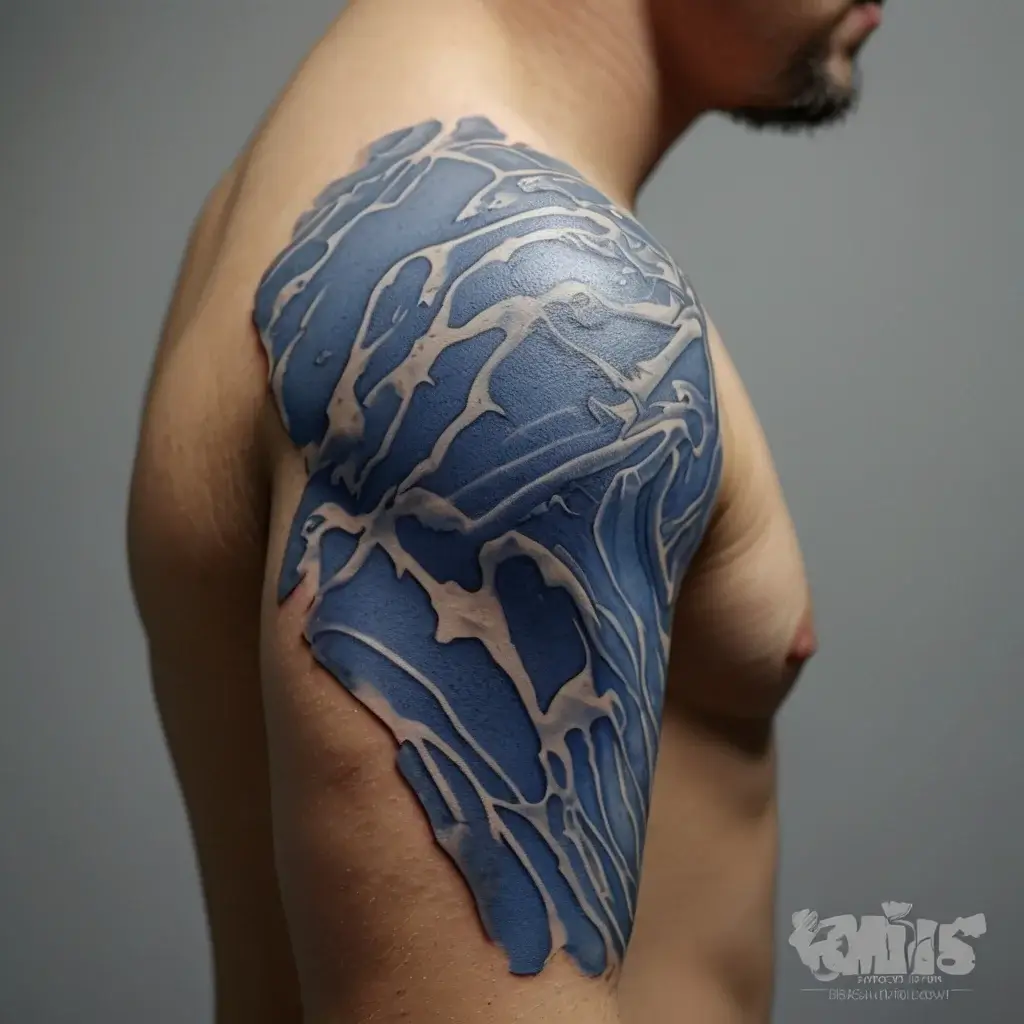
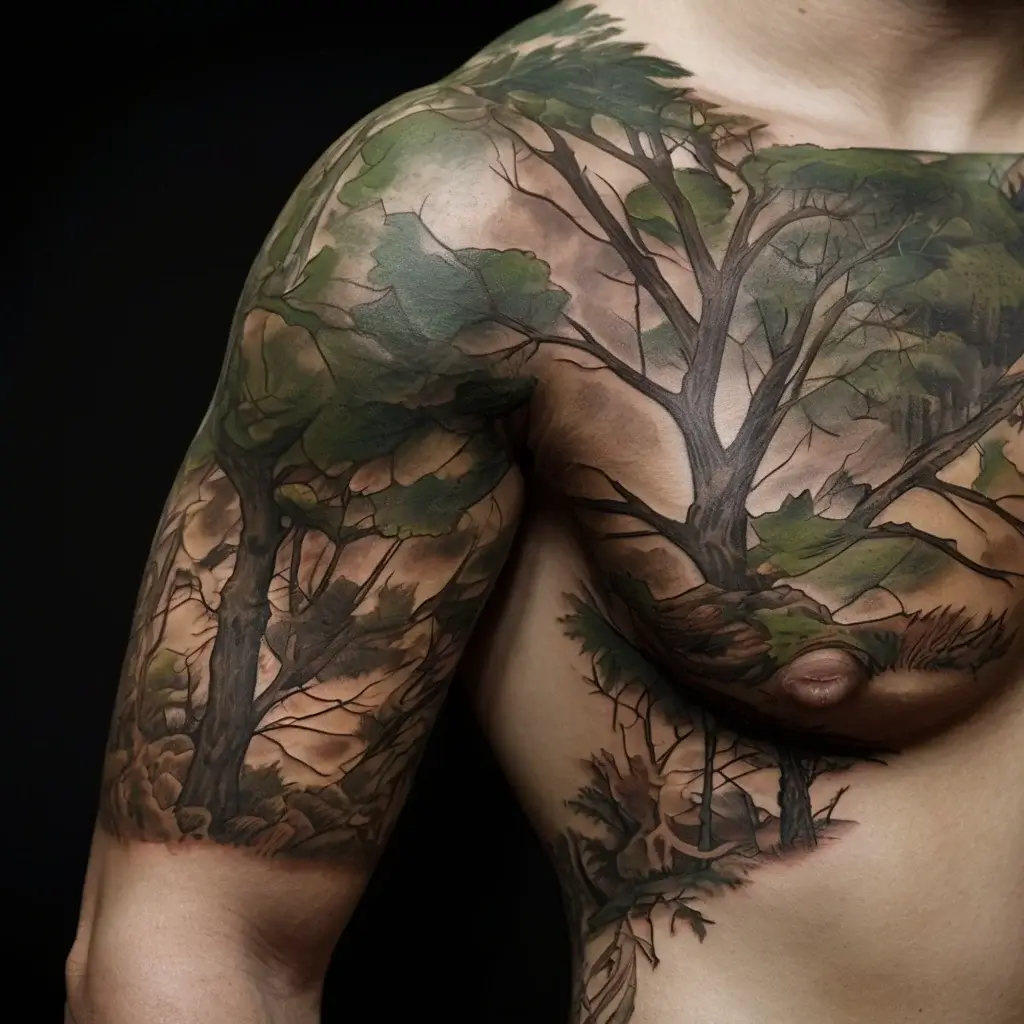
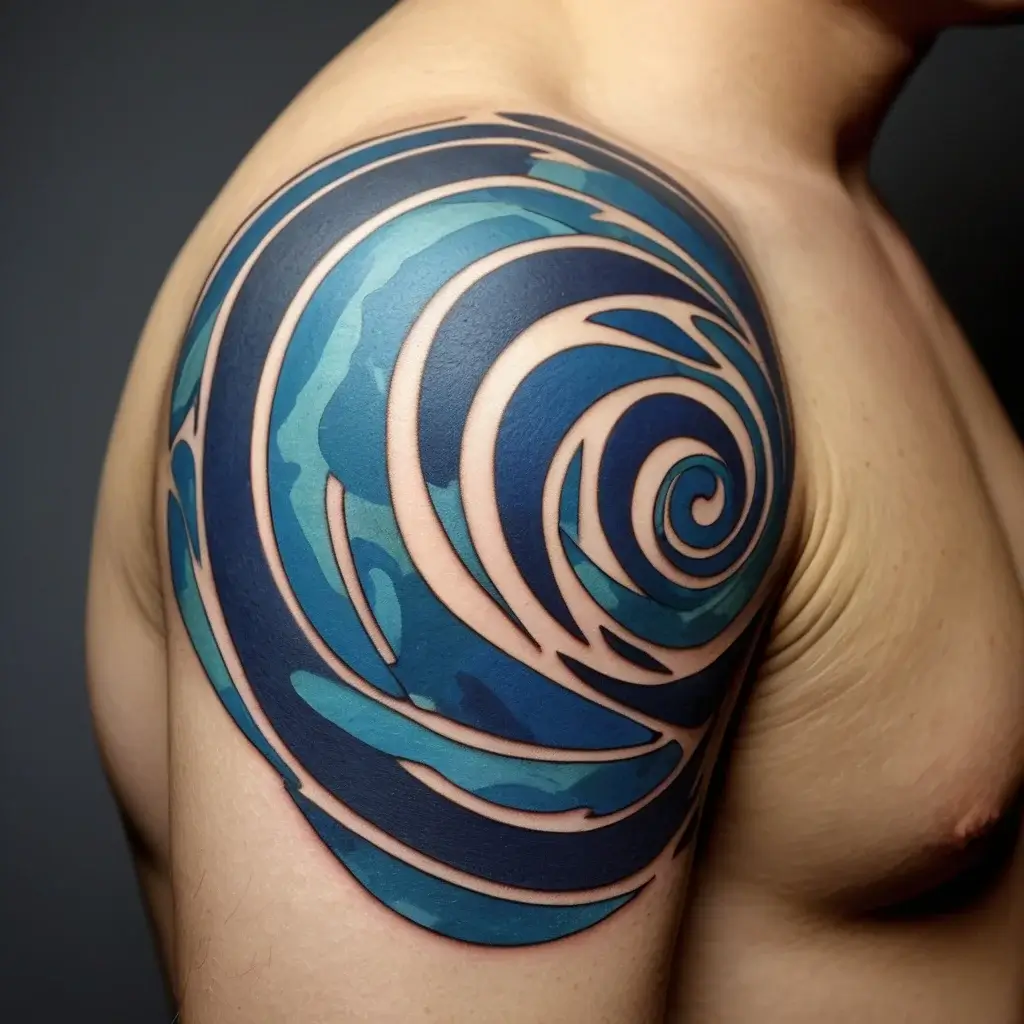
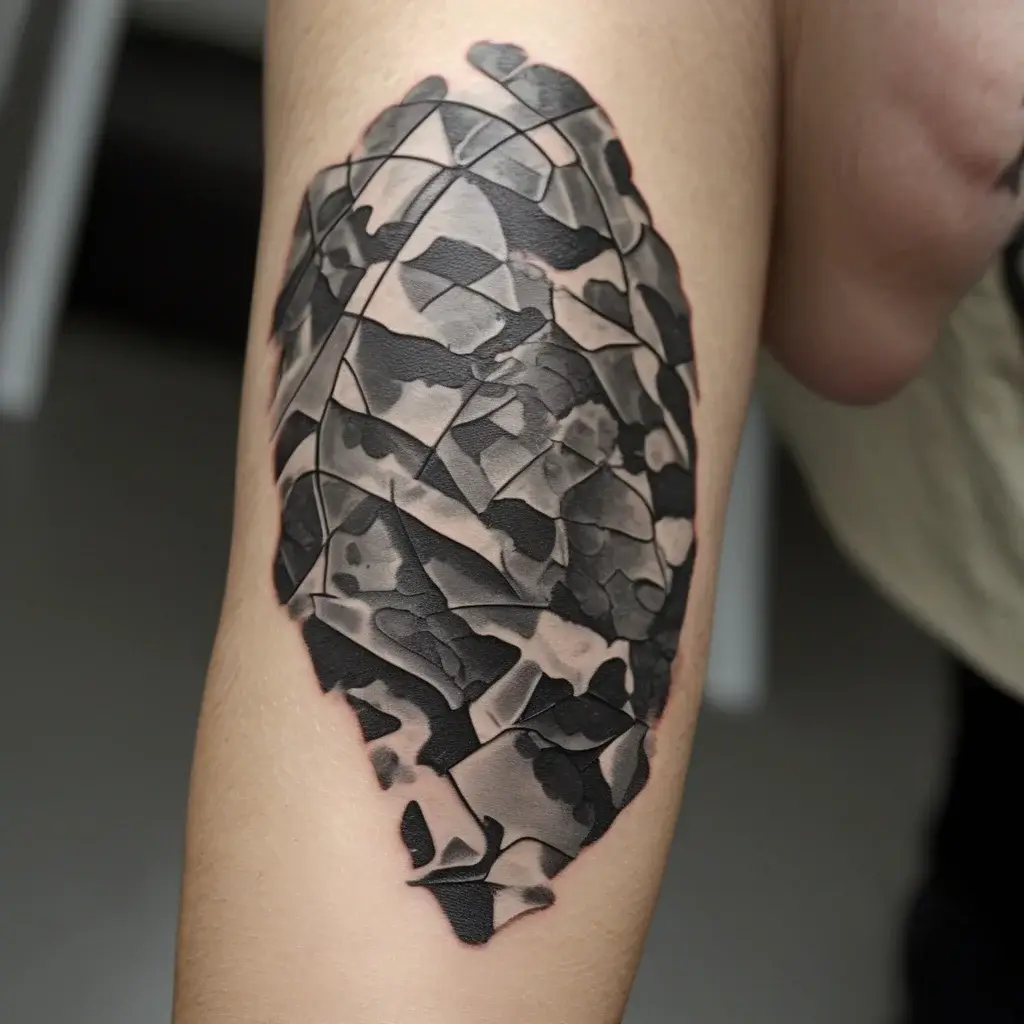
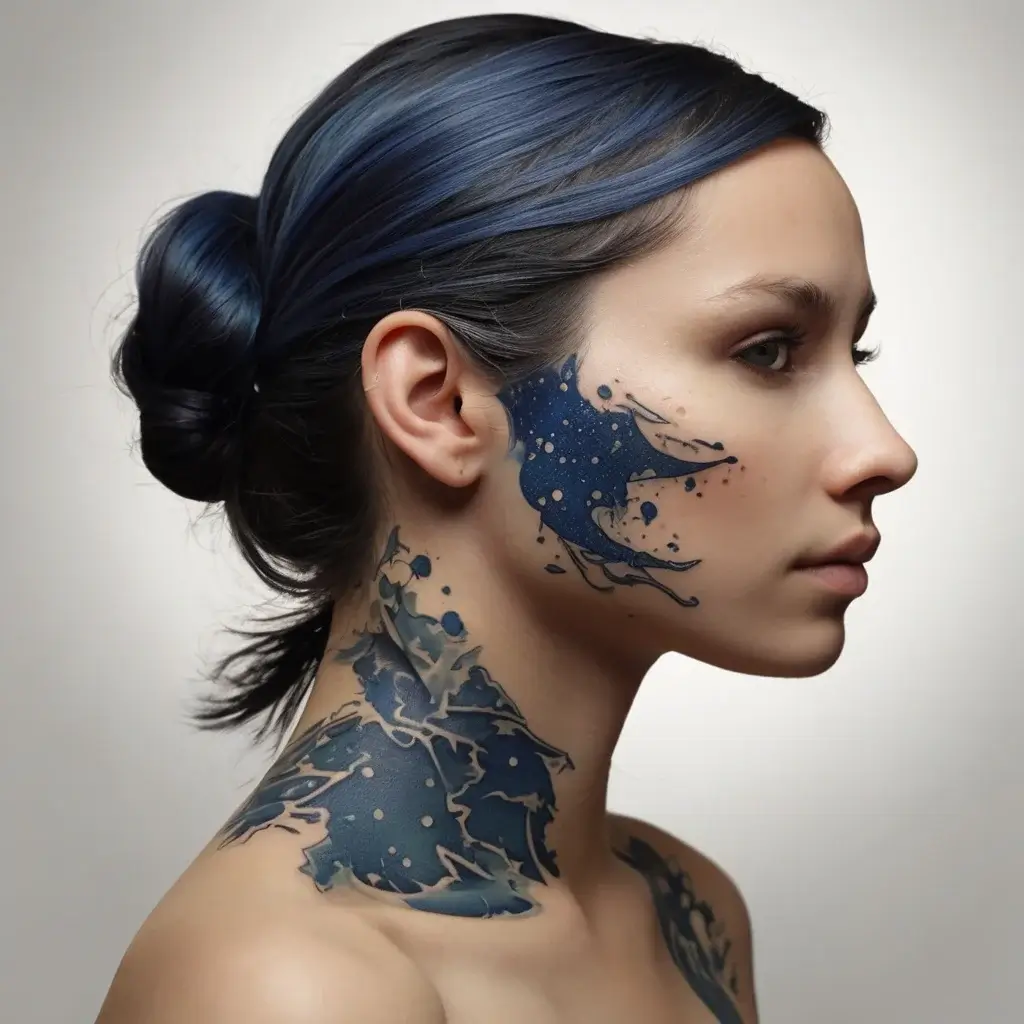
Placement Options for Camo Tattoos
Common Areas for Camo Tattoos
Camo tattoos often find their home on the arms, legs, and shoulders. These spots are popular because they provide enough space to show off the detail in the pattern. The upper arm or thigh is ideal for a larger camo design that can be hidden or displayed easily. These areas give the tattoo room to breathe while still offering some flexibility.
Full Body and Sleeve Camo Tattoos
For those wanting to go all out, full sleeves or even larger body pieces can make a strong statement. A camo sleeve tattoo covers the entire arm or leg, creating a striking look that stands out. Full-back designs are also popular. These larger tattoos allow for intricate detail and shading, bringing the camouflage pattern to life. These bold choices are perfect for anyone ready to make a statement with their ink.
Small and Minimalistic Camouflage Tattoos
On the flip side, small camo tattoos can be just as powerful. You don’t need a big design to carry deep meaning. Many people opt for a small piece on the wrist, ankle, or behind the ear. These tiny tattoos keep the camo vibe without taking up too much space. They’re perfect for those who want a subtle nod to the strength and adaptability that camouflage represents, without making it the centerpiece of their look.
Camo Tattoos for Different Genders
Masculine Themes in Camo Tattoos
For men, camo tattoos often emphasize strength and power. Bold, dark colors and sharp lines create a tough, rugged look. Many masculine camo tattoos are inspired by military themes, with large designs on the arms, chest, or back. They often symbolize resilience, loyalty, and a warrior spirit. These designs tend to be bigger and more detailed, capturing the raw essence of camouflage in a way that reflects a strong, stoic personality.
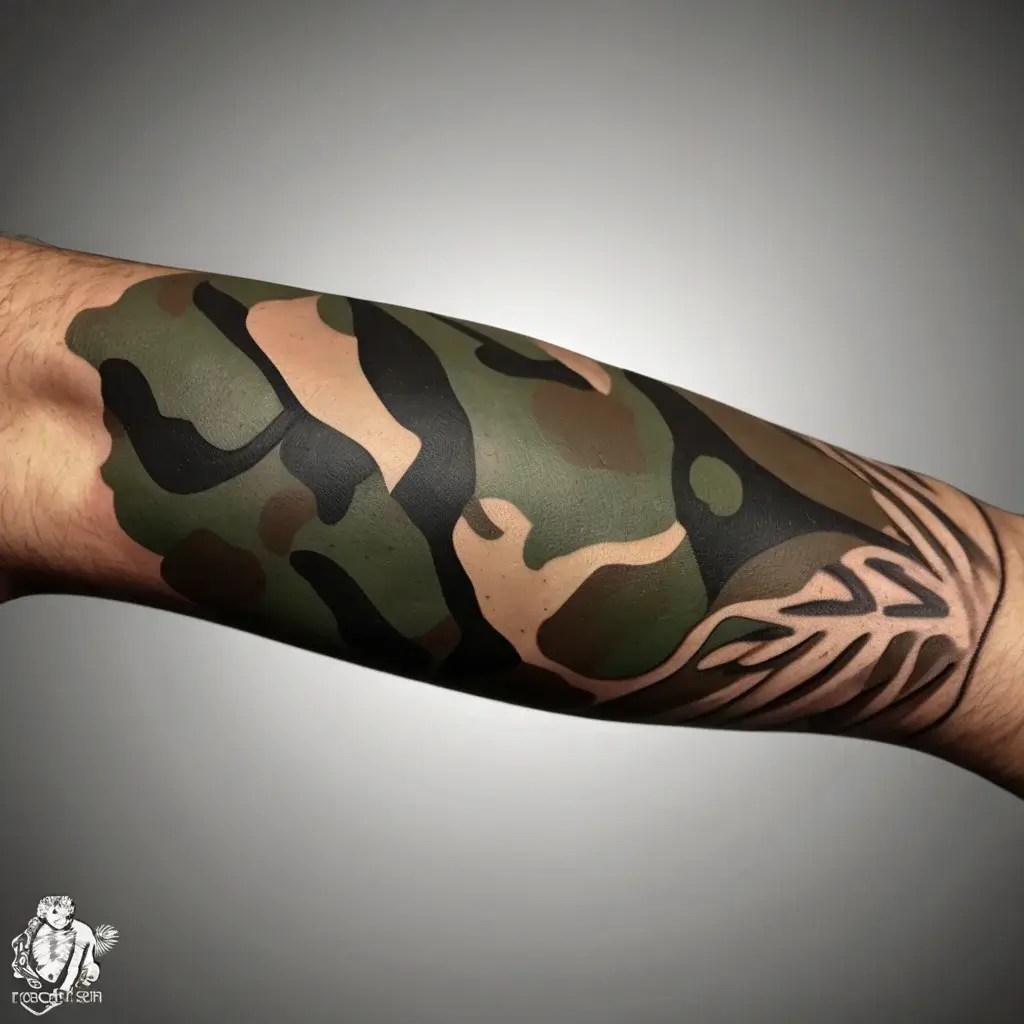
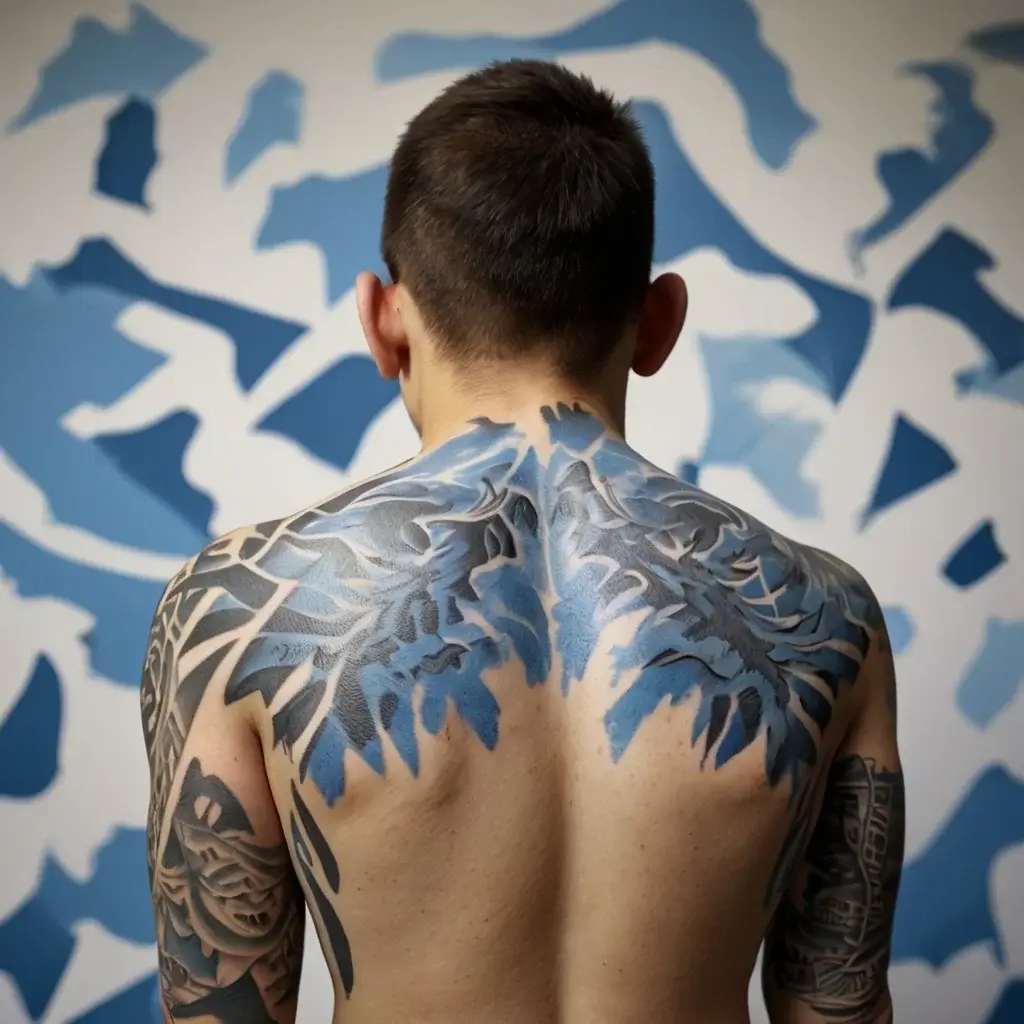
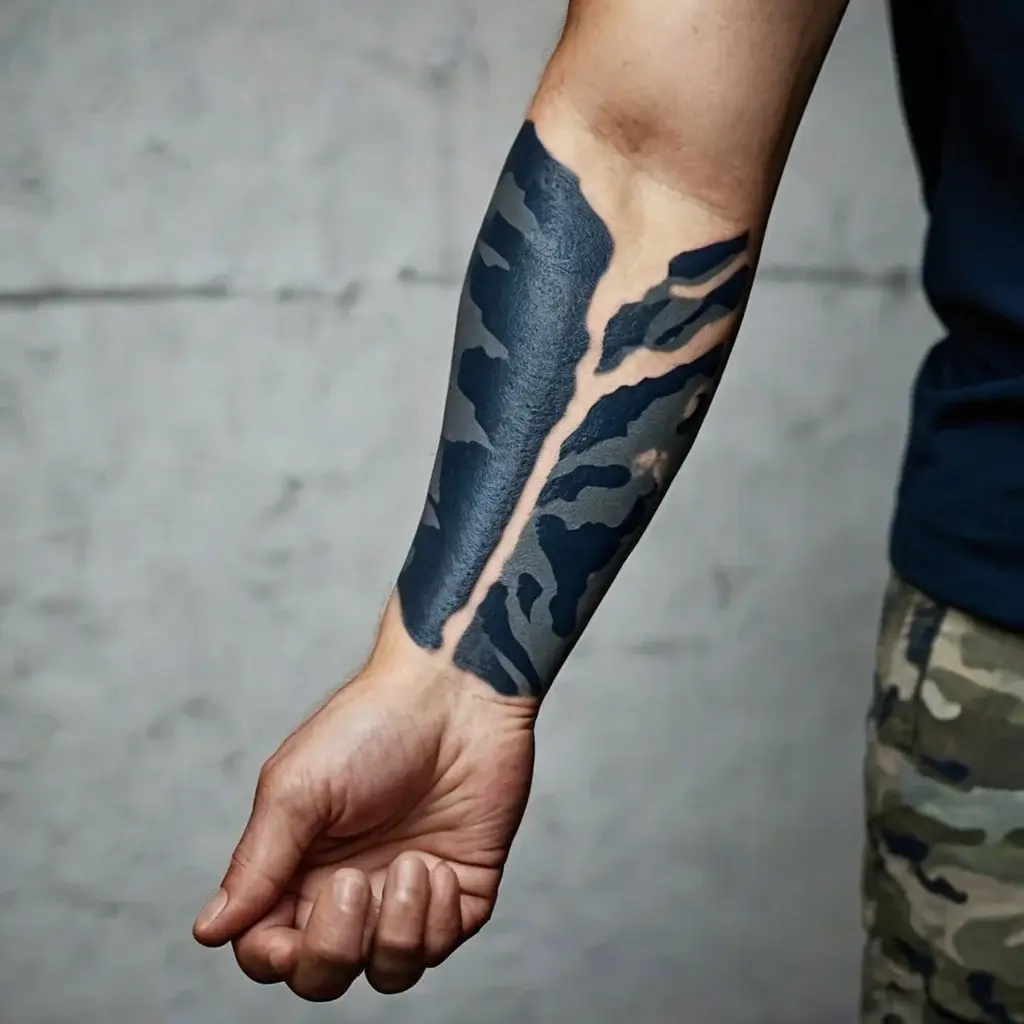
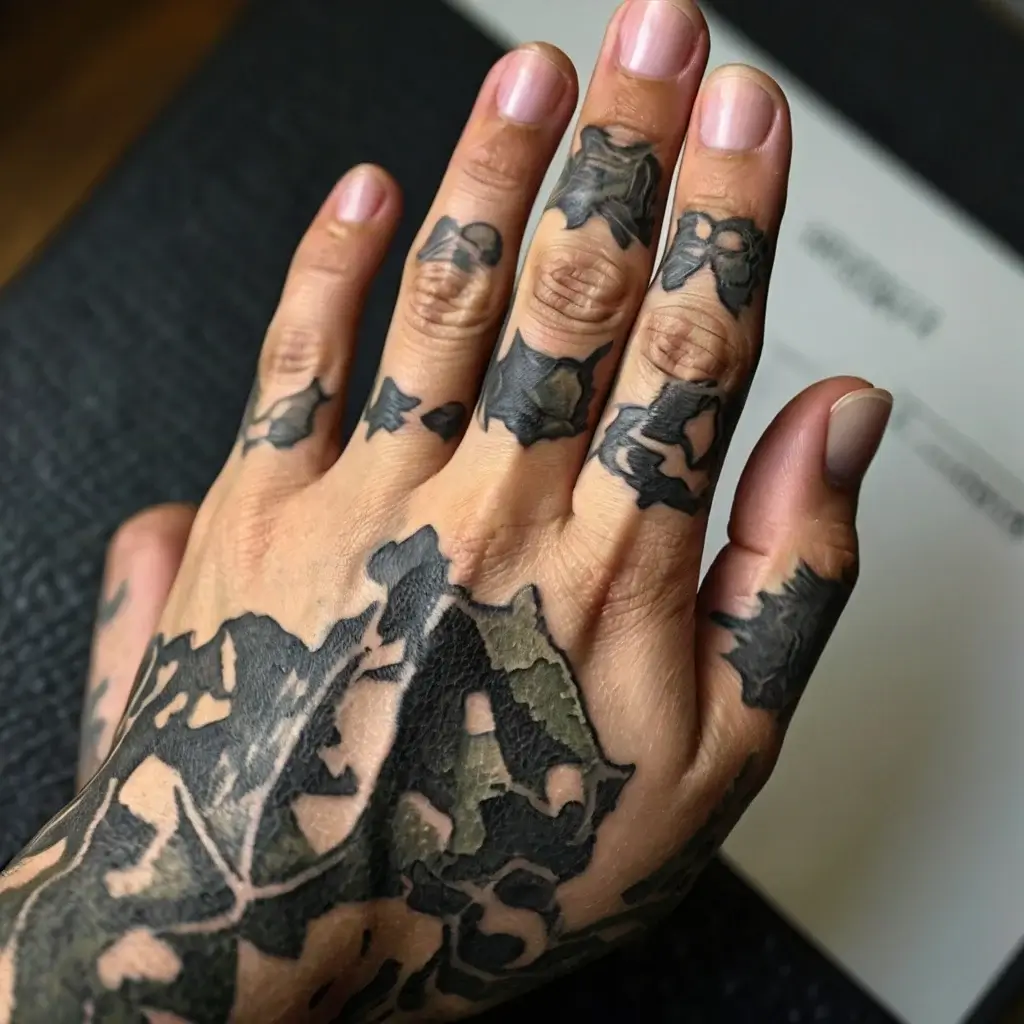
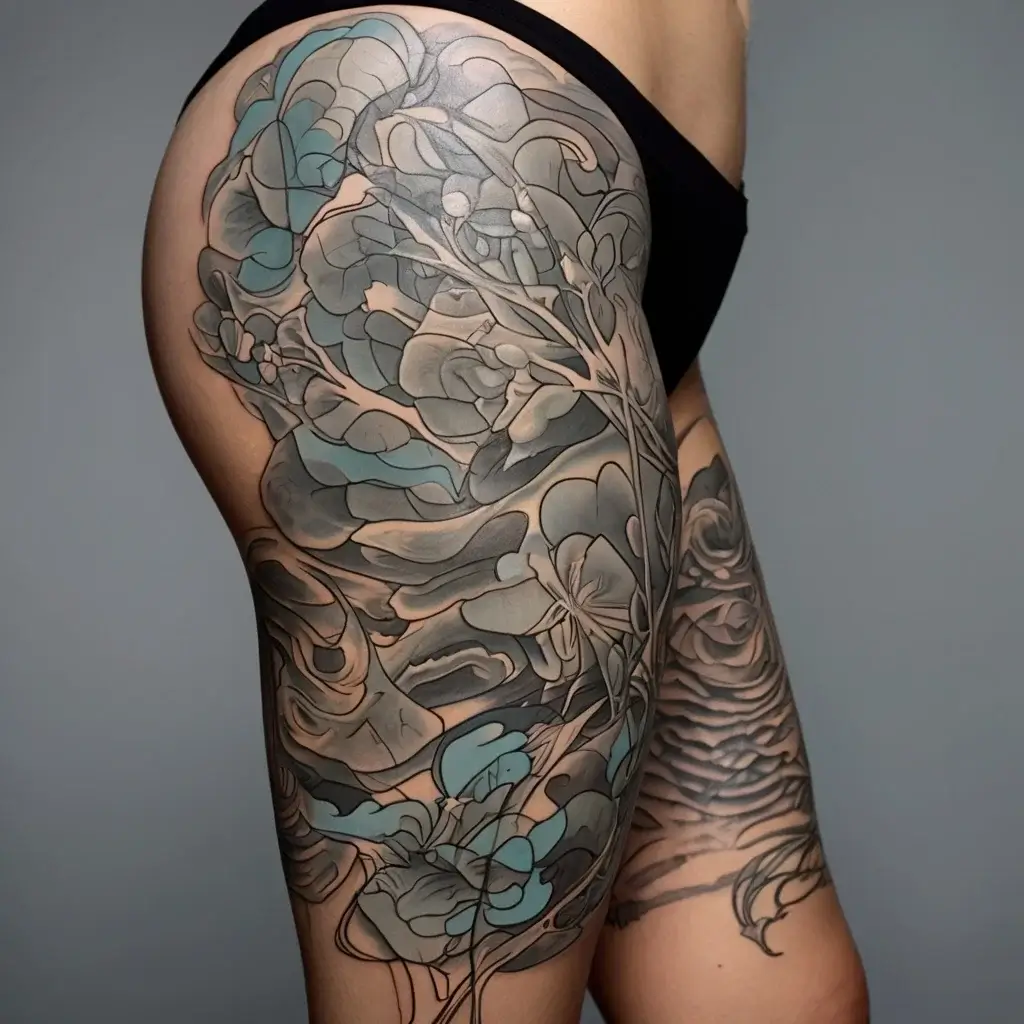
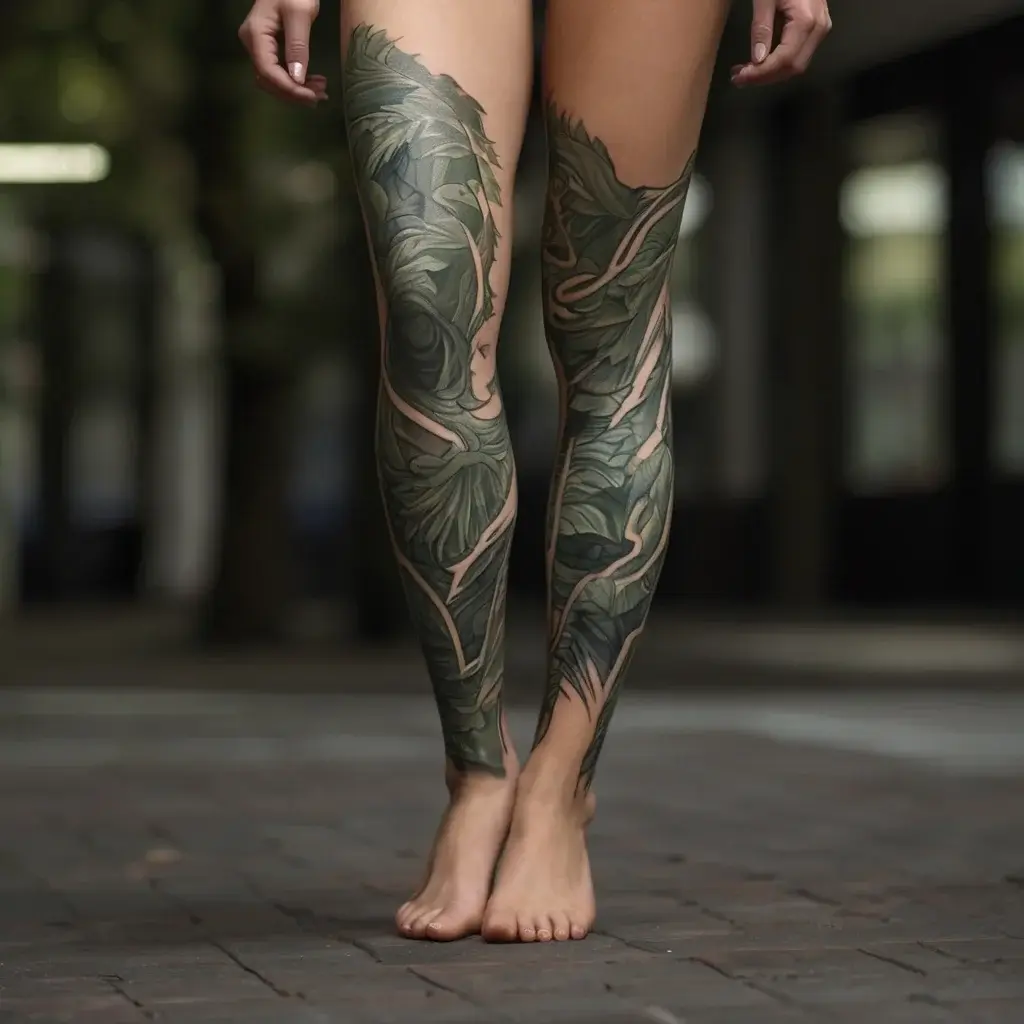
Feminine and Soft Camo Tattoo Designs
Camo tattoos aren’t just for guys. Women are embracing the style, too, with their own unique twists. Feminine camo tattoos may use softer colors or add floral elements to balance the design’s roughness. Placement plays a key role here—delicate areas like the wrist, ankle, or collarbone are popular choices. These tattoos still represent strength but often carry a message of grace and quiet resilience. By mixing traditional camo with softer tones or shapes, the tattoo takes on a different, more personal meaning.
Camo Tattoos and Military Veterans
Why do Veterans Choose Camo Tattoos?
Veterans often choose camo tattoos as a tribute to their time in the military. The camouflage pattern reminds them of the places they served and the missions they completed. It’s a way to honor their experiences and the skills they learned—like adapting to any situation and staying strong under pressure. For many, it’s also about brotherhood, a symbol of the unbreakable bonds they formed with their fellow soldiers. Camo tattoos let them carry these memories with them, every day.
Memorial Camo Tattoos for Fallen Soldiers
Some camo tattoos go even deeper, serving as memorials for friends and comrades lost in battle. These designs often include the names or initials of fallen soldiers, woven into the camouflage pattern. It’s a way to pay tribute to those who gave everything. For veterans, these tattoos are a permanent reminder of the sacrifice their friends made. The camouflage pattern symbolizes both the hidden pain of loss and the pride they feel for those who served alongside them.
You may also like Anchor Tattoos: Meaning, Significance (62 Designs)
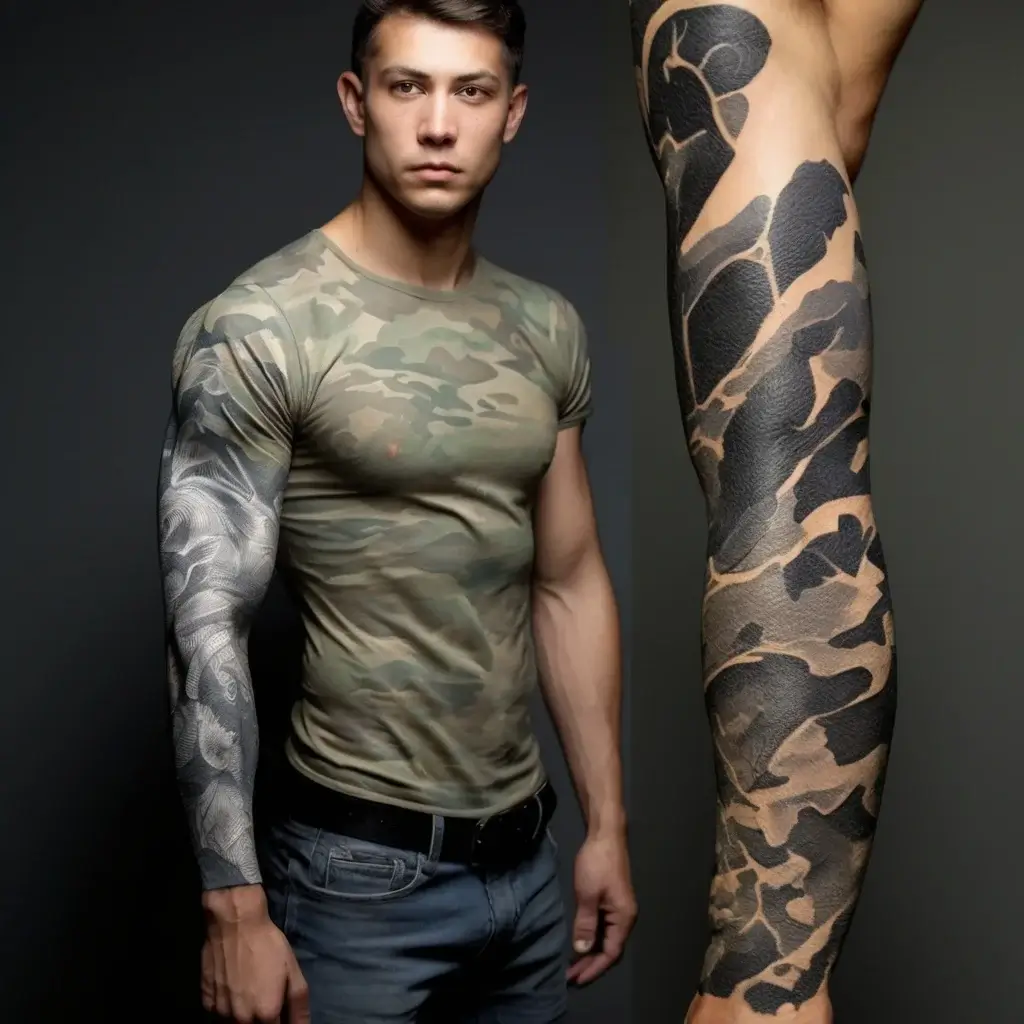
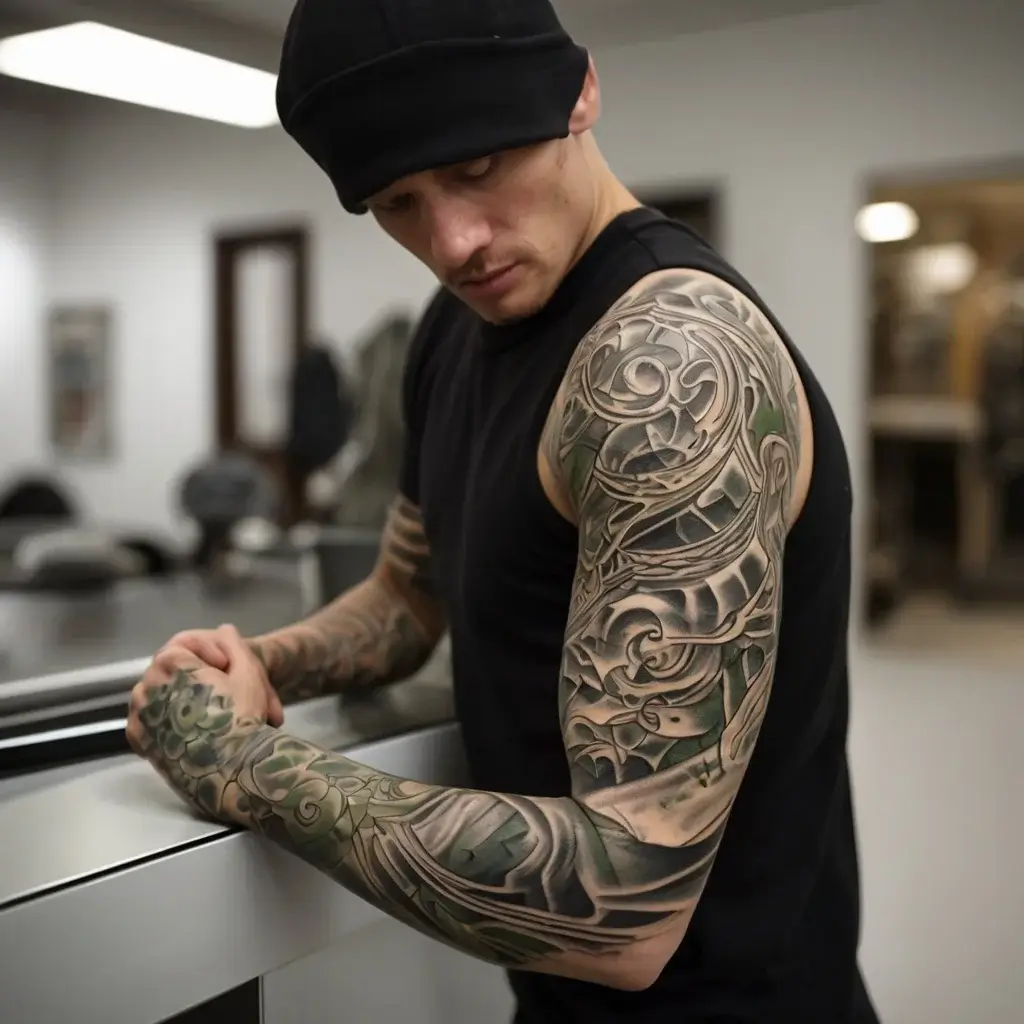
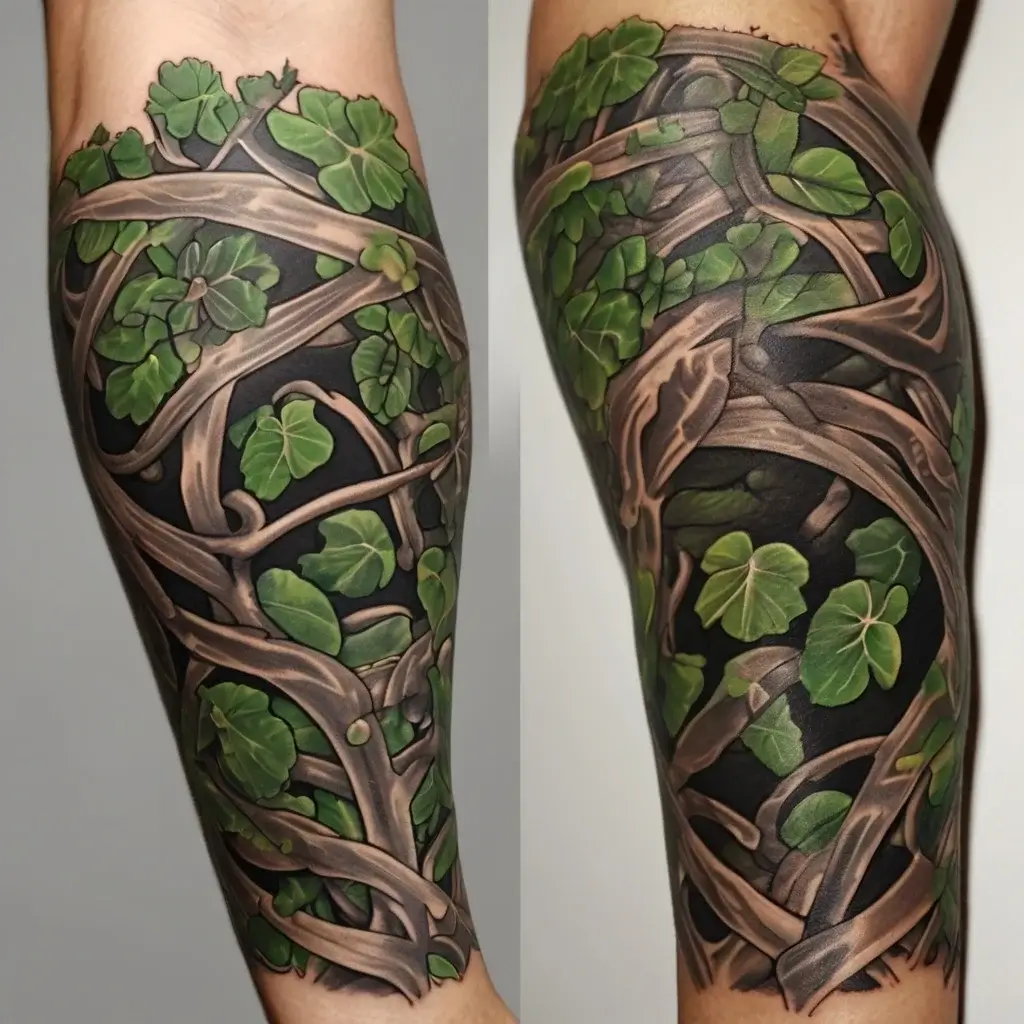
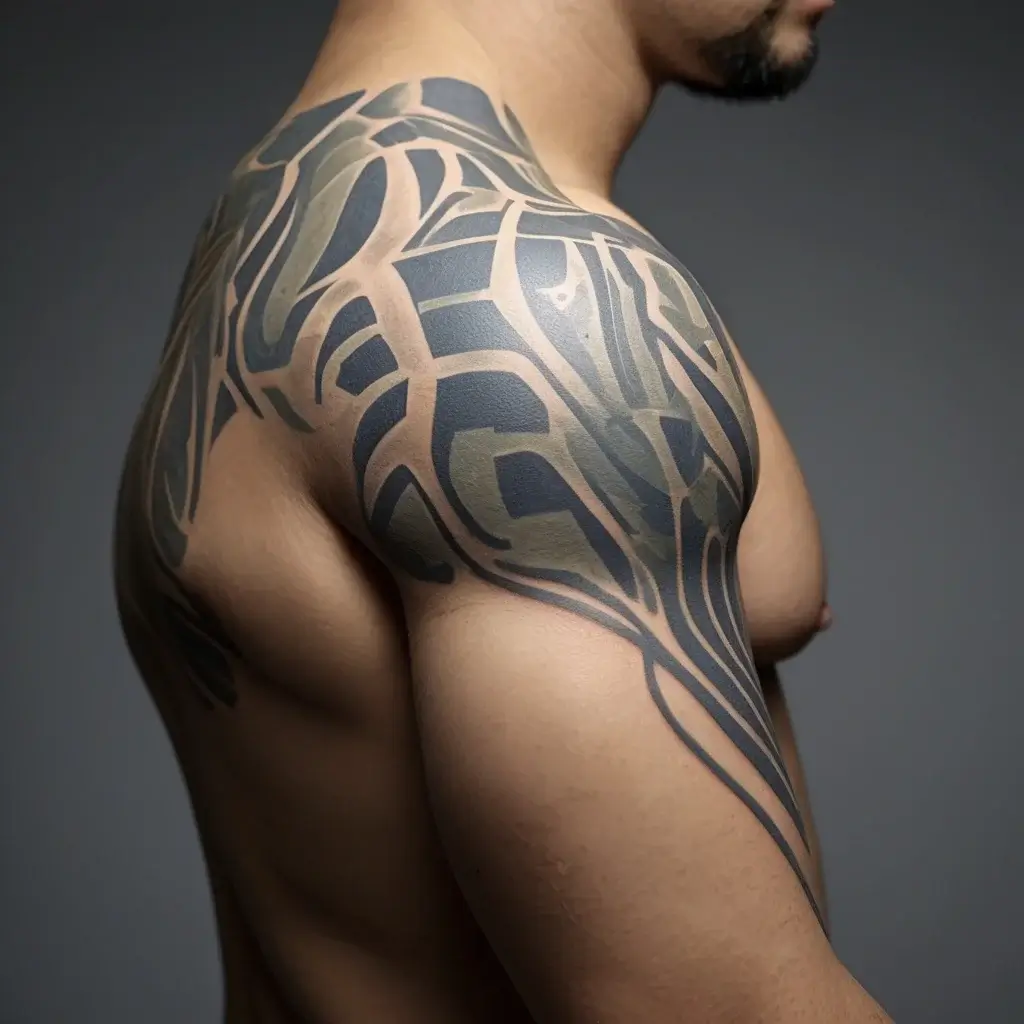

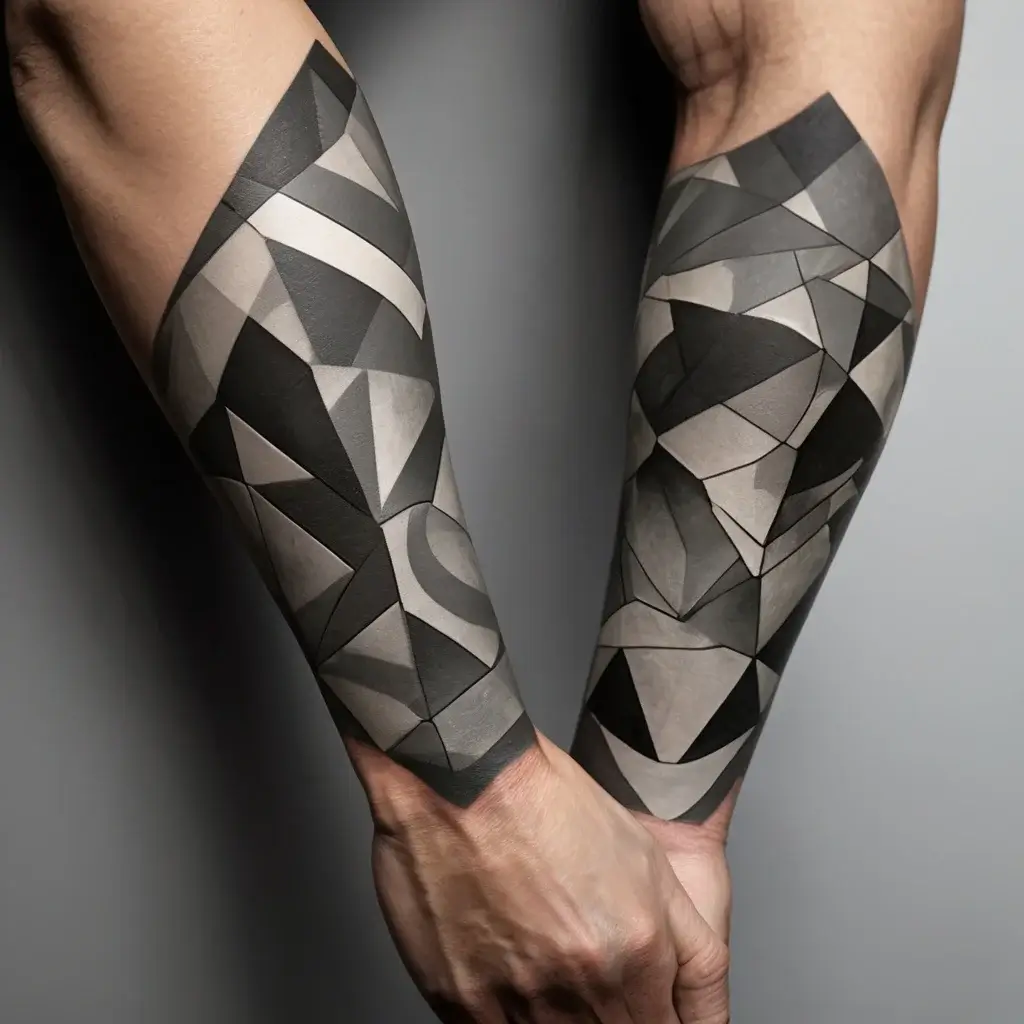
10 Unique Camouflage Tattoo Design Ideas
1. Traditional Military Camo
This design sticks closely to the original military camo pattern with green, brown, and black tones. It’s a popular choice for veterans or those who want to pay tribute to their service.
2. Camo with Animal Print
Blending camouflage with animal prints, like leopard spots or tiger stripes, gives the design a wild edge. It combines natural strength with the hidden power of camouflage.
3. Camo and Nature Elements
Mixing camo with natural elements like trees, leaves, or mountains gives the tattoo a grounded feel. It’s a perfect choice for nature lovers who want to stay connected to the outdoors.
4. Digital Camouflage
Inspired by modern military tech, digital camo designs use sharp, square patterns. This style gives a sleek, futuristic twist to the traditional look.
5. Floral Camo
For a softer touch, floral camo combines earthy tones with delicate flowers. This design is great for those who want to blend strength with a hint of beauty and grace.
6. Blue Ocean Camo
Instead of the usual greens and browns, blue ocean camo uses cool blues and grays to create a watery effect. This is perfect for people with a deep love of the sea or water sports.
7. Skull and Camo Blend
Combining skulls with camo patterns gives the tattoo a bold, edgy vibe. This design often represents toughness, resilience, and a fearless attitude toward life.
8. Geometric Camouflage
Geometric shapes mixed with camo patterns offer a clean, modern look. It’s a great choice for anyone looking for a stylish twist on the traditional design.
9. Camouflage Heart
For a more personal touch, a camo heart tattoo can symbolize love and protection. It’s a reminder to stay strong while keeping loved ones close to your heart.
10. Abstract Camouflage
This style breaks away from the traditional camo pattern, playing with abstract shapes and colors. It’s perfect for those who want a custom design that stands out from the rest.
Conclusion
Camo tattoos go beyond the surface. They’re a way to show strength, honor personal experiences, or connect with nature. Whether it’s a tribute to military service or a symbol of survival, these designs carry real meaning. With so many styles to choose from, each person can find a camo tattoo that fits their story. It’s not just about looking cool—it’s about what the tattoo says. Bold or subtle, each camo design is a mark of resilience, blending the lines between standing out and staying grounded.
